The 6G vision is starting to take shape, following a huge investment of time, research and money from numerous organisations all over the world.
The release of the ITU Recommendation Framework for IMT-2030 has provided a big step forward in helping to identify the key drivers, design principles and usage scenarios that are going to be fundamental in creating the 6G vision. What is emerging is a vision of near-instant and ubiquitous connectivity that not only transforms how the human, physical, and digital worlds interact, but also delivers positive environmental and social change.
As work now begins towards the implementations of this vision and framework, WWRF’s Huddle will once again provide a collaborative platform to bring together leading policymakers, connectivity and service providers, researchers and other key stakeholders from around the world to discuss the work that lies ahead.
Moving on from discussions that focus on the opportunities that 6G can provide in areas of security, sustainability, inclusivity and digital transformation, this year’s Huddle will look in more concrete terms about how objectives in these key areas can be delivered.
Delivering on the 6G vision is going to require a collaborative approach at each step. Join us for the WWRF Huddle and make sure that you are part of the debate and this journey.






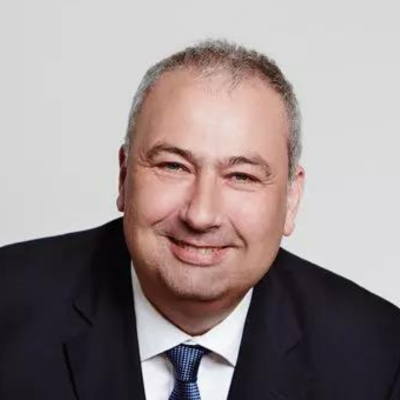
 Dr. Wilhelm Eschweiler, Vice President, BNetzA
Dr. Wilhelm Eschweiler, Vice President, BNetzA Dr. Wilhelm Eschweiler is one of the two vice presidents of the Federal Network Agency (Bundesnetzagentur). His responsibility includes telecommunications and rail.
In 2016, he served as Chair of the Body of European Regulators for Electronic Communications (BEREC).
Prior to that, he was responsible for the European ICT policy in the Federal Ministry of Economics and Energy, where he was head of unit from 2007 until April 2014. From 2002 until 2006, he headed the unit for international telecoms and postal services policy. There, he was concerned with fundamental issues regarding regulation from 1998 until 2002. After passing the Second State Exam in law, he worked at the Federal Ministry of Post and Telecommunications from 1992 until 1994. In 1994, he worked at the Directorate-General Information Society of the European Commission in Brussels. From 1995 until 1997, he worked as an advisor of the German Federal Minister Dr. Wolfgang Bötsch.
Dr. Eschweiler studied law at the Rheinische Friedrich-Wilhelms University in Bonn and at the University of Lausanne.
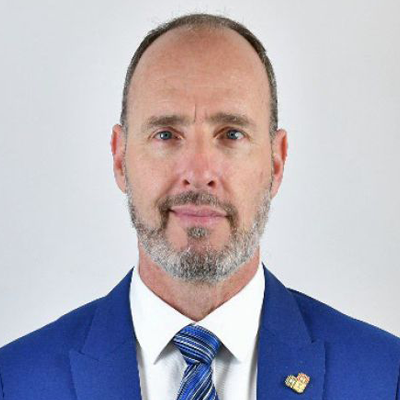
 Uwe Löwenstein, Counsellor, Study Group 5, Radiocommunication Bureau, International Telecommunication Union (ITU)
Uwe Löwenstein, Counsellor, Study Group 5, Radiocommunication Bureau, International Telecommunication Union (ITU) Uwe Löwenstein joined ITU in April 2020 as Counsellor for ITU-R Study Group 5 (Terrestrial Services) in the Radio Communications Bureau (BR) of ITU-R.
Before joining the United Nations, he worked for more than 20 years at Telefónica (o2) Germany, starting there in 1997, when “VIAG Interkom” built up the 4th GSM network in Germany. Based in Munich, he was responsible for the Telefónica activities in terms of spectrum management, frequency coordination and Electro-Magnetic Compatibility (EMC). In his role, he supported the Telefónica local operating businesses in their representation towards the national Regulatory Authorities (BNetzA) and participated at the German UMTS auction (2000), the 4G/LTE-auction (2010 & 2015) as well as the 5G-auction in 2019. Furthermore, he was the Telefónica representative at ITU-R WP5D and ECC/CEPT PT1 (both responsible for IMT) and member of the German delegation at WRC-03 / WRC-07 / WRC-12 / WRC-15 and WRC-19.
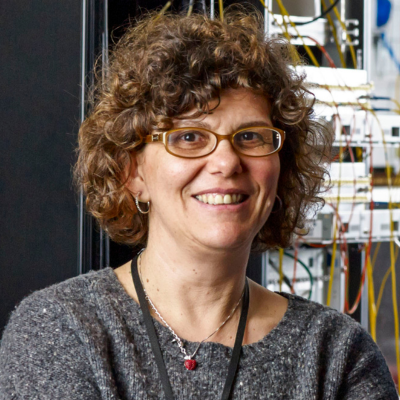
 Prof. Dimitra Simeonidou, Co-Director of the Bristol Digital Futures Institute and Director of the Smart Internet Lab, University of Bristol
Prof. Dimitra Simeonidou, Co-Director of the Bristol Digital Futures Institute and Director of the Smart Internet Lab, University of Bristol Dimitra Simeonidou is a Full Professor at the University of Bristol, the Co-Director of the Bristol Digital Futures Institute and the Director of Smart Internet Lab. Her research is focusing on the fields of high-performance networks, programmable networks, Future Internet, wireless-optical convergence, 5G/6G and smart city infrastructures. In the past few years, she is increasingly working with Social Sciences and Humanities on topics of climate change and digital transformation for society and businesses. Dimitra has been the Technical Architect and the CTO of the smart city project Bristol Is Open. She is currently leading the Bristol City/Region 5G and Open RAN pilots.
Dimitra is a member of the DSIT Supply Chain Diversification Advisory Council, a founding member of UKTIN and has led major research projects funded by UKRI and the EC. She is currently coordinating the DSIT REASON project developing blueprint architectures and technologies for 6G.
She is the author and co-author of over 700 publications, numerous patents and several contributions to standards. She has been co-founder of three spin-out companies developing solutions for connected smart infrastructures.
Dimitra is a Fellow of the Royal Academy of Engineering (FREng), a Fellow of the IEEE (FIEEE), Fellow of WWRF, a Royal Society Wolfson Scholar and member of UKCRC.
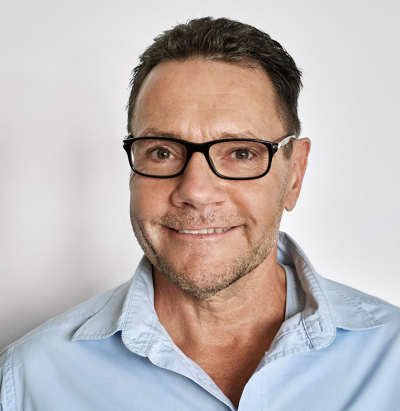
 Prof. Dr. Thomas Magedanz, Head of the Software-based Networks (NGNI) Business Unit, Fraunhofer Institute FOKUS
Prof. Dr. Thomas Magedanz, Head of the Software-based Networks (NGNI) Business Unit, Fraunhofer Institute FOKUS Thomas Magedanz (PhD) has been professor at the Technische Universität Berlin, Germany, leading the chair for next generation networks (www.av.tu-berlin.de) since 2004. In addition, since 2003 he has been Director of the Business Unit Software-based Networks (NGNI) at the Fraunhofer Institute FOKUS (www.fokus.fraunhofer.de/go/ngni) in Berlin. Recently, he also joined the advisory board of Uniberg Group AG in Germany in February 2023.
For 35 years Prof. Magedanz has been a globally recognized ICT expert, working in the convergence field of telecommunications, Internet and information technologies understanding both the technology domains and the international market demands. He often acts as an independent technology consultant for international ICT companies. In the course of his applied research and development activities he created many internationally recognized prototype implementations of global telecommunications standards that provide the foundations for the efficient development of various open technology testbeds around the globe.
His interest is in software-based 5G networks for different verticals, with a strong focus on public and non-public campus networks. The Fraunhofer 5G Playground (www.5G-Playground.org) represents, in this regard, the world´s most advanced Open 5G testbed which is based on the Open5GCore software toolkit (www.open5Gcore.org), representing the first reference implementation of the 3GPP 5G standalone architecture, which is currently also used by more than 110 international customers for testing against different RAN equipment in different use cases. For several years, he is actively supporting the development of open 5G campus networks based on the Open5GCore considering emerging campus networks as the prime spot for 5G innovation and starting point for the evolution towards 6G. Since 2022 he is coordinating the national BMWK flagship project CampusOS (www.Campus-OS.io) which aims to build an ecosystem for emerging open campus networks. In addition he acts as senior principal investigator for 6G core architectures within the two German 6G Hubs, namely Open6GHub and 6G-RIC.
His current research is targeting the 5G evolution towards 6G, including Core-RAN integration (including OpenRAN integration), integration of Satellite/Non-terrestrial Networks and 5G/6G, as well as AI/ML based 5G/6G automated network control and management, in which he is designing a new organic 6G core network. For the most recent research activities see also www.6G-ready.org
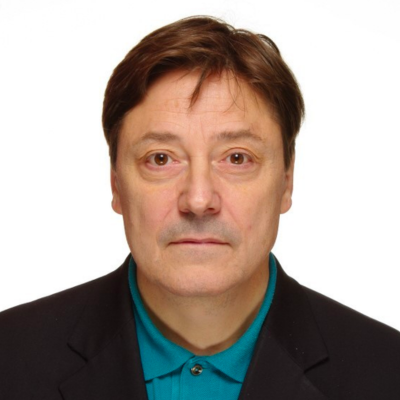
 Bernard Barani, Senior Consultant, 6G Smart Networks and Services Industry Association
Bernard Barani, Senior Consultant, 6G Smart Networks and Services Industry Association Bernard Barani joined the European Commission (EC) in 1994 after 11 years as Communication engineer in industry and with ESA. In the EC, he has been steering EU wireless R&I for more than 20 years. He currently leads the definition and implementation with industry of the European R&I programme “Smart Networks and Services (6G)” covering the 2021-2027 time frame. Main field of responsibilities covers strategic R&D planning and implementation for beyond 5G/6G systems, standardisation, international cooperation, demonstration and pilot programmes.
He is vice chairman of the Steering committee of the EUCNC conference, the showcasing event for telecom research sponsored by the EU. He has an engineering degree from the “Ecole Nationale Supérieure des Télécommunications de Bretagne” and is also a Fellow of WWRF (Wireless World Research Forum).
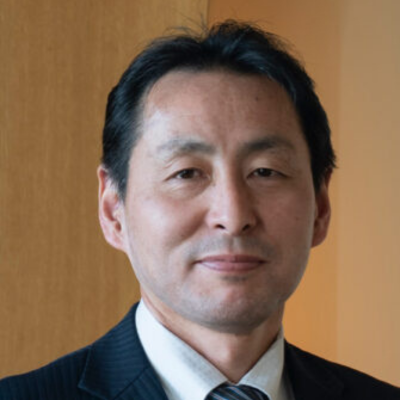
 Takehiro Nakamura, Director, NTT Docomo
Takehiro Nakamura, Director, NTT Docomo Mr. Takehiro Nakamura is now Chief Standardization Officer in NTT DOCOMO, Inc. Mr. Nakamura has been engaged in R&D and the standardization activities for advanced radio and network technologies of W-CDMA, HSPA, LTE/LTE-Advanced, 5G and 6G, and engaged in strengthening inter-industry collaboration. He has been contributing to standardization activities in ARIB, ITU and 3GPP since 1997, including as vice chair and chair of 3GPP TSG-RAN from 2005 to 2013.
Currently, he plays important roles to promote and accelerate 5G and 6G in Japan and globally as the Acting Chairman of Strategy & Planning Committee and the leader of Millimeter wave Promotion Ad Hoc of 5G Mobile Communications Promotion Forum(5GMF), the leader of Cellular System Task Group of ITS Info-communications Forum, the leader of White Paper Subcommittee in Beyond 5G Promotion Consortium in Japan and the Board member of 5G-ACIA.
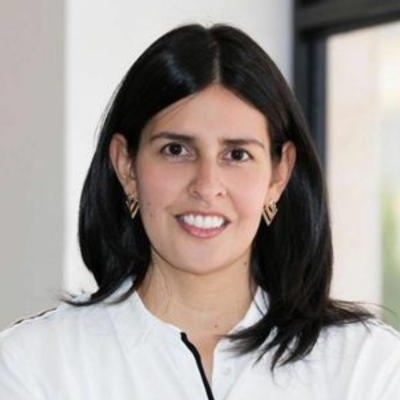
 Martha Suárez, President, Dynamic Spectrum Alliance (DSA)
Martha Suárez, President, Dynamic Spectrum Alliance (DSA) Dr Martha Suarez is President of the Dynamic Spectrum Alliance and has over 15 years of experience in the telecommunications industry. In her current role at the DSA she advocates for laws and regulations that will lead to more efficient and effective spectrum utilization, which is essential to addressing key worldwide social and economic challenges.
She spent over three years as General Director of the National Spectrum Agency in Colombia, having originally joined the ANE in 2013. Before that, she was awarded with a Marie Curie Fellowship and worked at the Instytut Technologii Elektronowej ITE in Poland for the Partnership for Cognitive Radio Par4CR European Project.
Suarez is an electronics engineer, with a master degree in high frequency communication systems and is Doctor in electronics from the University Paris-Est.
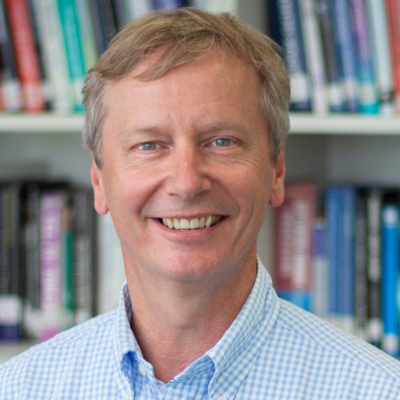
 Prof. Gerhard Fettweis, Vodafone Chair Professor, TU Dresden
Prof. Gerhard Fettweis, Vodafone Chair Professor, TU Dresden Gerhard P. Fettweis, earned a Ph.D. under H. Meyr at RWTH Aachen in 1990. After a postdoc at IBM Research, San Jose, he joined TCSI, Berkeley, USA. Since 1994 he is Vodafone Chair Professor at TU Dresden, Germany. Since 2018 he is also founding Scientific Director & CEO of the Barkhausen Institute. He researches wireless transmission and chip design, coordinates 5G++Lab Germany and the German Cluster-for-Future SEMECO. His team spun-out 19 tech and 3 non-tech startups, and he initiated 4 platform companies. Gerhard is member and senator of the German Academy of Sciences (Leopoldina), and member of the German Academy of Engineering (Acatech) , and a WWRF Fellow. He is active in helping organize IEEE conferences.
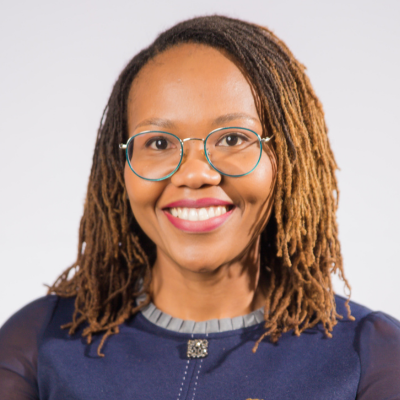
 Thabisa Faye, Councillor, Independent Communication Authority of South Africa (ICASA)
Thabisa Faye, Councillor, Independent Communication Authority of South Africa (ICASA) Ms. Thabisa Faye has 10 years of experience in the ICT sector across the African continent, having worked in over fifteen (15) countries. She has contributed to policy formation projects across the ICT sector, including leading the task of drafting the Postal Service Policy Green Paper in South Africa.
Ms Thabisa has experience in ICT regulatory Analysis, Economic Advisory, Renewable, Trust Management, Strategic Repositioning, Public Policy, and Project Management.
Throughout the years, she has played a critical role in the country’s technological advancements over the years; where she also served as the company representative to the ICT industry body, South African Communications Forum, by serving on the Policy and the Finance Committee and held two terms on the Board.
Ms. Faye holds a Master’s degree in International Development Management from the University of Westminster Business School, an Honours Degree in Development Studies from the University of the Western Cape and a Project Management Certificate from the University of Witwatersrand.
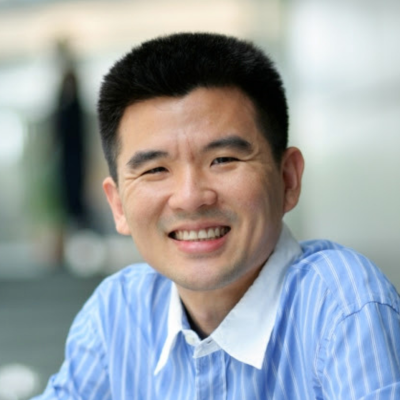
 Tony Quek, Cheng Tsang Man Chair Professor and Director of Future Communications R&D Programme, Singapore University of Technology & Design (SUTD)
Tony Quek, Cheng Tsang Man Chair Professor and Director of Future Communications R&D Programme, Singapore University of Technology & Design (SUTD) Tony Q.S. Quek received the B.E. and M.E. degrees in Electrical and Electronics Engineering from Tokyo Institute of Technology, respectively. At Massachusetts Institute of Technology, he earned the Ph.D. in Electrical Engineering and Computer Science. Currently, he is the Cheng Tsang Man ChairProfessor with Singapore University of Technology and Design (SUTD) and ST Engineering Distinguished Professor. He also serves as the Head of ISTD Pillar, Director for Future Communications R&D Programme, Sector Lead for SUTD AI Program, and the Deputy Director of SUTD-ZJU IDEA. His current research topics include wireless communications and networking, 6G, network intelligence, non-terrestrial networks, and open radio access network.
Dr. Quek has been actively involved in organizing and chairing sessions and has served as a TPC member in numerous international conferences. He is currently serving as an Area Editor for the IEEE Transactions on Wireless Communications. He was an Executive Editorial Committee Member of the IEEE Transactions on Wireless Communications, an Editor of the IEEE Transactions on Communications, and an Editor of the IEEE Wireless Communications Letters.
Dr. Quek received the 2008 Philip Yeo Prize for Outstanding Achievement in Research, the 2012 IEEE William R. Bennett Prize, the 2016 IEEE Signal Processing Society Young Author Best Paper Award, the 2017 CTTC Early Achievement Award, the 2017 IEEE ComSoc AP Outstanding Paper Award, the 2020 IEEE Communications Society Young Author Best Paper Award, the 2020 IEEE Stephen O. Rice Prize, the 2020 Nokia Visiting Professorship, the 2022 IEEE Signal Processing Society Best Paper Award, and the 2021-2023 World’s Top 2% Scientists. He is a Fellow of IEEE and a Fellow of the Academy of Engineering Singapore.
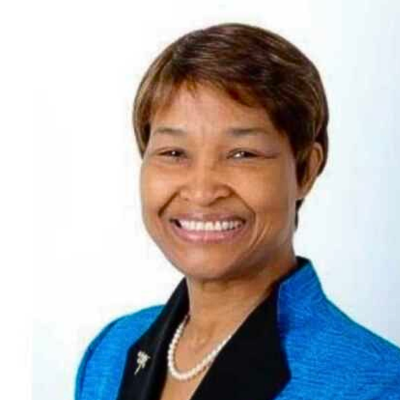
 Bernadette Lewis, Secretary-General, Commonwealth Telecommunications Organisation (CTO)
Bernadette Lewis, Secretary-General, Commonwealth Telecommunications Organisation (CTO) Ms. Bernadette Lewis was appointed as the Secretary-General of the Commonwealth Telecommunications Organisation in August 2020. This is a historic appointment as she is the first female Secretary-general in the 120-year history of the CTO. This is indeed a major accomplishment that should encourage women everywhere to strive for the mastery of whatever profession they may choose and especially in science and technology.
Breaking the glass ceiling is not new to Ms. Lewis; she was also the first female Secretary-General of the Caribbean Telecommunications Union (CTU) and she is credited for making the CTU the foremost information and communication technology (ICT) inter-governmental institution in the Caribbean.
A national of Trinidad and Tobago, Ms. Lewis brings to the CTO a wealth of experience in public and private sectors and is knowledgeable in national and regional ICT issues. The 4th Industrial Revolution, the COVID-19 pandemic and its associated financial contagion, is changing the world irrevocably, ushering us into an environment of unprecedented uncertainty. For the CTO, surviving, indeed thriving in this environment will necessitate innovative leadership, a deep understanding of ICT and faith and courage to deviate from the beaten paths of 20th Century thinking to build a 21st century organisation that is relevant and serves its members with integrity and excellence. Ms. Lewis brings these qualities to the CTO.
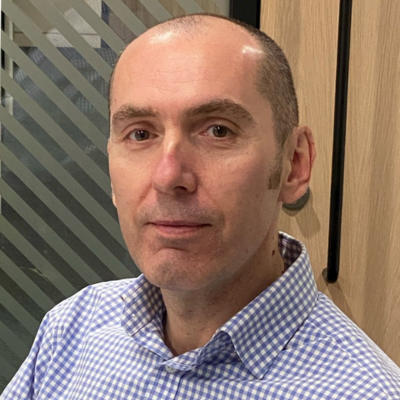
 Gary Clemo, Director, Emerging Technology, Ofcom
Gary Clemo, Director, Emerging Technology, Ofcom Gary is Director, Technology at Ofcom, where he leads a team of engineers and data specialists that use their technical expertise inform current, and influence the direction of future, policy activities.
Prior to this, as Director, Data Innovation, Gary established Ofcom’s first centre of excellence for data engineering and analytics. Prior to joining Ofcom in 2008, Gary led a team of researchers working in wireless and mobile communications for Toshiba Corporation in the UK.
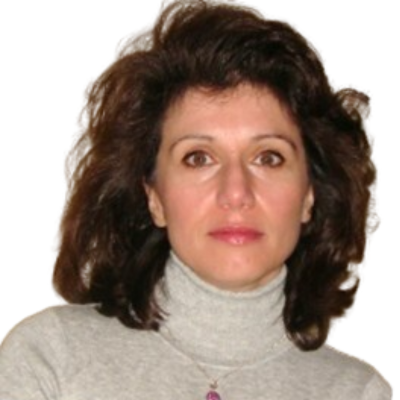
 Angeliki Alexiou, Professor, Department of Digital Systems, University of Piraeus
Angeliki Alexiou, Professor, Department of Digital Systems, University of Piraeus Angeliki Alexiou is a professor of Broadband Communications Systems at the department of Digital Systems, ICT School, University of Piraeus, Greece. She received the Diploma in Electrical and Computer Engineering from the National Technical University of Athens in 1994 and the PhD in Electrical Engineering from Imperial College of Science, Technology and Medicine, University of London in 2000.
Since May 2009 she has been a faculty member at the Department of Digital Systems, where she conducts research and teaches undergraduate and postgraduate courses in Broadband Communications and Advanced Wireless Technologies. Prior to this appointment she was with Bell Laboratories, Wireless Research, Lucent Technologies, (later Alcatel-Lucent, now NOKIA), in Swindon, UK, (January 1999 – April 2009).
Professor Alexiou is a co-recipient of Bell Labs President’s Gold Award in 2002 for contributions to Bell Labs Layered Space-Time (BLAST) project and the Central Bell Labs Teamwork Award in 2004 for role model teamwork and technical achievements in the IST FITNESS project. Professor Alexiou is the Chair of the Working Group on Radio Communication Technologies and of the Working Group on High Frequencies Radio Technologies of the Wireless World Research Forum. Her current research interests include radio interface for 6G systems, MIMO, THz wireless communication technologies, Reconfigurable Intelligent Surfaces, Joint Communications and Sensing Machine Learning for wireless systems. She is the project coordinator of the (H2020) TERRANOVA project and the technical manager of (H2020) ARIADNE project and (SNS JU) INSTINCT project.
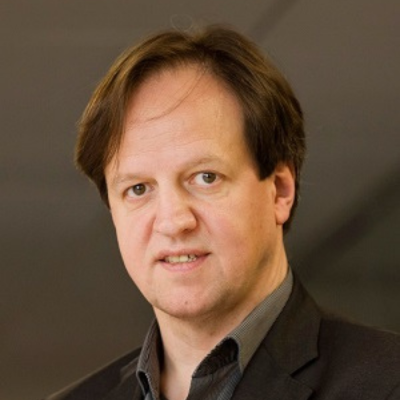
 Harald Haas, Van Eck Professor of Engineering, Cambridge University
Harald Haas, Van Eck Professor of Engineering, Cambridge University Professor Harald Haas received his PhD degree from The University of Edinburgh in 2001. He is a Distinguished Professor of Mobile Communications at the University of Strathclyde/Glasgow, Visiting Professor at the University of Edinburgh and the Director of the LiFi Research and Development Centre (LRDC).
Prof Haas founded pureLiFi Ltd. and currently holds the position of Chief Scientific Officer (CSO). His most recent research interests are in combining physics and communication theory towards designing secure, high-speed and net-zero wireless multi-user access networks including distributed x-haul networks using the optical spectrum.
He has co-authored more than 650 conference and journal papers with more than 50,000 citations and holds more than 45 patents. He has been listed as highly cited researcher by Clarivate/Web of Science annually since 2017. Prof. Haas has delivered two TED talks and one TEDx talk which have been watched online more than 5.5 million times. In 2016, he was the recipient of the Outstanding Achievement Award from the International Solid State Lighting Alliance.
Prof Haas was awarded a Royal Society Wolfson Research Merit Award in 2017. In 2019 he received the IEEE Vehicular Society James Evans Avant Garde Award and the Enginuity The Connect Places Innovation Award in 2021. In 2022 he was the recipient of a Humboldt Research Award for his research achievements to date. He is a Fellow of the IEEE, a Fellow of the Royal Academy of Engineering (RAEng), a Fellow of the Royal Society of Edinburgh (RSE) and a Fellow of the Institution of Engineering and Technology (IET).
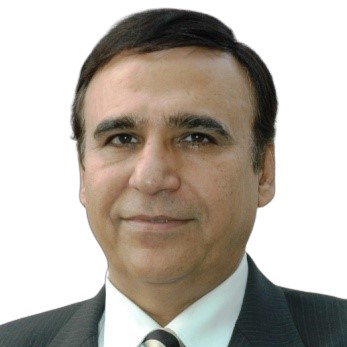
 Bharat Bhatia President, ITU-APT Foundation of India
Bharat Bhatia President, ITU-APT Foundation of India Bharat Bhatia is the President and CEO of the ITU-APT Foundation of India (IAFI) and Vice Chairman and head of Asia Pacific for the World Wireless Research Forum (WWRF). Earlier he was also the President of TEMA – India’s Telecom Equipment Manufacturers Association and Vice President of Association of Telecom Industries of Singapore (ATIS).
Mr. Bhatia was a senior spectrum regulator and ICT policy specialist with the Indian Ministry of Communications, where he worked in various departments for 21 years. He also worked in Motorola USA for 22 years where he was heading the international spectrum team of Motorola until 2018 and was actively involved in Public Safety and emergency communications.
Mr. Bhatia was instrumental in opening of the Indian telecom to the private sector, including issue of the first ever cellular licenses in India and was also a key architect of India’s first ever National Frequency Allocation Plan, NFAP-81 and the first ever published NFAP in 2000. Mr. Bhatia has been actively participating in International Telecommunications Union (ITU), the UN agency for ICT meetings for the last 24 years and is currently the chairman of the ITU working group on 5G for industrial applications.
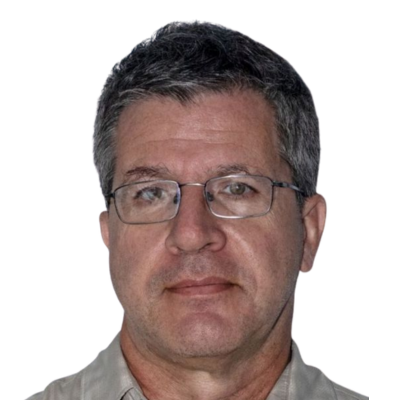
 Tassos Lyratzis, Vice-Chair Working Group on 6G, Radio Spectrum Policy Group (RSPG)
Tassos Lyratzis, Vice-Chair Working Group on 6G, Radio Spectrum Policy Group (RSPG) Dr. Tassos Lyratzis is an Electrical & Computer Engineer and holds a PhD in the field of Telecommunications & Computer Networks (1994). During his PhD studies, he worked as a specialist in Telecommunications in various European research projects.
He is currently working in the Hellenic Telecommunications and Post Commission (EETT) since 2001, in the Spectrum Directorate. He has been the Head of the Spectrum Management Department (2003-2006) when EETT was involved in the Spectrum Management of the Olympic Games of Athens in 2004. Since 2011 he is Head (Director) of Spectrum Division of EETT.
He participates in international activities in CEPT (WGFM and ECC) as well as in European Union groups like the Radio Spectrum Committee (2003-2006), and the Radio Spectrum Policy Group (2011 – today). Since 2016 he has been co-chair of the RSPG sub-Group working on 5G and 6G topics.
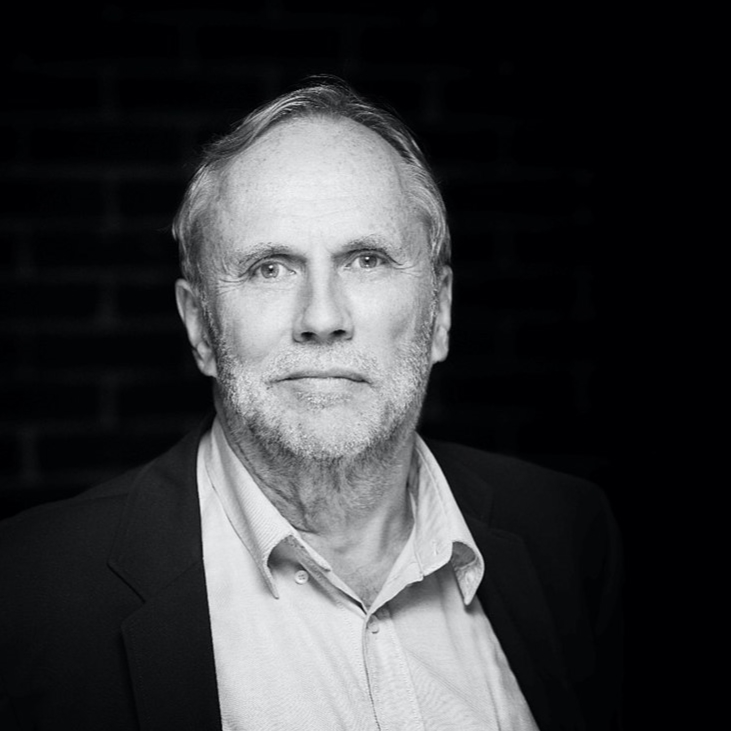
 Knud Erik Skouby, Center for Communication, Media and Information Technologies, Aalborg University-Copenhagen
Knud Erik Skouby, Center for Communication, Media and Information Technologies, Aalborg University-Copenhagen Knud Erik Skouby is professor emeritus, Aalborg University.Founding director of center for Communication, Media and Information technologies, AAU-Copenhagen (2007-17) – a center providing a focal point for multi-disciplinary research and training in applications of CMI. He has a career as a university teacher and within consultancy since 1972; focus on ICT since 1987.
Working areas: Techno-economic Analyses; Development of mobile/ wireless applications and services incl issues related to developing countries ; Regulation of telecommunications.
Project manager and partner in a number of international, European and Danish research projects. Served on a number of public committees within telecom, IT and broadcasting. Further served as a member of boards of professional societies; as a member of organizing boards, evaluation committees and as invited speaker on international conferences; published a number of Danish and international articles, books and conference proceedings. Member of EU’s Economic and Social Council 1994-98. Past dep. chair IEEE Denmark. Editor in chief of Nordic and Baltic Journal of Information and Communication Technologies (NBICT); Chair of WGA in Wireless World Research Forum.
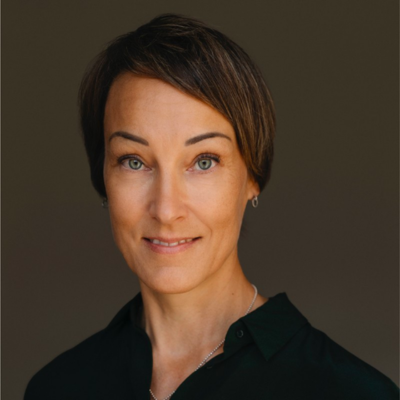
 Tanja Tanayama, Head of Division, Digital Infrastructure, European Investment Bank (EIB)
Tanja Tanayama, Head of Division, Digital Infrastructure, European Investment Bank (EIB) Tanja Tanayama is currently the Head of Digital Infrastructure Division in the Projects Directorate of the European Investment Bank (EIB). This division is responsible for the technical, economic, environmental and social due diligence of digital infrastructure projects considered for EIB financing and contributes to the definition of sectorial lending strategies and policies as well as the financing eligibilities.
Tanja started her EIB career in 2013 as Senior Economist focusing on R&D, innovation and competitiveness, then led collaboration and knowledge sharing activities with universities and research institutes as Head of Knowledge Programme and worked as Senior Advisor to the Secretary General. Before starting in her current position Tanja was Head of Division in the Advisory Services Department.
Tanja holds PhD in economics of innovation from the Helsinki School of Economics. Prior to joining the EIB her career focused on multidisciplinary, policy-oriented work related to innovation, development of new technologies and the design of related policies in various roles.
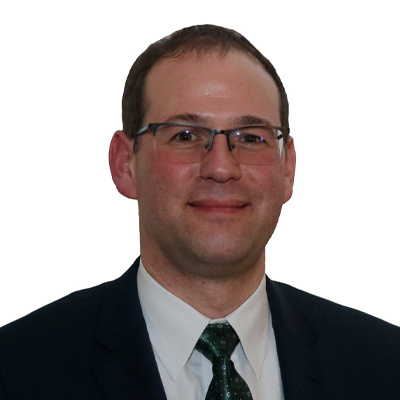
 Alexander Kuhn, Head of Section International and National Spectrum Management, BNetzA
Alexander Kuhn, Head of Section International and National Spectrum Management, BNetzA Alexander Kuhn is Head of Section International and National Spectrum Management, BNetzA
Alexander Kuhn has 20 years of experience in the field of spectrum regulation and participates in various international groups of CEPT, RSPG, BEREC and the ITU. He led the European Countries at WRC 2015 and 2019. Since 2021 he is leading the national section on Spectrum Management at BNetzA, which is responsible for spectrum strategy, planning and innovative applications.
He is currently the Chairman of the ITU-R Conference Preparatory Meeting towards WRC 2027 (CPM-27).
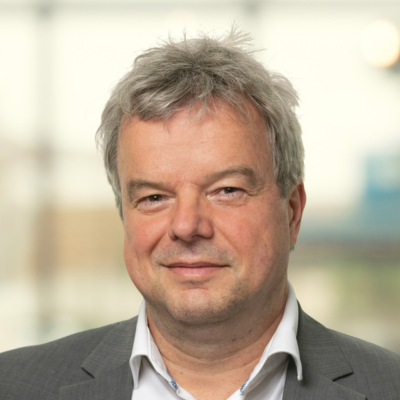
 Toon Norp, Senior Business Consultant, TNO
Toon Norp, Senior Business Consultant, TNO Toon Norp is a Senior Business Consultant at TNO. Toon Norp joined TNO (former KPN Research) in 1991, where he has since been working on network aspects of mobile communications. Toon advises operators, government organisation and others on strategy, and architecture related to M2M/IoT, Satcom, 5G and 6G.
He has been involved in standardisation of mobile networks for more than 25 years. As chairman of the 3GPP SA1 service aspects working group Toon was responsible for the requirements specification phase of 5G and was instrumental in getting several new sectors (e.g. public safety, satellite, media, railway, industry) involved in the 3GPP standardisation process. In 2021, Toon was elected as governing board member of the 6G SNS Industry Association (6G-IA), and represented the 6G-IA in the SNS Joint Undertaking Governing Board.
Toon holds a Master’s Degree in Electrical Engineering from the Eindhoven University of Technology, The Netherlands.
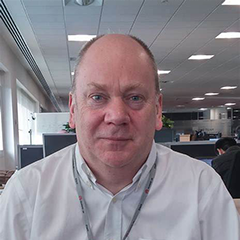
 Nigel Jefferies, Chair, WWRF
Nigel Jefferies, Chair, WWRF Nigel Jefferies is a senior standards manager with Huawei Technologies and Chairman of the Wireless World Research Forum, a global partnership between industry and academia to develop a research agenda for mobile communications. Previously he was Head of Academic Relationships within Vodafone Group Research & Development and a Principal Mathematician at Racal Research Ltd.
In the past he led the European-funded IST project SHAMAN, which studied the security of future mobile systems, and ran the Secure Applications Steering Group for Mobile VCE. Other collaborative research projects on various aspects of security for mobile communications include 3GS3 in the UK-funded LINK programme, and ASPeCT and USECA in the European ACTS programme.
His research interests include cryptography, security of systems and applications of mathematics to telecommunications. He received a PhD in functional analysis from Goldsmith’s College, London, and an MA in mathematics from the Queen’s College, Oxford, and is a visiting professor at Kingston University. He is a Fellow of the Institute of Mathematics and its Applications and a Chartered Mathematician.
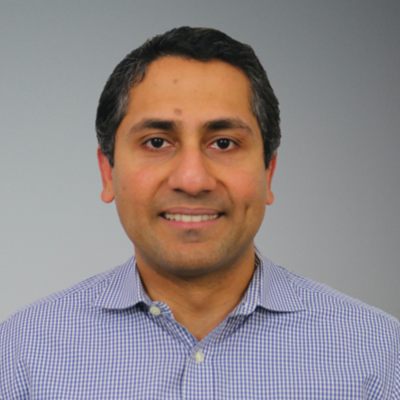
 Abhimanyu Gosain, Senior Director, Institute for Wireless Internet of Things, College of Engineering, Northeastern University
Abhimanyu Gosain, Senior Director, Institute for Wireless Internet of Things, College of Engineering, Northeastern University Abhimanyu (Manu) Gosain is a Senior Director for Institute of Wireless Internet of Things at Northeastern University, co-Chair for the FCC 6G Technology Advisory Council and Senior Advisor for NTIA and DoD OUSD R&E. He is in charge of setting strategic goals and the research agenda for a $100M public-private partnership for the NSF Platforms for Advanced Wireless Research (PAWR) program and $25M DARPA Colosseum program. He serves as a Board Member for the OpenAirInterface Software Alliance, Founding member for Magma Core Foundation, Academic research council representative for O-RAN Alliance, Technology Roadmap group member for NextG Alliance and co-chair on organizing committee and program committees for 6GSymposium, EuCNC,IEEE InfoCom and ACM WinTech. His numerous professional publications and experience exemplify use-inspired basic research in the field of networking technologies such as 5G,6G, AI/ML, edge computing and Internet of Things. He is an IEEE Senior Member. He received his M.S. degree from Tufts University and M.B.A. from Boston University with High Honors.
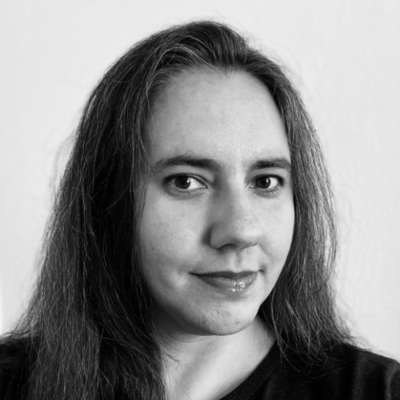
 Sabine Meyer, Head of Section on Security in Telecommunications, BNetzA
Sabine Meyer, Head of Section on Security in Telecommunications, BNetzA Sabine Meyer is head of section for “Telecommunications Security” at Bundesnetzagentur, the German regulator for electricity, gas, telecommunications, post and rail. She has wide-ranging regulatory experience in the railway and telecommunications sectors. From 2014 – 2016, Sabine was active in matters of international digital policy and internet governance at the German Ministry of Economic Affairs and Energy. Sabine Meyer is a lawyer.
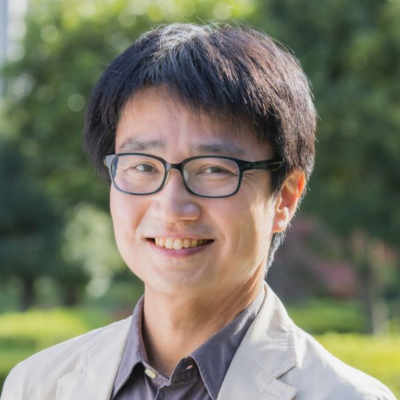
 Kentaro Ishizu, Director, Beyond 5G Design Initiative, Beyond 5G R&D Promotion Unit, NICT
Kentaro Ishizu, Director, Beyond 5G Design Initiative, Beyond 5G R&D Promotion Unit, NICT Dr. Ishizu received Ph.D from Kyushu university, Japan in 2005. Since then, he has been working with NICT and dedicated to R&D on wireless networking systems including heterogeneous network, cognitive radio, TV white space system, local 5G (private 5G) and so on by prototyping and field experiments. He also has been involved with standardization activities such as IEEE802, ETSI and 3GPP.
From April 2021, he is directing the Beyond 5G design initiative of NICT, which was newly established to create the Beyond 5G R&D strategy and lead its activities. His current interests include Beyond 5G/6G architecture as open service platform enabling cross-industry orchestration to fully utilize social resources by cutting-edge technologies.
For the global R&D collaborations, he has launched research workshops on Beyond 5G/6G for multiple combinations of countries as well as moderating discussions on social issues to be caused by the technologies.
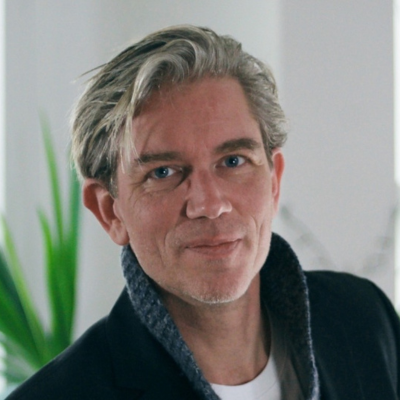
 Jan Schallaböck, Partner, Data Protection and Compliance Practise, iRights.Law
Jan Schallaböck, Partner, Data Protection and Compliance Practise, iRights.Law Jan Schallaböck, attorney-at-law, is a partner at iRights.Law and in charge of the data protection and compliance practice of the firm.
Before joining iRights.Law, he was employed with the Data Protection Authority of the federal state of Schleswig-Holstein (ULD), being tasked with the working within various European research projects together with – amongst others – Microsoft, IBM, SAP and the Universities of Oxford, Leuven and Frankfurt. His commitment to international standardization also stems from this context.
Jan is chairman of ISO PC 317 on “Consumer protection: privacy by design for consumer goods and services”, and he also serves as Convener-support to the ISO/IEC Working Group on privacy and identity management (ISO/IEC JTC 1/SC 27/WG 5).
He studied law in Marburg and Berlin, with a major in European and International Law. Part of his legal training was at the Foreign Service, at the embassy in Almaty, Kazakhstan, as well as the unit for ICT-regulation at the Berlin headquarters. During different stages of Legal Training at law firms, he was also involved with questions of Internet governance, copyright, freedom of speech and arbitration.
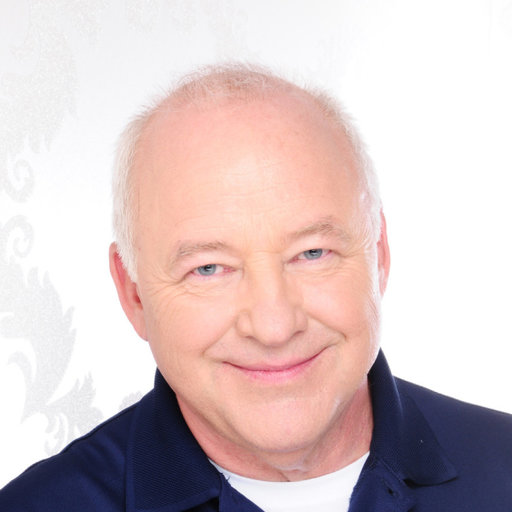
 Hendrik Berndt, Vice President for Europe, Middle East, Africa, WWRF
Hendrik Berndt, Vice President for Europe, Middle East, Africa, WWRF Dr. Hendrik Berndt is Vice-president of the Wireless World Research Forum for Europe, Middle East and Africa. He dedicates himself to positions as Senior Advisor to partners in Asia, the Americas and Europe to contribute to solutions for the bigger global societal ICT challenges. Berndt is advisor to the Association of Radio Industries and Businesses (ARIB) Japan.
He has been continuously appointed to support the European Commission for establishing next generation mobile communication system research directions, currently with focus on Beyond 5G. Since 2015 Berndt serves as board member of the IEEE ComSoc Industry Communities Board, vice chairing its Special Interest group for 5thG. Additionally, he holds the position as Senior Consultant for the chair of Communications Technology (ComTec) at the University Kassel.
Berndt is founder of the 2015 established International Institute for Innovation Aysén–Patagonia. From 2001 until 2014 Berndt held the position as CTO and CSO of DOCOMO’s Communications Laboratories Europe, in Munich, Germany. From 2000 to 2010 he has been teaching con-currently as Visiting Professor at the Global Information and Telecommunication Institute, Waseda University, Tokyo, Japan. Berndt was stationed in the US from 1993 until 2000. During these years he worked within Bellcore, Red Bank, NJ; as Executive Director of Advanced Technology for Global One in Reston, Virginia; as invited member of Sprint’s Office of Network and Architecture Planning in Kansas and held the position as Chief Technology Officer of the TINA-C headquarters in New Jersey, USA. His recent publications are directed towards 6G.
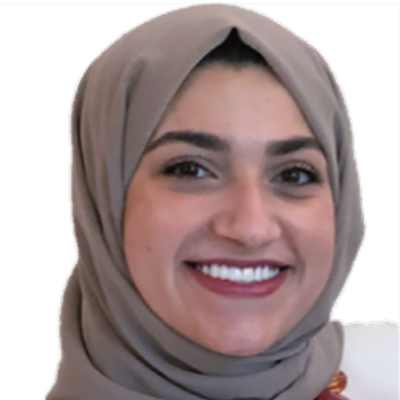
 Nada Abdelhafez, Head of Spectrum & Regulatory Affairs for Middle East and Africa, Shure
Nada Abdelhafez, Head of Spectrum & Regulatory Affairs for Middle East and Africa, Shure Nada Abdelhafez is Head of Spectrum and Regulatory Affairs for the Middle East, Africa and India at Shure Inc. In her role, she advocates for the spectrum needs of the PMSE industry, influences regulations and spectrum policies, ensures access to spectrum, and promotes new technologies for audio PMSE. Nada works closely with administrations, regulatory authorities, and policymakers to enable PMSE in the MEA region and in India.
Before joining Shure, Nada worked for Etisalat UAE, where she was involved in various activities related to spectrum management, technology standardization, and technology regulatory support.
Nada holds a Master’s degree in Electrical Engineering and has publications related to optimization and deep learning in audio and video streaming.
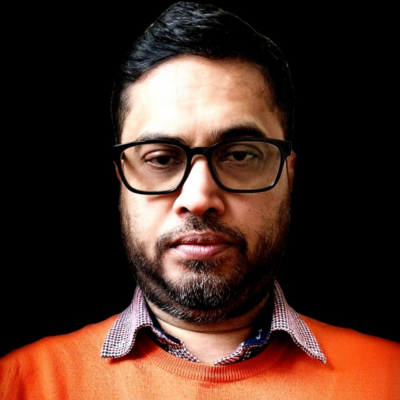
 Dr Nuwan Weerasinghe, CEO, SIMULTELCO LTD
Dr Nuwan Weerasinghe, CEO, SIMULTELCO LTD Dr. Nuwan Weerasinghe is an experienced professional in the field of information and communication technology, boasting over two decades of diverse experience spanning engineering, the software industry, and academia.
He earned his B.Sc. in Electrical and Information Engineering from the University of Ruhuna, Sri Lanka, and a Ph.D. from Kingston University, London, focusing on “Security and Reliability for Future Multi-Hop Wireless Networks.”
As an entrepreneur, Dr. Weerasinghe founded several tech ventures, He currently leads SIMULTELCO as the Founder and CEO. The company leads in creating cutting-edge, cloud-based simulator for 6G technology. He also applies his knowledge as a Consultant for the World Health Organization in Europe, driving AI research and cloud system management, and as a Visiting Lecturer at Kingston University’s Faculty of Engineering, Computing, and the Environment.
Since 2020, Dr. Weerasinghe has been an integral member of the WWRF Independent Evaluation Group, assessing IMT-2020 technologies. With a deep-rooted interest in network optimization and security for 5G and beyond, alongside application development leveraging AI and ML-based cloud technologies, Dr. Weerasinghe has made substantial academic contributions. He has shared his insights and findings through numerous publications in esteemed journals, book chapters, and conferences.
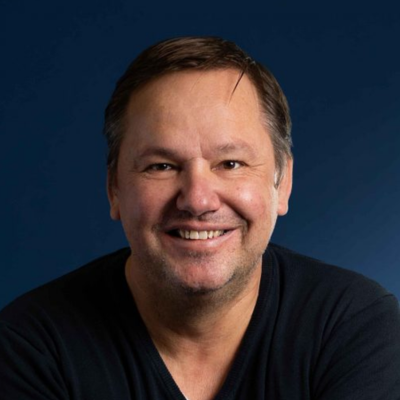
 Martin Maier, Professor, Scientific Head of the Optical Zeitgeist Laboratory, Institut National de la Recherche Scientifique
Martin Maier, Professor, Scientific Head of the Optical Zeitgeist Laboratory, Institut National de la Recherche Scientifique Martin Maier is a full professor with the Institut National de la Recherche Scientifique (INRS), Montréal, Canada. He was educated at the Technical University of Berlin, Germany, and received MSc and PhD degrees both with distinctions (summa cum laude) in 1998 and 2003, respectively. In 2003, he was a postdoc fellow at the Massachusetts Institute of Technology (MIT), Cambridge, MA. He was a visiting professor at Stanford University, Stanford, CA, 2006 through 2007.
He was a co-recipient of the 2009 IEEE Communications Society Best Tutorial Paper Award. Further, he was a Marie Curie IIF Fellow of the European Commission from 2014 through 2015. In 2017, he received the Friedrich Wilhelm Bessel Research Award from the Alexander von Humboldt (AvH) Foundation in recognition of his accomplishments in research on FiWi-enhanced mobile networks. In 2017, he was named one of the three most promising scientists in the category “Contribution to a better society” of the Marie Skłodowska-Curie Actions (MSCA) 2017 Prize Award of the European Commission. In 2019/2020, he held a UC3M-Banco de Santander Excellence Chair at Universidad Carlos III de Madrid (UC3M), Madrid, Spain. Recently, in December 2023, he was awarded with the 2023 Technical Achievement Award of the IEEE Communication Society (ComSoc) Tactile Internet Technical Committee for his contribution on 6G/Next G and the design of Metaverse concepts and architectures as well as the 2023 Outstanding Paper Award of the IEEE Computer Society Bio-Inspired Computing STC for his contribution on the symbiosis between INTERnet and Human BEING (INTERBEING).
He is co-author of the book “Toward 6G: A New Era of Convergence” (Wiley-IEEE Press, January 2021) and author of the sequel “6G and Onward to Next G: The Road to the Multiverse” (Wiley-IEEE Press, February 2023). He served on the Technical Program Committees of IEEE INFOCOM, IEEE GLOBECOM, and IEEE ICC, and was an Editorial Board member of the IEEE Communications Surveys and Tutorials as well as ELSEVIER Computer Communications.
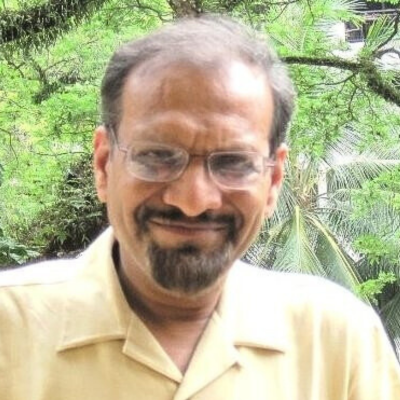
 Sudhir Dixit, Vice Chair Americas, WWRF
Sudhir Dixit, Vice Chair Americas, WWRF Sudhir Dixit is currently a Senior Fellow and Evangelist of Basic Internet at the Basic Internet Foundation in Norway and heads its San Francisco office. He has over 30 years of experience in computer networking and telecommunications, and related fields. From 2015 to 2017 he was the CEO and Co-Founder of a start-up, Skydoot, Inc, in the cloud-based and collaboration space. From December 2013 to April 2015, he was a Distinguished Chief Technologist and CTO of the Communications and Media Services for the Americas Region of Hewlett-Packard Enterprise Services in Palo Alto, CA, and prior to this he was the Director of Hewlett-Packard Labs India from September 2009. Prior to joining HP Labs Palo Alto, Dixit held a joint appointment with the Centre for Internet Excellence (CiE) and the Centre for Wireless Communications (CWC) at the University of Oulu, Finland. From 1996 to 2008, he held various positions with leading companies, such as with BlackBerry as Senior Director, with Nokia and Nokia Siemens Networks in the United States as Senior Research Manager, Nokia Research Fellow, Head of Nokia Research Centre (Boston), and Head of Network Technology (USA). From 1987 to 1996, he was at NYNEX Science and Technology and GTE Laboratories (both now Verizon Communications) as a Staff Director and Principal Research Scientist.
Dixit has 21 patents granted by the US PTO and has published over 200 papers and edited, co-edited, or authored eight books published by Wiley, Artech House and Springer. He is presently on the editorial boards of IEEE Spectrum Magazine, Cambridge University Press Wireless Series and Springer’s Wireless Personal Communications Journal and Central European Journal of Computer Science (CEJS). He is Chairman of the Working Group C on new directions in networking and communications at the Wireless World Research Forum (WWRF), where he is also a Board Member. From 2010 to 2012, he was an Adjunct Professor of Computer Science at the University of California, Davis, and, since 2010, he has been a Docent of Broadband Mobile Communications for Emerging Economies at the University of Oulu, Finland.
A Life Fellow of the IEEE, IET, and IETE, Dixit received a Ph.D. degree in electronic science and telecommunications from the University of Strathclyde, Glasgow, U.K. and an M.B.A. from the Florida Institute of Technology, Melbourne, Florida.
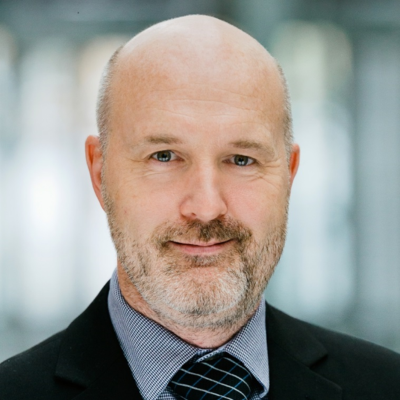
 Uwe Bae, Director Public Affairs, GF-PA, Rohde & Schwarz
Uwe Bae, Director Public Affairs, GF-PA, Rohde & Schwarz Uwe Baeder studied physics and electrical engineering and holds a physics diploma from the University of Kaiserslautern. He joined Rohde & Schwarz in 2000 as standards engineer for radio communication tester. He represented Rohde & Schwarz in various international standardization groups for wireless communications and oversaw the company’s presence on these committees. His interest was especially focused in the standardization of IMT systems within the 3rd Generation Partnership Project (3GPP). Here he contributed to the development of the test specifications, which are used as basis for radio regulation of wireless communication devices. At the same time, he was leading an international team for the development of certification tests for WCDMA/HSDPA, eCall, EWTS, LTE radio protocols including IMS and IoT standards like eMTC and NB-IoT. He is now director public affairs where he is responsible for digital policy and frequency regulation.
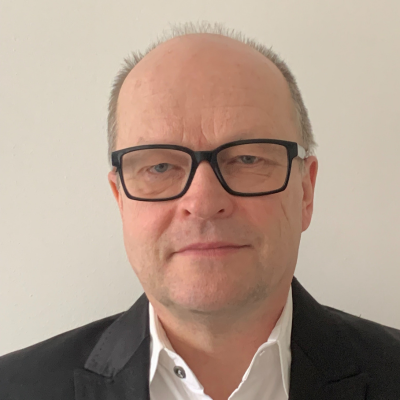
 Rauno Ruismäki, Chairman of GSA CEPT Team, Nokia
Rauno Ruismäki, Chairman of GSA CEPT Team, Nokia Rauno Ruismäki was born in Seinäjoki, Finland in 1961 and received M.Sc.(EE) in 1988 from the University of Oulu, Faculty of Technology, Department of Electrical and Information Engineering. He worked for Nokia Telecommunications since 1986 until joining Finnish telecomms Regulator, Telecommunications Administration Centre, in 1990. There he was working with standards and regulatory related topics of mobile communication systems.
Mr Ruismäki moved to Nokia in 1998 to work on spectrum policy and related regulatory matters. His work includes technical, political, and regulatory aspects of spectrum matters and he has participated extensively in international working groups (e.g. in ITU-R, CEPT) and have had several chairmen and editor appointments. His main focus has been international work related to IMT issues. He was nominated Nokia Engineer Fellow in 2003. Today he is focusing on 5G and 6G spectrum aspects in Nokia Networks, Strategy & Technology.
Currently he is the chairman of SWG on IMT Characteristics in WP 5D and Chairman of GSA CEPT Team.
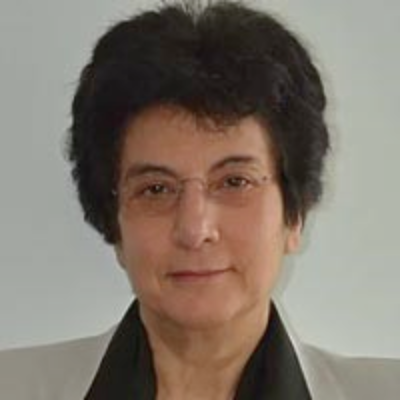
 Prof. Sana Salous, Professor, Chair of Communications Engineering, Durham University
Prof. Sana Salous, Professor, Chair of Communications Engineering, Durham University Professor Salous started her academic career as an Assistant Professor at Yarmouk University, Jordan. In 1989 she joined the Department of Electrical Engineering & Electronics at UMIST. In 2003 she joined Durham University where she currently holds the Chair in Communication Engineering and is the Director of the Centre for Communication Systems. Professor Salous radio propagation reseacrh covers HF for sky wave propagation for long range communication and UHF to the millimeter wave band for 5G mobile communications. In this area she introduced the digital frequency sweep technique for high bandwidth channel sounders for radio propagation studies. She is an active member of URSI, various COST actions and a member of the UK delegation to the International Union of Telecommunications.
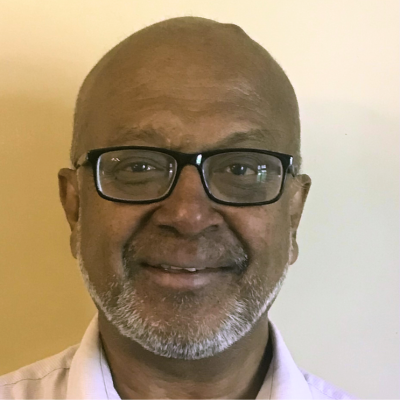
 Kumar Singarajah, Vice Chair, UKSpace / techUK Satellite Telecommunications Committee (STC)
Kumar Singarajah, Vice Chair, UKSpace / techUK Satellite Telecommunications Committee (STC) Kumar Singarajah is Director of Euroma Ltd a boutique consultancy firm. Kumar has 30+ years of experience in the space, aerospace and communications industries with senior roles in UK and Europe, including with Arqit (UK), Astroscale (UK), Viasat (UK), Avanti Communications Group (UK), Global Radio (Luxembourg), ICO Global Communications (UK), Inmarsat (UK), SES ASTRA (Luxembourg), Logica GmBH (Germany) and Logica Ltd (UK). He was on the senior management teams at Astroscale and Avanti.
His professional experience includes satellite and terrestrial wireless communications systems engineering, spacecraft systems engineering, spectrum engineering, frequency coordination, market access and licensing, space business development, space sustainability, in-orbit servicing, quantum communications and cyber security.
Kumar was the previous Chair of the joint techuk / UKspace Satellite Telecommunications Committee and is its current Vice Chair. He is the current Chair of the UK Spectrum Policy Forum’s Cluster 4 (International) Group and an invited faculty member of the London Institute of Space Policy and Law. He is also a CEng, FCMI, FRAeS, FRAS, SMAIAA, MIET, MIEEE and M-IISL.
Kumar completed his BSc in Electrical Engineering at Imperial College / London University, his MSc in Mobile and Satellite Communications at the University of Surrey, and received an MBA from The Open University.
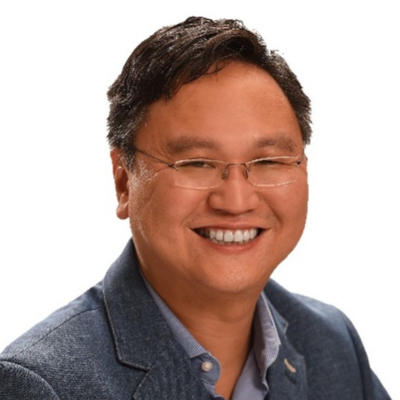
 Peng Zhao, Vice-President of Policy & Regulatory, GSOA
Peng Zhao, Vice-President of Policy & Regulatory, GSOA Peng is the Vice President of Policy & Regulatory at GSOA, where he leads advocacy efforts around spectrum management, licensing, and national policy initiatives. With experience in telecoms, mobile, and satellites, he has advised governments and industry players globally.
Previously at Eutelsat OneWeb, Peng shaped regulatory frameworks for Low Earth Orbit constellations and satellite licensing procedures for WRC-23. At GSMA, he led a global campaign optimizing spectrum licensing for mobile operators, engaging policymakers and advocating best practices across developing markets.
Peng holds a Master’s in Telecommunication from the Swiss Federal Institute of Technology and an Executive MBA from London Business School. He speaks English, Mandarin, and French fluently.
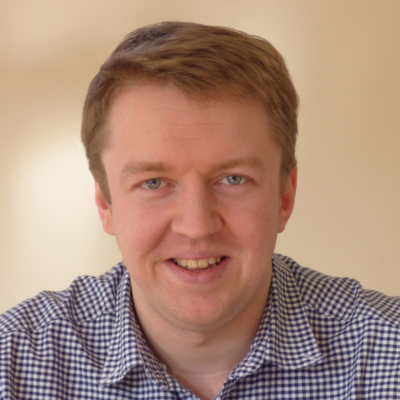
 Dr Greig Paul, Deputy Chair, UKTIN Security Expert Working Group
Dr Greig Paul, Deputy Chair, UKTIN Security Expert Working Group Greig is the deputy chair of the UKTIN Security Expert Working Group, and the founding deputy chair of the UK Telecoms Data Taskforce; voluntary groups which work closely with Government to deliver impartial and independent input and guidance around matters pertaining to telecoms networks and security.
His background extends from end-to-end telecoms networks (both fixed and mobile), as well as in security of critical infrastructure and communications systems, and has worked with governments and organisations around the world on telecoms security resilience, and how to deliver decarbonised power grids by harnessing resilient telecoms networks to integrate customers and assets into a genuinely smart grid.
Greig continues to support a range of telecoms research & innovation projects alongside his strategic advisory work, and is the technical lead of a UK Open RAN research project (Project DONE).
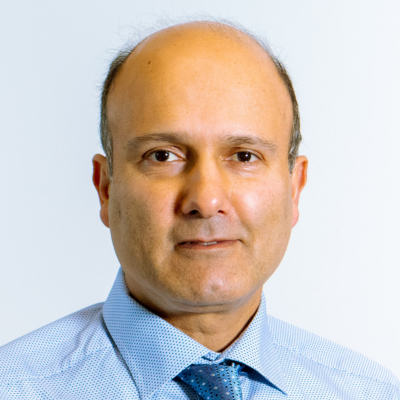
 Prof. Mohammad Shikh-Bahaei, Chair of Working Group one, One6G Association, King's College London
Prof. Mohammad Shikh-Bahaei, Chair of Working Group one, One6G Association, King's College London Prof. Mohammad R. Shikh-Bahaei has been engaged in research in the area of wireless communications over the past 30 years in academic and industrial organizations. He has worked for start-up companies on interference cancellation, network planning and optimisation of wireless networks. In 2000 he joined National Semiconductor Corp. (NSC), CA, USA, (now part of Texas Instruments) and worked within a team on the design of 3rd generation handsets based on UMTS standards, for which he has been awarded three US patents as inventor and co-inventor, respectively. He returned to the UK in 2002, and is now a full Professor of Telecommunications in the Department of Engineering, King’s College London. He has worked with numerous companies as collaborators in his projects, e.g. Nokia, Ericsson, Mediatek and Samsung, Toshiba and Thales.
Prof. Shikh-Bahaei has founded and chaired a number of IEEE conferences on wireless communications and signal processing, and given invited and keynote talks in various conferences and universities.
He has acted as expert consultant the technology companies in the UK and in the USA on 3G/HSPA/LTE and short range communication technologies.
He is the chair of Working Group 1 (WG1) of one6G association since 2022, and their representative in the ITU-R.
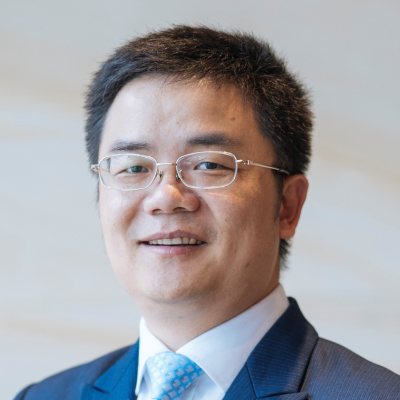
 Tan Bin, Vice Manager of Wireless Standards Department, Huawei
Tan Bin, Vice Manager of Wireless Standards Department, Huawei Mr. Bin Tan started his career for technology development and standards research of mobile communication system in 2003. He has been active in many wireless standard and industry organizations, such as 3GPP, ETSI, GSMA, WWRF, NGMN and CCSA.
He is currently the vice chairman of CCSA TC5 WG9, the steering board member of WWRF and the experts of TC124 Technical Review Group.
During the period of 2005-2013, he mainly participated in the work of 3GPP standards, made contributions to many standard topics such as VAMOS, Carrier Aggregation, and UMTS/LTE voice continuity.
From 2013 to 2015, responsible for the market development of the South America Area, based on the deep understanding of the mobile telecom market of Brazil, Chile and Peru, promoted the deployment of several commercial LTE networks.
Since 2016, he has been responsible for the vertical industry promotion, help NB-IoT technology to be adopted in various industry standards; currently his research area focuses on how 5G system engage with autonomous vehicle and industrial manufacturing.

 Kumar Singarajah, Vice Chair, UKSpace / techUK Satellite Telecommunications Committee (STC)
Kumar Singarajah, Vice Chair, UKSpace / techUK Satellite Telecommunications Committee (STC) Kumar Singarajah is Director of Euroma Ltd a boutique consultancy firm. Kumar has 30+ years of experience in the space, aerospace and communications industries with senior roles in UK and Europe, including with Arqit (UK), Astroscale (UK), Viasat (UK), Avanti Communications Group (UK), Global Radio (Luxembourg), ICO Global Communications (UK), Inmarsat (UK), SES ASTRA (Luxembourg), Logica GmBH (Germany) and Logica Ltd (UK). He was on the senior management teams at Astroscale and Avanti.
His professional experience includes satellite and terrestrial wireless communications systems engineering, spacecraft systems engineering, spectrum engineering, frequency coordination, market access and licensing, space business development, space sustainability, in-orbit servicing, quantum communications and cyber security.
Kumar was the previous Chair of the joint techuk / UKspace Satellite Telecommunications Committee and is its current Vice Chair. He is the current Chair of the UK Spectrum Policy Forum’s Cluster 4 (International) Group and an invited faculty member of the London Institute of Space Policy and Law. He is also a CEng, FCMI, FRAeS, FRAS, SMAIAA, MIET, MIEEE and M-IISL.
Kumar completed his BSc in Electrical Engineering at Imperial College / London University, his MSc in Mobile and Satellite Communications at the University of Surrey, and received an MBA from The Open University.

 Peng Zhao, Vice-President of Policy & Regulatory, GSOA
Peng Zhao, Vice-President of Policy & Regulatory, GSOA Peng is the Vice President of Policy & Regulatory at GSOA, where he leads advocacy efforts around spectrum management, licensing, and national policy initiatives. With experience in telecoms, mobile, and satellites, he has advised governments and industry players globally.
Previously at Eutelsat OneWeb, Peng shaped regulatory frameworks for Low Earth Orbit constellations and satellite licensing procedures for WRC-23. At GSMA, he led a global campaign optimizing spectrum licensing for mobile operators, engaging policymakers and advocating best practices across developing markets.
Peng holds a Master’s in Telecommunication from the Swiss Federal Institute of Technology and an Executive MBA from London Business School. He speaks English, Mandarin, and French fluently.

Nigel Jefferies is a senior standards manager with Huawei Technologies and Chairman of the Wireless World Research Forum, a global partnership between industry and academia to develop a research agenda for mobile communications. Previously he was Head of Academic Relationships within Vodafone Group Research & Development and a Principal Mathematician at Racal Research Ltd. In the past he led the European-funded IST project SHAMAN, which studied the security of future mobile systems, and ran the Secure Applications Steering Group for Mobile VCE. Other collaborative research projects on various aspects of security for mobile communications include 3GS3 in the UK-funded LINK programme, and ASPeCT and USECA in the European ACTS programme. His research interests include cryptography, security of systems and applications of mathematics to telecommunications. He received a PhD in functional analysis from Goldsmith’s College, London, and an MA in mathematics from the Queen’s College, Oxford, and is a visiting professor at Kingston University. He is a Fellow of the Institute of Mathematics and its Applications and a Chartered Mathematician.


Thomas Magedanz (PhD) has been professor at the Technische Universität Berlin, Germany, leading the chair for next generation networks (www.av.tu-berlin.de) since 2004. In addition, since 2003 he has been Director of the Business Unit Software-based Networks (NGNI) at the Fraunhofer Institute FOKUS (www.fokus.fraunhofer.de/go/ngni) in Berlin. Recently, he also joined the advisory board of Uniberg Group AG in Germany in February 2023.
For 35 years Prof. Magedanz has been a globally recognized ICT expert, working in the convergence field of telecommunications, Internet and information technologies understanding both the technology domains and the international market demands. He often acts as an independent technology consultant for international ICT companies. In the course of his applied research and development activities he created many internationally recognized prototype implementations of global telecommunications standards that provide the foundations for the efficient development of various open technology testbeds around the globe. His interest is in software-based 5G networks for different verticals, with a strong focus on public and non-public campus networks. The Fraunhofer 5G Playground (www.5G-Playground.org) represents, in this regard, the world´s most advanced Open 5G testbed which is based on the Open5GCore software toolkit (www.open5Gcore.org), representing the first reference implementation of the 3GPP 5G standalone architecture, which is currently also used by more than 110 international customers for testing against different RAN equipment in different use cases. For several years, he is actively supporting the development of open 5G campus networks based on the Open5GCore considering emerging campus networks as the prime spot for 5G innovation and starting point for the evolution towards 6G. Since 2022 he is coordinating the national BMWK flagship project CampusOS (www.Campus-OS.io) which aims to build an ecosystem for emerging open campus networks. In addition he acts as senior principal investigator for 6G core architectures within the two German 6G Hubs, namely Open6GHub and 6G-RIC.
His current research is targeting the 5G evolution towards 6G, including Core-RAN integration (including OpenRAN integration), integration of Satellite/Non-terrestrial Networks and 5G/6G, as well as AI/ML based 5G/6G automated network control and management, in which he is designing a new organic 6G core network. For the most recent research activities see also www.6G-ready.org

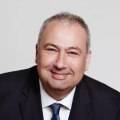
Dr. Wilhelm Eschweiler is one of the two vice presidents of the Federal Network Agency (Bundesnetzagentur). His responsibility includes telecommunications and rail.
In 2016, he served as Chair of the Body of European Regulators for Electronic Communications (BEREC).
Prior to that, he was responsible for the
European ICT policy in the Federal Ministry of
Economics and Energy, where he was head of
unit from 2007 until April 2014. From 2002 until
2006, he headed the unit for international
telecoms and postal services policy. There, he
was concerned with fundamental issues regarding regulation from 1998 until 2002.
After passing the Second State Exam in law, he worked at the Federal Ministry of Post and Telecommunications from 1992 until 1994. In 1994, he worked at the Directorate-General Information Society of the European Commission in Brussels. From 1995 until 1997, he worked as an advisor of the German Federal Minister Dr. Wolfgang Bötsch.
Dr. Eschweiler studied law at the Rheinische Friedrich-Wilhelms University in Bonn and at the University of Lausanne.

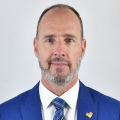
Uwe Löwenstein joined ITU in April 2020 as Counsellor for ITU-R Study Group 5 (Terrestrial Services) in the Radio Communications Bureau (BR) of ITU-R.
Before joining the United Nations, he worked for more than 20 years at Telefónica (o2) Germany, starting there in 1997, when “VIAG Interkom” built up the 4th GSM network in Germany. Based in Munich, he was responsible for the Telefónica activities in terms of spectrum management, frequency coordination and Electro-Magnetic Compatibility (EMC). In his role, he supported the Telefónica local operating businesses in their representation towards the national Regulatory Authorities (BNetzA) and participated at the German UMTS auction (2000), the 4G/LTE-auction (2010 & 2015) as well as the 5G-auction in 2019. Furthermore, he was the Telefónica representative at ITU-R WP5D and ECC/CEPT PT1 (both responsible for IMT) and member of the German delegation at WRC-03 / WRC-07 / WRC-12 / WRC-15 and WRC-19.


Bernard Barani joined the European Commission (EC) in 1994 after 11 years as Communication engineer in industry and with ESA. In the EC, he has been steering EU wireless R&I for more than 20 years. He currently leads the definition and implementation with industry of the European R&I programme “Smart Networks and Services (6G)” covering the 2021-2027 time frame. Main field of responsibilities covers strategic R&D planning and implementation for beyond 5G/6G systems, standardisation, international cooperation, demonstration and pilot programmes.
He is vice chairman of the Steering committee of the EUCNC conference, the showcasing event for telecom research sponsored by the EU. He has an engineering degree from the “Ecole Nationale Supérieure des Télécommunications de Bretagne” and is also a Fellow of WWRF (Wireless World Research Forum).

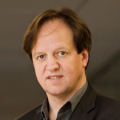
Professor Harald Haas received his PhD degree from The University of Edinburgh in 2001. He is a Distinguished Professor of Mobile Communications at the University of Strathclyde/Glasgow, Visiting Professor at the University of Edinburgh and the Director of the LiFi Research and Development Centre (LRDC). Prof Haas founded pureLiFi Ltd. and currently holds the position of Chief Scientific Officer (CSO). His most recent research interests are in combining physics and communication theory towards designing secure, high-speed and net-zero wireless multi-user access networks including distributed x-haul networks using the optical spectrum.
He has co-authored more than 650 conference and journal papers with more than 50,000 citations and holds more than 45 patents. He has been listed as highly cited researcher by Clarivate/Web of Science annually since 2017. Prof. Haas has delivered two TED talks and one TEDx talk which have been watched online more than 5.5 million times. In 2016, he was the recipient of the Outstanding Achievement Award from the International Solid State Lighting Alliance.
Prof Haas was awarded a Royal Society Wolfson Research Merit Award in 2017. In 2019 he received the IEEE Vehicular Society James Evans Avant Garde Award and the Enginuity The Connect Places Innovation Award in 2021. In 2022 he was the recipient of a Humboldt Research Award for his research achievements to date. He is a Fellow of the IEEE, a Fellow of the Royal Academy of Engineering (RAEng), a Fellow of the Royal Society of Edinburgh (RSE) and a Fellow of the Institution of Engineering and Technology (IET)

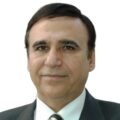
Bharat B Bhatia is the President and CEO of the ITU-APT Foundation of India (IAFI) and Vice Chairman and head of Asia Pacific for the World Wireless Research Forum (WWRF). Earlier he was also the President of TEMA – India’s Telecom Equipment Manufacturers Association and Vice President of Association of Telecom Industries of Singapore (ATIS). Mr. Bhatia was a senior spectrum regulator and ICT policy specialist with the Indian Ministry of Communications, where he worked in various departments for 21 years. He also worked in Motorola USA for 22 years where he was heading the international spectrum team of Motorola until 2018 and was actively involved in Public Safety and emergency communications. Mr. Bhatia was instrumental in opening of the Indian telecom to the private sector, including issue of the first ever cellular licenses in India and was also a key architect of India’s first ever National Frequency Allocation Plan, NFAP-81 and the first ever published NFAP in 2000. Mr. Bhatia has been actively participating in International Telecommunications Union (ITU), the UN agency for ICT meetings for the last 24 years and is currently the chairman of the ITU working group on 5G for industrial applications.

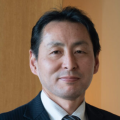
Mr. Takehiro Nakamura is now Chief Standardization Officer in NTT DOCOMO, Inc.
Mr. Nakamura has been engaged in R&D and the standardization activities for advanced radio and network technologies of W-CDMA, HSPA, LTE/LTE-Advanced, 5G and 6G, and engaged in strengthening inter-industry collaboration.
He has been contributing to standardization activities in ARIB, ITU and 3GPP since 1997, including as vice chair and chair of 3GPP TSG-RAN from 2005 to 2013.
Currently, he plays important roles to promote and accelerate 5G and 6G in Japan and globally as the Acting Chairman of Strategy & Planning Committee and the leader of Millimeter wave Promotion Ad Hoc of 5G Mobile Communications Promotion Forum(5GMF), the leader of Cellular System Task Group of ITS Info-communications Forum, the leader of White Paper Subcommittee in Beyond 5G Promotion Consortium in Japan and the Board member of 5G-ACIA.

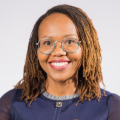
Ms. Thabisa Faye has 10 years of experience in the ICT sector across the African continent, having worked in over fifteen (15) countries. She has contributed to policy formation projects across the ICT sector, including leading the task of drafting the Postal Service Policy Green Paper in South Africa.
Ms Thabisa has experience in ICT regulatory Analysis, Economic Advisory, Renewable, Trust Management, Strategic Repositioning, Public Policy, and Project Management.
Throughout the years, she has played a critical role in the country’s technological advancements over the years; where she also served as the company representative to the ICT industry body, South African Communications Forum, by serving on the Policy and the Finance Committee and held two terms on the Board.
Ms. Faye holds a Master’s degree in International Development Management from the University of Westminster Business School, an Honours Degree in Development Studies from the University of the Western Cape and a Project Management Certificate from the University of Witwatersrand.


Bernard Barani joined the European Commission (EC) in 1994 after 11 years as Communication engineer in industry and with ESA. In the EC, he has been steering EU wireless R&I for more than 20 years. He currently leads the definition and implementation with industry of the European R&I programme “Smart Networks and Services (6G)” covering the 2021-2027 time frame. Main field of responsibilities covers strategic R&D planning and implementation for beyond 5G/6G systems, standardisation, international cooperation, demonstration and pilot programmes.
He is vice chairman of the Steering committee of the EUCNC conference, the showcasing event for telecom research sponsored by the EU. He has an engineering degree from the “Ecole Nationale Supérieure des Télécommunications de Bretagne” and is also a Fellow of WWRF (Wireless World Research Forum).

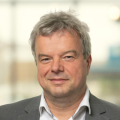
Toon Norp is a Senior Business Consultant at TNO. Toon Norp joined TNO (former KPN Research) in 1991, where he has since been working on network aspects of mobile communications. Toon advises operators, government organisation and others on strategy, and architecture related to M2M/IoT, Satcom, 5G and 6G.
He has been involved in standardisation of mobile networks for more than 25 years. As chairman of the 3GPP SA1 service aspects working group Toon was responsible for the requirements specification phase of 5G and was instrumental in getting several new sectors (e.g. public safety, satellite, media, railway, industry) involved in the 3GPP standardisation process. In 2021, Toon was elected as governing board member of the 6G SNS Industry Association (6G-IA), and represented the 6G-IA in the SNS Joint Undertaking Governing Board.
Toon holds a Master’s Degree in Electrical Engineering from the Eindhoven University of Technology, The Netherlands.

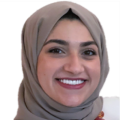
Nada Abdelhafez is Head of Spectrum and Regulatory Affairs for the Middle East, Africa and India at Shure Inc. In her role, she advocates for the spectrum needs of the PMSE industry, influences regulations and spectrum policies, ensures access to spectrum, and promotes new technologies for audio PMSE. Nada works closely with administrations, regulatory authorities, and policymakers to enable PMSE in the MEA region and in India.
Before joining Shure, Nada worked for Etisalat UAE, where she was involved in various activities related to spectrum management, technology standardization, and technology regulatory support.
Nada holds a Master’s degree in Electrical Engineering and has publications related to optimization and deep learning in audio and video streaming.

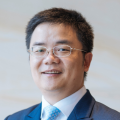
Mr. Bin Tan started his career for technology development and standards research of mobile communication system in 2003. He has been active in many wireless standard and industry organizations, such as 3GPP, ETSI, GSMA, WWRF, NGMN and CCSA.
He is currently the vice chairman of CCSA TC5 WG9, the steering board member of WWRF and the experts of TC124 Technical Review Group.
During the period of 2005-2013, he mainly participated in the work of 3GPP standards, made contributions to many standard topics such as VAMOS, Carrier Aggregation, and UMTS/LTE voice continuity.
From 2013 to 2015, responsible for the market development of the South America Area, based on the deep understanding of the mobile telecom market of Brazil, Chile and Peru, promoted the deployment of several commercial LTE networks.
Since 2016, he has been responsible for the vertical industry promotion, help NB-IoT technology to be adopted in various industry standards; currently his research area focuses on how 5G system engage with autonomous vehicle and industrial manufacturing.

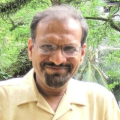
Sudhir Dixit is currently a Senior Fellow and Evangelist of Basic Internet at the Basic Internet Foundation in Norway and heads its San Francisco office. He has over 30 years of experience in computer networking and telecommunications, and related fields. From 2015 to 2017 he was the CEO and Co-Founder of a start-up, Skydoot, Inc, in the cloud-based and collaboration space. From December 2013 to April 2015, he was a Distinguished Chief Technologist and CTO of the Communications and Media Services for the Americas Region of Hewlett-Packard Enterprise Services in Palo Alto, CA, and prior to this he was the Director of Hewlett-Packard Labs India from September 2009. Prior to joining HP Labs Palo Alto, Dixit held a joint appointment with the Centre for Internet Excellence (CiE) and the Centre for Wireless Communications (CWC) at the University of Oulu, Finland. From 1996 to 2008, he held various positions with leading companies, such as with BlackBerry as Senior Director, with Nokia and Nokia Siemens Networks in the United States as Senior Research Manager, Nokia Research Fellow, Head of Nokia Research Centre (Boston), and Head of Network Technology (USA). From 1987 to 1996, he was at NYNEX Science and Technology and GTE Laboratories (both now Verizon Communications) as a Staff Director and Principal Research Scientist.
Dixit has 21 patents granted by the US PTO and has published over 200 papers and edited, co-edited, or authored eight books published by Wiley, Artech House and Springer. He is presently on the editorial boards of IEEE Spectrum Magazine, Cambridge University Press Wireless Series and Springer’s Wireless Personal Communications Journal and Central European Journal of Computer Science (CEJS). He is Chairman of the Working Group C on new directions in networking and communications at the Wireless World Research Forum (WWRF), where he is also a Board Member. From 2010 to 2012, he was an Adjunct Professor of Computer Science at the University of California, Davis, and, since 2010, he has been a Docent of Broadband Mobile Communications for Emerging Economies at the University of Oulu, Finland.
A Life Fellow of the IEEE, IET, and IETE, Dixit received a Ph.D. degree in electronic science and telecommunications from the University of Strathclyde, Glasgow, U.K. and an M.B.A. from the Florida Institute of Technology, Melbourne, Florida.

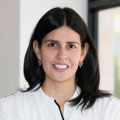
Dr Martha Suarez is President of the Dynamic Spectrum Alliance and has over 15 years of experience in the telecommunications industry. In her current role at the DSA she advocates for laws and regulations that will lead to more efficient and effective spectrum utilization, which is essential to addressing key worldwide social and economic challenges. She spent over three years as General Director of the National Spectrum Agency in Colombia, having originally joined the ANE in 2013. Before that, she was awarded with a Marie Curie Fellowship and worked at the Instytut Technologii Elektronowej ITE in Poland for the Partnership for Cognitive Radio Par4CR European Project. Suarez is an electronics engineer, with a master degree in high frequency communication systems and is Doctor in electronics from the University Paris-Est.

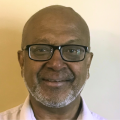
Kumar Singarajah is Director of Euroma Ltd a boutique consultancy firm. Kumar has 30+ years of experience in the space, aerospace and communications industries with senior roles in UK and Europe, including with Arqit (UK), Astroscale (UK), Viasat (UK), Avanti Communications Group (UK), Global Radio (Luxembourg), ICO Global Communications (UK), Inmarsat (UK), SES ASTRA (Luxembourg), Logica GmBH (Germany) and Logica Ltd (UK). He was on the senior management teams at Astroscale and Avanti.
His professional experience includes satellite and terrestrial wireless communications systems engineering, spacecraft systems engineering, spectrum engineering, frequency coordination, market access and licensing, space business development, space sustainability, in-orbit servicing, quantum communications and cyber security.
Kumar was the previous Chair of the joint techuk / UKspace Satellite Telecommunications Committee and is its current Vice Chair. He is the current Chair of the UK Spectrum Policy Forum’s Cluster 4 (International) Group and an invited faculty member of the London Institute of Space Policy and Law. He is also a CEng, FCMI, FRAeS, FRAS, SMAIAA, MIET, MIEEE and M-IISL.
Kumar completed his BSc in Electrical Engineering at Imperial College / London University, his MSc in Mobile and Satellite Communications at the University of Surrey, and received an MBA from The Open University.


Gary is Director, Technology at Ofcom, where he leads a team of engineers and data specialists that use their technical expertise inform current, and influence the direction of future, policy activities. Prior to this, as Director, Data Innovation, Gary established Ofcom’s first centre of excellence for data engineering and analytics. Prior to joining Ofcom in 2008, Gary led a team of researchers working in wireless and mobile communications for Toshiba Corporation in the UK.

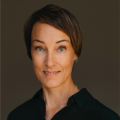
Tanja Tanayama is currently the Head of Digital Infrastructure Division in the Projects Directorate of the European Investment Bank (EIB). This division is responsible for the technical, economic, environmental and social due diligence of digital infrastructure projects considered for EIB financing and contributes to the definition of sectorial lending strategies and policies as well as the financing eligibilities.
Tanja started her EIB career in 2013 as Senior Economist focusing on R&D, innovation and competitiveness, then led collaboration and knowledge sharing activities with universities and research institutes as Head of Knowledge Programme and worked as Senior Advisor to the Secretary General. Before starting in her current position Tanja was Head of Division in the Advisory Services Department.
Tanja holds PhD in economics of innovation from the Helsinki School of Economics. Prior to joining the EIB her career focused on multidisciplinary, policy-oriented work related to innovation, development of new technologies and the design of related policies in various roles.


Mr. Bin Tan started his career for technology development and standards research of mobile communication system in 2003. He has been active in many wireless standard and industry organizations, such as 3GPP, ETSI, GSMA, WWRF, NGMN and CCSA.
He is currently the vice chairman of CCSA TC5 WG9, the steering board member of WWRF and the experts of TC124 Technical Review Group.
During the period of 2005-2013, he mainly participated in the work of 3GPP standards, made contributions to many standard topics such as VAMOS, Carrier Aggregation, and UMTS/LTE voice continuity.
From 2013 to 2015, responsible for the market development of the South America Area, based on the deep understanding of the mobile telecom market of Brazil, Chile and Peru, promoted the deployment of several commercial LTE networks.
Since 2016, he has been responsible for the vertical industry promotion, help NB-IoT technology to be adopted in various industry standards; currently his research area focuses on how 5G system engage with autonomous vehicle and industrial manufacturing.

A series of presentations showcasing some of the new connectivity technologies that may become part of the 6G ecosystem. After the presentations there will be a short Q&A, and then the audience will vote on whether they consider each technology as ‘science fiction or 6G reality’?
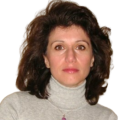
Angeliki Alexiou is a professor of Broadband Communications Systems at the department of Digital Systems, ICT School, University of Piraeus, Greece. She received the Diploma in Electrical and Computer Engineering from the National Technical University of Athens in 1994 and the PhD in Electrical Engineering from Imperial College of Science, Technology and Medicine, University of London in 2000.
Since May 2009 she has been a faculty member at the Department of Digital Systems, where she conducts research and teaches undergraduate and postgraduate courses in Broadband Communications and Advanced Wireless Technologies. Prior to this appointment she was with Bell Laboratories, Wireless Research, Lucent Technologies, (later Alcatel-Lucent, now NOKIA), in Swindon, UK, (January 1999–April 2009).
Professor Alexiou is a co-recipient of Bell Labs President’s Gold Award in 2002 for contributions to Bell Labs Layered Space-Time (BLAST) project and the Central Bell Labs Teamwork Award in 2004 for role model teamwork and technical achievements in the IST FITNESS project. Professor Alexiou is the Chair of the Working Group on Radio Communication Technologies and of the Working Group on High Frequencies Radio Technologies of the Wireless World Research Forum. Her current research interests include radio interface for 6G systems, MIMO, THz wireless communication technologies, Reconfigurable Intelligent Surfaces, Joint Communications and Sensing and Machine Learning for wireless systems. She is the project coordinator of the (H2020) TERRANOVA project and the technical manager of (H2020)ARIADNE project and (SNS JU) INSTINCT project.


Professor Harald Haas received his PhD degree from The University of Edinburgh in 2001. He is a Distinguished Professor of Mobile Communications at the University of Strathclyde/Glasgow, Visiting Professor at the University of Edinburgh and the Director of the LiFi Research and Development Centre (LRDC). Prof Haas founded pureLiFi Ltd. and currently holds the position of Chief Scientific Officer (CSO). His most recent research interests are in combining physics and communication theory towards designing secure, high-speed and net-zero wireless multi-user access networks including distributed x-haul networks using the optical spectrum.
He has co-authored more than 650 conference and journal papers with more than 50,000 citations and holds more than 45 patents. He has been listed as highly cited researcher by Clarivate/Web of Science annually since 2017. Prof. Haas has delivered two TED talks and one TEDx talk which have been watched online more than 5.5 million times. In 2016, he was the recipient of the Outstanding Achievement Award from the International Solid State Lighting Alliance.
Prof Haas was awarded a Royal Society Wolfson Research Merit Award in 2017. In 2019 he received the IEEE Vehicular Society James Evans Avant Garde Award and the Enginuity The Connect Places Innovation Award in 2021. In 2022 he was the recipient of a Humboldt Research Award for his research achievements to date. He is a Fellow of the IEEE, a Fellow of the Royal Academy of Engineering (RAEng), a Fellow of the Royal Society of Edinburgh (RSE) and a Fellow of the Institution of Engineering and Technology (IET)

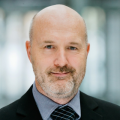
Uwe Baeder studied physics and electrical engineering and holds a physics diploma from the University of Kaiserslautern. He joined Rohde & Schwarz in 2000 as standards engineer for radio communication tester. He represented Rohde & Schwarz in various international standardization groups for wireless communications and oversaw the company’s presence on these committees. His interest was especially focused in the standardization of IMT systems within the 3rd Generation Partnership Project (3GPP). Here he contributed to the development of the test specifications, which are used as basis for radio regulation of wireless communication devices. At the same time, he was leading an international team for the development of certification tests for WCDMA/HSDPA, eCall, EWTS, LTE radio protocols including IMS and IoT standards like eMTC and NB-IoT. He is now director public affairs where he is responsible for digital policy and frequency regulation.

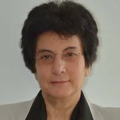
Professor Salous started her academic career as an Assistant Professor at Yarmouk University, Jordan. In 1989 she joined the Department of Electrical Engineering & Electronics at UMIST. In 2003 she joined Durham University where she currently holds the Chair in Communication Engineering and is the Director of the Centre for Communication Systems. Professor Salous radio propagation reseacrh covers HF for sky wave propagation for long range communication and UHF to the millimeter wave band for 5G mobile communications. In this area she introduced the digital frequency sweep technique for high bandwidth channel sounders for radio propagation studies. She is an active member of URSI, various COST actions and a member of the UK delegation to the International Union of Telecommunications.


Bharat B Bhatia is the President and CEO of the ITU-APT Foundation of India (IAFI) and Vice Chairman and head of Asia Pacific for the World Wireless Research Forum (WWRF). Earlier he was also the President of TEMA – India’s Telecom Equipment Manufacturers Association and Vice President of Association of Telecom Industries of Singapore (ATIS). Mr. Bhatia was a senior spectrum regulator and ICT policy specialist with the Indian Ministry of Communications, where he worked in various departments for 21 years. He also worked in Motorola USA for 22 years where he was heading the international spectrum team of Motorola until 2018 and was actively involved in Public Safety and emergency communications. Mr. Bhatia was instrumental in opening of the Indian telecom to the private sector, including issue of the first ever cellular licenses in India and was also a key architect of India’s first ever National Frequency Allocation Plan, NFAP-81 and the first ever published NFAP in 2000. Mr. Bhatia has been actively participating in International Telecommunications Union (ITU), the UN agency for ICT meetings for the last 24 years and is currently the chairman of the ITU working group on 5G for industrial applications.


Martin Maier is a full professor with the Institut National de la Recherche Scientifique (INRS), Montréal, Canada. He was educated at the Technical University of Berlin, Germany, and received MSc and PhD degrees both with distinctions (summa cum laude) in 1998 and 2003, respectively. In 2003, he was a postdoc fellow at the Massachusetts Institute of Technology (MIT), Cambridge, MA. He was a visiting professor at Stanford University, Stanford, CA, 2006 through 2007.
He was a co-recipient of the 2009 IEEE Communications Society Best Tutorial Paper Award. Further, he was a Marie Curie IIF Fellow of the European Commission from 2014 through 2015. In 2017, he received the Friedrich Wilhelm Bessel Research Award from the Alexander von Humboldt (AvH) Foundation in recognition of his accomplishments in research on FiWi-enhanced mobile networks. In 2017, he was named one of the three most promising scientists in the category “Contribution to a better society” of the Marie Skłodowska-Curie Actions (MSCA) 2017 Prize Award of the European Commission. In 2019/2020, he held a UC3M-Banco de Santander Excellence Chair at Universidad Carlos III de Madrid (UC3M), Madrid, Spain. Recently, in December 2023, he was awarded with the 2023 Technical Achievement Award of the IEEE Communication Society (ComSoc) Tactile Internet Technical Committee for his contribution on 6G/Next G and the design of Metaverse concepts and architectures as well as the 2023 Outstanding Paper Award of the IEEE Computer Society Bio-Inspired Computing STC for his contribution on the symbiosis between INTERnet and Human BEING (INTERBEING).
He is co-author of the book “Toward 6G: A New Era of Convergence” (Wiley-IEEE Press, January 2021) and author of the sequel “6G and Onward to Next G: The Road to the Multiverse” (Wiley-IEEE Press, February 2023). He served on the Technical Program Committees of IEEE INFOCOM, IEEE GLOBECOM, and IEEE ICC, and was an Editorial Board member of the IEEE Communications Surveys and Tutorials as well as ELSEVIER Computer Communications.


Sudhir Dixit is currently a Senior Fellow and Evangelist of Basic Internet at the Basic Internet Foundation in Norway and heads its San Francisco office. He has over 30 years of experience in computer networking and telecommunications, and related fields. From 2015 to 2017 he was the CEO and Co-Founder of a start-up, Skydoot, Inc, in the cloud-based and collaboration space. From December 2013 to April 2015, he was a Distinguished Chief Technologist and CTO of the Communications and Media Services for the Americas Region of Hewlett-Packard Enterprise Services in Palo Alto, CA, and prior to this he was the Director of Hewlett-Packard Labs India from September 2009. Prior to joining HP Labs Palo Alto, Dixit held a joint appointment with the Centre for Internet Excellence (CiE) and the Centre for Wireless Communications (CWC) at the University of Oulu, Finland. From 1996 to 2008, he held various positions with leading companies, such as with BlackBerry as Senior Director, with Nokia and Nokia Siemens Networks in the United States as Senior Research Manager, Nokia Research Fellow, Head of Nokia Research Centre (Boston), and Head of Network Technology (USA). From 1987 to 1996, he was at NYNEX Science and Technology and GTE Laboratories (both now Verizon Communications) as a Staff Director and Principal Research Scientist.
Dixit has 21 patents granted by the US PTO and has published over 200 papers and edited, co-edited, or authored eight books published by Wiley, Artech House and Springer. He is presently on the editorial boards of IEEE Spectrum Magazine, Cambridge University Press Wireless Series and Springer’s Wireless Personal Communications Journal and Central European Journal of Computer Science (CEJS). He is Chairman of the Working Group C on new directions in networking and communications at the Wireless World Research Forum (WWRF), where he is also a Board Member. From 2010 to 2012, he was an Adjunct Professor of Computer Science at the University of California, Davis, and, since 2010, he has been a Docent of Broadband Mobile Communications for Emerging Economies at the University of Oulu, Finland.
A Life Fellow of the IEEE, IET, and IETE, Dixit received a Ph.D. degree in electronic science and telecommunications from the University of Strathclyde, Glasgow, U.K. and an M.B.A. from the Florida Institute of Technology, Melbourne, Florida.

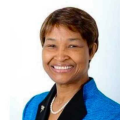
Ms. Bernadette Lewis was appointed as the Secretary-General of the Commonwealth Telecommunications Organisation in August 2020. This is a historic appointment as she is the first female Secretary-general in the 120-year history of the CTO. This is indeed a major accomplishment that should encourage women everywhere to strive for the mastery of whatever profession they may choose and especially in science and technology.
Breaking the glass ceiling is not new to Ms. Lewis; she was also the first female Secretary-General of the Caribbean Telecommunications Union (CTU) and she is credited for making the CTU the foremost information and communication technology (ICT) inter-governmental institution in the Caribbean.
A national of Trinidad and Tobago, Ms. Lewis brings to the CTO a wealth of experience in public and private sectors and is knowledgeable in national and regional ICT issues. The 4th Industrial Revolution, the COVID-19 pandemic and its associated financial contagion, is changing the world irrevocably, ushering us into an environment of unprecedented uncertainty. For the CTO, surviving, indeed thriving in this environment will necessitate innovative leadership, a deep understanding of ICT and faith and courage to deviate from the beaten paths of 20th Century thinking to build a 21st century organisation that is relevant and serves its members with integrity and excellence. Ms. Lewis brings these qualities to the CTO.

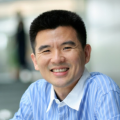
Tony Q.S. Quek received the B.E. and M.E. degrees in Electrical and Electronics Engineering from Tokyo Institute of Technology, respectively. At Massachusetts Institute of Technology, he earned the Ph.D. in Electrical Engineering and Computer Science. Currently, he is the Cheng Tsang Man ChairProfessor with Singapore University of Technology and Design (SUTD) and ST Engineering Distinguished Professor. He also serves as the Head of ISTD Pillar, Director for Future Communications R&D Programme, Sector Lead for SUTD AI Program, and the Deputy Director of SUTD-ZJU IDEA. His current research topics include wireless communications and networking, 6G, network intelligence, non-terrestrial networks, and open radio access network.
Dr. Quek has been actively involved in organizing and chairing sessions and has served as a TPC member in numerous international conferences. He is currently serving as an Area Editor for the IEEE Transactions on Wireless Communications. He was an Executive Editorial Committee Member of the IEEE Transactions on Wireless Communications, an Editor of the IEEE Transactions on Communications, and an Editor of the IEEE Wireless Communications Letters.
Dr. Quek received the 2008 Philip Yeo Prize for Outstanding Achievement in Research, the 2012 IEEE William R. Bennett Prize, the 2016 IEEE Signal Processing Society Young Author Best Paper Award, the 2017 CTTC Early Achievement Award, the 2017 IEEE ComSoc AP Outstanding Paper Award, the 2020 IEEE Communications Society Young Author Best Paper Award, the 2020 IEEE Stephen O. Rice Prize, the 2020 Nokia Visiting Professorship, the 2022 IEEE Signal Processing Society Best Paper Award, and the 2021-2023 World’s Top 2% Scientists. He is a Fellow of IEEE and a Fellow of the Academy of Engineering Singapore.

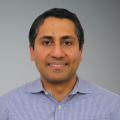
Abhimanyu (Manu) Gosain is a Senior Director for Institute of Wireless Internet of Things at Northeastern University, co-Chair for the FCC 6G Technology Advisory Council and Senior Advisor for NTIA and DoD OUSD R&E. He is in charge of setting strategic goals and the research agenda for a $100M public-private partnership for the NSF Platforms for Advanced Wireless Research (PAWR) program and $25M DARPA Colosseum program. He serves as a Board Member for the OpenAirInterface Software Alliance, Founding member for Magma Core Foundation, Academic research council representative for O-RAN Alliance, Technology Roadmap group member for NextG Alliance and co-chair on organizing committee and program committees for 6GSymposium, EuCNC,IEEE InfoCom and ACM WinTech. His numerous professional publications and experience exemplify use-inspired basic research in the field of networking technologies such as 5G,6G, AI/ML, edge computing and Internet of Things. He is an IEEE Senior Member. He received his M.S. degree from Tufts University and M.B.A. from Boston University with High Honors.

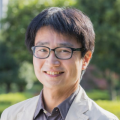
Dr. Ishizu received Ph.D from Kyushu university, Japan in 2005.
Since then, he has been working with NICT and dedicated to R&D on wireless networking systems including heterogeneous network, cognitive radio, TV white space system, local 5G (private 5G) and so on by prototyping and field experiments. He also has been involved with standardization activities such as IEEE802, ETSI and 3GPP.
From April 2021, he is directing the Beyond 5G design initiative of NICT, which was newly established to create the Beyond 5G R&D strategy and lead its activities. His current interests include Beyond 5G/6G architecture as open service platform enabling cross-industry orchestration to fully utilize social resources by cutting-edge technologies. For the global R&D collaborations, he has launched research workshops on Beyond 5G/6G for multiple combinations of countriesas well as moderating discussions on social issues to be caused by the technologies.

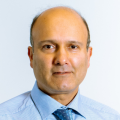
Prof. Mohammad R. Shikh-Bahaei has been engaged in research in the area of wireless communications over the past 30 years in academic and industrial organizations. He has worked for start-up companies on interference cancellation, network planning and optimisation of wireless networks. In 2000 he joined National Semiconductor Corp. (NSC), CA, USA, (now part of Texas Instruments) and worked within a team on the design of 3rd generation handsets based on UMTS standards, for which he has been awarded three US patents as inventor and co-inventor, respectively. He returned to the UK in 2002, and is now a full Professor of Telecommunications in the Department of Engineering, King’s College London. He has worked with numerous companies as collaborators in his projects, e.g. Nokia, Ericsson, Mediatek and Samsung, Toshiba and Thales.
Prof. Shikh-Bahaei has founded and chaired a number of IEEE conferences on wireless communications and signal processing, and given invited and keynote talks in various conferences and universities.
He has acted as expert consultant the technology companies in the UK and in the USA on 3G/HSPA/LTE and short range communication technologies.
He is the chair of Working Group 1 (WG1) of one6G association since 2022, and their representative in the ITU-R.

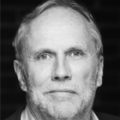
Knud Erik Skouby is professor and director of center for Communication, Media and Information technologies, Aalborg University-Copenhagen. Has a career as a university teacher and within consultancy since 1972. The working areas have for the last 25 years been within the telecom area focusing on mobile/ wireless: Techno-economic Analyses; Development of mobile/ wireless applications and services: Regulation of telecommunications.
Project manager and partner in a number of international, European and Danish research projects. He has served on a number of public committees within telecom, IT and broadcasting; as a member of boards of professional societies; as a member of organizing boards, evaluation committees and as invited speaker on international conferences; published a number of Danish and international articles, books and conference proceedings in the areas of convergence, mobile/ wireless development, telecommunications regulation, technology assessment (information technology and telecommunications), demand forecasting and political economy. Co-director of CTIF-International; Chair of WG1 in Wireless World Research Forum; Special Advisor to GISFI (The Global ICT Standardization Forum for India).


Sabine Meyer is head of section for “Telecommunications Security” at Bundesnetzagentur, the German regulator for electricity, gas, telecommunications, post and rail. She has wide-ranging regulatory experience in the railway and telecommunications sectors. From 2014 – 2016, Sabine was active in matters of international digital policy and internet governance at the German Ministry of Economic Affairs and Energy. Sabine Meyer is a lawyer.


Jan Schallaböck, attorney-at-law, is a partner at iRights.Law and in charge of the data protection and compliance practice of the firm.
Before joining iRights.Law, he was employed with the Data Protection Authority of the federal state of Schleswig-Holstein (ULD), being tasked with the working within various European research projects together with – amongst others – Microsoft, IBM, SAP and the Universities of Oxford, Leuven and Frankfurt. His commitment to international standardization also stems from this context.
Jan is chairman of ISO PC 317 on “Consumer protection: privacy by design for consumer goods and services”, and he also serves as Convener-support to the ISO/IEC Working Group on privacy and identity management (ISO/IEC JTC 1/SC 27/WG 5).
He studied law in Marburg and Berlin, with a major in European and International Law. Part of his legal training was at the Foreign Service, at the embassy in Almaty, Kazakhstan, as well as the unit for ICT-regulation at the Berlin headquarters. During different stages of Legal Training at law firms, he was also involved with questions of Internet governance, copyright, freedom of speech and arbitration.


Greig is the deputy chair of the UKTIN Security Expert Working Group, and the founding deputy chair of the UK Telecoms Data Taskforce; voluntary groups which work closely with Government to deliver impartial and independent input and guidance around matters pertaining to telecoms networks and security.
His background extends from end-to-end telecoms networks (both fixed and mobile), as well as in security of critical infrastructure and communications systems, and has worked with governments and organisations around the world on telecoms security resilience, and how to deliver decarbonised power grids by harnessing resilient telecoms networks to integrate customers and assets into a genuinely smart grid.
Greig continues to support a range of telecoms research & innovation projects alongside his strategic advisory work, and is the technical lead of a UK Open RAN research project (Project DONE).

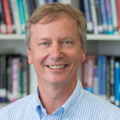
Gerhard P. Fettweis, earned a Ph.D. under H. Meyr at RWTH Aachen in 1990. After a postdoc at IBM Research, San Jose, he joined TCSI, Berkeley, USA. Since 1994 he is Vodafone Chair Professor at TU Dresden, Germany. Since 2018 he is also founding Scientific Director & CEO of the Barkhausen Institute. He researches wireless transmission and chip design, coordinates 5G++Lab Germany and the German Cluster-for-Future SEMECO. His team spun-out 19 tech and 3 non-tech startups, and he initiated 4 platform companies. Gerhard is member and senator of the German Academy of Sciences (Leopoldina), and member of the German Academy of Engineering (Acatech), and a WWRF Fellow. He is active in helping organize IEEE conferences.


Nigel Jefferies is a senior standards manager with Huawei Technologies and Chairman of the Wireless World Research Forum, a global partnership between industry and academia to develop a research agenda for mobile communications. Previously he was Head of Academic Relationships within Vodafone Group Research & Development and a Principal Mathematician at Racal Research Ltd. In the past he led the European-funded IST project SHAMAN, which studied the security of future mobile systems, and ran the Secure Applications Steering Group for Mobile VCE. Other collaborative research projects on various aspects of security for mobile communications include 3GS3 in the UK-funded LINK programme, and ASPeCT and USECA in the European ACTS programme. His research interests include cryptography, security of systems and applications of mathematics to telecommunications. He received a PhD in functional analysis from Goldsmith’s College, London, and an MA in mathematics from the Queen’s College, Oxford, and is a visiting professor at Kingston University. He is a Fellow of the Institute of Mathematics and its Applications and a Chartered Mathematician.

The breakout huddles this year will be based around the 4 overarching aspects that have been identified in the ITU’s 6G Vision as essential design principles that are applicable to all areas of 6G development and future usage scenarios.
Delegates will have the opportunity to choose one of four interactive discussions to participate in:

Bharat B Bhatia is the President and CEO of the ITU-APT Foundation of India (IAFI) and Vice Chairman and head of Asia Pacific for the World Wireless Research Forum (WWRF). Earlier he was also the President of TEMA – India’s Telecom Equipment Manufacturers Association and Vice President of Association of Telecom Industries of Singapore (ATIS). Mr. Bhatia was a senior spectrum regulator and ICT policy specialist with the Indian Ministry of Communications, where he worked in various departments for 21 years. He also worked in Motorola USA for 22 years where he was heading the international spectrum team of Motorola until 2018 and was actively involved in Public Safety and emergency communications. Mr. Bhatia was instrumental in opening of the Indian telecom to the private sector, including issue of the first ever cellular licenses in India and was also a key architect of India’s first ever National Frequency Allocation Plan, NFAP-81 and the first ever published NFAP in 2000. Mr. Bhatia has been actively participating in International Telecommunications Union (ITU), the UN agency for ICT meetings for the last 24 years and is currently the chairman of the ITU working group on 5G for industrial applications.


Professor Harald Haas received his PhD degree from The University of Edinburgh in 2001. He is a Distinguished Professor of Mobile Communications at the University of Strathclyde/Glasgow, Visiting Professor at the University of Edinburgh and the Director of the LiFi Research and Development Centre (LRDC). Prof Haas founded pureLiFi Ltd. and currently holds the position of Chief Scientific Officer (CSO). His most recent research interests are in combining physics and communication theory towards designing secure, high-speed and net-zero wireless multi-user access networks including distributed x-haul networks using the optical spectrum.
He has co-authored more than 650 conference and journal papers with more than 50,000 citations and holds more than 45 patents. He has been listed as highly cited researcher by Clarivate/Web of Science annually since 2017. Prof. Haas has delivered two TED talks and one TEDx talk which have been watched online more than 5.5 million times. In 2016, he was the recipient of the Outstanding Achievement Award from the International Solid State Lighting Alliance.
Prof Haas was awarded a Royal Society Wolfson Research Merit Award in 2017. In 2019 he received the IEEE Vehicular Society James Evans Avant Garde Award and the Enginuity The Connect Places Innovation Award in 2021. In 2022 he was the recipient of a Humboldt Research Award for his research achievements to date. He is a Fellow of the IEEE, a Fellow of the Royal Academy of Engineering (RAEng), a Fellow of the Royal Society of Edinburgh (RSE) and a Fellow of the Institution of Engineering and Technology (IET)

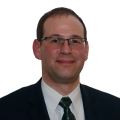
Alexander Kuhn is Head of Section International and National Spectrum Management, BNetzA
Alexander Kuhn has 20 years of experience in the field of spectrum regulation and participates in various international groups of CEPT, RSPG, BEREC and the ITU. He led the European Countries at WRC 2015 and 2019. Since 2021 he is leading the national section on Spectrum Management at BNetzA, which is responsible for spectrum strategy, planning and innovative applications.
He is currently the Chairman of the ITU-R Conference Preparatory Meeting towards WRC 2027 (CPM-27).

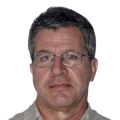
Dr. Tassos Lyratzis is an Electrical & Computer Engineer and holds a PhD in the field of Telecommunications & Computer Networks (1994). During his PhD studies, he worked as a specialist in Telecommunications in various European research projects.
He is currently working in the Hellenic Telecommunications and Post Commission (EETT) since 2001, in the Spectrum Directorate. He has been the Head of the Spectrum Management Department (2003-2006) when EETT was involved in the Spectrum Management of the Olympic Games of Athens in 2004. Since 2011 he is Head (Director) of Spectrum Division of EETT.
He participates in international activities in CEPT (WGFM and ECC) as well as in European Union groups like the Radio Spectrum Committee (2003-2006), and the Radio Spectrum Policy Group (2011 – today). Since 2016 he has been co-chair of the RSPG sub-Group working on 5G and 6G topics.

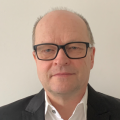
Rauno Ruismäki was born in Seinäjoki, Finland in 1961 and received M.Sc.(EE) in 1988 from the University of Oulu, Faculty of Technology, Department of Electrical and Information Engineering. He worked for Nokia Telecommunications since 1986 until joining Finnish telecomms Regulator, Telecommunications Administration Centre, in 1990. There he was working with standards and regulatory related topics of mobile communication systems.
Mr Ruismäki moved to Nokia in 1998 to work on spectrum policy and related regulatory matters. His work includes technical, political, and regulatory aspects of spectrum matters and he has participated extensively in international working groups (e.g. in ITU-R, CEPT) and have had several chairmen and editor appointments. His main focus has been international work related to IMT issues. He was nominated Nokia Engineer Fellow in 2003. Today he is focusing on 5G and 6G spectrum aspects in Nokia Networks, Strategy & Technology.
Currently he is the chairman of SWG on IMT Characteristics in WP 5D and Chairman of GSA CEPT Team.


Peng is the Vice President of Policy & Regulatory at GSOA, where he leads advocacy efforts around spectrum management, licensing, and national policy initiatives. With experience in telecoms, mobile, and satellites, he has advised governments and industry players globally.
Previously at Eutelsat OneWeb, Peng shaped regulatory frameworks for Low Earth Orbit constellations and satellite licensing procedures for WRC-23. At GSMA, he led a global campaign optimizing spectrum licensing for mobile operators, engaging policymakers and advocating best practices across developing markets.
Peng holds a Master’s in Telecommunication from the Swiss Federal Institute of Technology and an Executive MBA from London Business School. He speaks English, Mandarin, and French fluently.

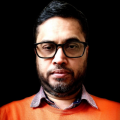
Dr. Nuwan Weerasinghe is an experienced professional in the field of information and communication technology, boasting over two decades of diverse experience spanning engineering, the software industry, and academia.
He earned his B.Sc. in Electrical and Information Engineering from the University of Ruhuna, Sri Lanka, and a Ph.D. from Kingston University, London, focusing on “Security and Reliability for Future Multi-Hop Wireless Networks.”
As an entrepreneur, Dr. Weerasinghe founded several tech ventures, He currently leads SIMULTELCO as the Founder and CEO. The company leads in creating cutting-edge, cloud-based simulator for 6G technology. He also applies his knowledge as a Consultant for the World Health Organization in Europe, driving AI research and cloud system management, and as a Visiting Lecturer at Kingston University’s Faculty of Engineering, Computing, and the Environment.
Since 2020, Dr. Weerasinghe has been an integral member of the WWRF Independent Evaluation Group, assessing IMT-2020 technologies. With a deep-rooted interest in network optimization and security for 5G and beyond, alongside application development leveraging AI and ML-based cloud technologies, Dr. Weerasinghe has made substantial academic contributions. He has shared his insights and findings through numerous publications in esteemed journals, book chapters, and conferences.


Nigel Jefferies is a senior standards manager with Huawei Technologies and Chairman of the Wireless World Research Forum, a global partnership between industry and academia to develop a research agenda for mobile communications. Previously he was Head of Academic Relationships within Vodafone Group Research & Development and a Principal Mathematician at Racal Research Ltd. In the past he led the European-funded IST project SHAMAN, which studied the security of future mobile systems, and ran the Secure Applications Steering Group for Mobile VCE. Other collaborative research projects on various aspects of security for mobile communications include 3GS3 in the UK-funded LINK programme, and ASPeCT and USECA in the European ACTS programme. His research interests include cryptography, security of systems and applications of mathematics to telecommunications. He received a PhD in functional analysis from Goldsmith’s College, London, and an MA in mathematics from the Queen’s College, Oxford, and is a visiting professor at Kingston University. He is a Fellow of the Institute of Mathematics and its Applications and a Chartered Mathematician.


Nigel Jefferies is a senior standards manager with Huawei Technologies and Chairman of the Wireless World Research Forum, a global partnership between industry and academia to develop a research agenda for mobile communications. Previously he was Head of Academic Relationships within Vodafone Group Research & Development and a Principal Mathematician at Racal Research Ltd. In the past he led the European-funded IST project SHAMAN, which studied the security of future mobile systems, and ran the Secure Applications Steering Group for Mobile VCE. Other collaborative research projects on various aspects of security for mobile communications include 3GS3 in the UK-funded LINK programme, and ASPeCT and USECA in the European ACTS programme. His research interests include cryptography, security of systems and applications of mathematics to telecommunications. He received a PhD in functional analysis from Goldsmith’s College, London, and an MA in mathematics from the Queen’s College, Oxford, and is a visiting professor at Kingston University. He is a Fellow of the Institute of Mathematics and its Applications and a Chartered Mathematician.


Thomas Magedanz (PhD) has been professor at the Technische Universität Berlin, Germany, leading the chair for next generation networks (www.av.tu-berlin.de) since 2004. In addition, since 2003 he has been Director of the Business Unit Software-based Networks (NGNI) at the Fraunhofer Institute FOKUS (www.fokus.fraunhofer.de/go/ngni) in Berlin. Recently, he also joined the advisory board of Uniberg Group AG in Germany in February 2023.
For 35 years Prof. Magedanz has been a globally recognized ICT expert, working in the convergence field of telecommunications, Internet and information technologies understanding both the technology domains and the international market demands. He often acts as an independent technology consultant for international ICT companies. In the course of his applied research and development activities he created many internationally recognized prototype implementations of global telecommunications standards that provide the foundations for the efficient development of various open technology testbeds around the globe. His interest is in software-based 5G networks for different verticals, with a strong focus on public and non-public campus networks. The Fraunhofer 5G Playground (www.5G-Playground.org) represents, in this regard, the world´s most advanced Open 5G testbed which is based on the Open5GCore software toolkit (www.open5Gcore.org), representing the first reference implementation of the 3GPP 5G standalone architecture, which is currently also used by more than 110 international customers for testing against different RAN equipment in different use cases. For several years, he is actively supporting the development of open 5G campus networks based on the Open5GCore considering emerging campus networks as the prime spot for 5G innovation and starting point for the evolution towards 6G. Since 2022 he is coordinating the national BMWK flagship project CampusOS (www.Campus-OS.io) which aims to build an ecosystem for emerging open campus networks. In addition he acts as senior principal investigator for 6G core architectures within the two German 6G Hubs, namely Open6GHub and 6G-RIC.
His current research is targeting the 5G evolution towards 6G, including Core-RAN integration (including OpenRAN integration), integration of Satellite/Non-terrestrial Networks and 5G/6G, as well as AI/ML based 5G/6G automated network control and management, in which he is designing a new organic 6G core network. For the most recent research activities see also www.6G-ready.org


Dr. Wilhelm Eschweiler is one of the two vice presidents of the Federal Network Agency (Bundesnetzagentur). His responsibility includes telecommunications and rail.
In 2016, he served as Chair of the Body of European Regulators for Electronic Communications (BEREC).
Prior to that, he was responsible for the
European ICT policy in the Federal Ministry of
Economics and Energy, where he was head of
unit from 2007 until April 2014. From 2002 until
2006, he headed the unit for international
telecoms and postal services policy. There, he
was concerned with fundamental issues regarding regulation from 1998 until 2002.
After passing the Second State Exam in law, he worked at the Federal Ministry of Post and Telecommunications from 1992 until 1994. In 1994, he worked at the Directorate-General Information Society of the European Commission in Brussels. From 1995 until 1997, he worked as an advisor of the German Federal Minister Dr. Wolfgang Bötsch.
Dr. Eschweiler studied law at the Rheinische Friedrich-Wilhelms University in Bonn and at the University of Lausanne.


Uwe Löwenstein joined ITU in April 2020 as Counsellor for ITU-R Study Group 5 (Terrestrial Services) in the Radio Communications Bureau (BR) of ITU-R.
Before joining the United Nations, he worked for more than 20 years at Telefónica (o2) Germany, starting there in 1997, when “VIAG Interkom” built up the 4th GSM network in Germany. Based in Munich, he was responsible for the Telefónica activities in terms of spectrum management, frequency coordination and Electro-Magnetic Compatibility (EMC). In his role, he supported the Telefónica local operating businesses in their representation towards the national Regulatory Authorities (BNetzA) and participated at the German UMTS auction (2000), the 4G/LTE-auction (2010 & 2015) as well as the 5G-auction in 2019. Furthermore, he was the Telefónica representative at ITU-R WP5D and ECC/CEPT PT1 (both responsible for IMT) and member of the German delegation at WRC-03 / WRC-07 / WRC-12 / WRC-15 and WRC-19.


Bernard Barani joined the European Commission (EC) in 1994 after 11 years as Communication engineer in industry and with ESA. In the EC, he has been steering EU wireless R&I for more than 20 years. He currently leads the definition and implementation with industry of the European R&I programme “Smart Networks and Services (6G)” covering the 2021-2027 time frame. Main field of responsibilities covers strategic R&D planning and implementation for beyond 5G/6G systems, standardisation, international cooperation, demonstration and pilot programmes.
He is vice chairman of the Steering committee of the EUCNC conference, the showcasing event for telecom research sponsored by the EU. He has an engineering degree from the “Ecole Nationale Supérieure des Télécommunications de Bretagne” and is also a Fellow of WWRF (Wireless World Research Forum).


Professor Harald Haas received his PhD degree from The University of Edinburgh in 2001. He is a Distinguished Professor of Mobile Communications at the University of Strathclyde/Glasgow, Visiting Professor at the University of Edinburgh and the Director of the LiFi Research and Development Centre (LRDC). Prof Haas founded pureLiFi Ltd. and currently holds the position of Chief Scientific Officer (CSO). His most recent research interests are in combining physics and communication theory towards designing secure, high-speed and net-zero wireless multi-user access networks including distributed x-haul networks using the optical spectrum.
He has co-authored more than 650 conference and journal papers with more than 50,000 citations and holds more than 45 patents. He has been listed as highly cited researcher by Clarivate/Web of Science annually since 2017. Prof. Haas has delivered two TED talks and one TEDx talk which have been watched online more than 5.5 million times. In 2016, he was the recipient of the Outstanding Achievement Award from the International Solid State Lighting Alliance.
Prof Haas was awarded a Royal Society Wolfson Research Merit Award in 2017. In 2019 he received the IEEE Vehicular Society James Evans Avant Garde Award and the Enginuity The Connect Places Innovation Award in 2021. In 2022 he was the recipient of a Humboldt Research Award for his research achievements to date. He is a Fellow of the IEEE, a Fellow of the Royal Academy of Engineering (RAEng), a Fellow of the Royal Society of Edinburgh (RSE) and a Fellow of the Institution of Engineering and Technology (IET)


Bharat B Bhatia is the President and CEO of the ITU-APT Foundation of India (IAFI) and Vice Chairman and head of Asia Pacific for the World Wireless Research Forum (WWRF). Earlier he was also the President of TEMA – India’s Telecom Equipment Manufacturers Association and Vice President of Association of Telecom Industries of Singapore (ATIS). Mr. Bhatia was a senior spectrum regulator and ICT policy specialist with the Indian Ministry of Communications, where he worked in various departments for 21 years. He also worked in Motorola USA for 22 years where he was heading the international spectrum team of Motorola until 2018 and was actively involved in Public Safety and emergency communications. Mr. Bhatia was instrumental in opening of the Indian telecom to the private sector, including issue of the first ever cellular licenses in India and was also a key architect of India’s first ever National Frequency Allocation Plan, NFAP-81 and the first ever published NFAP in 2000. Mr. Bhatia has been actively participating in International Telecommunications Union (ITU), the UN agency for ICT meetings for the last 24 years and is currently the chairman of the ITU working group on 5G for industrial applications.


Mr. Takehiro Nakamura is now Chief Standardization Officer in NTT DOCOMO, Inc.
Mr. Nakamura has been engaged in R&D and the standardization activities for advanced radio and network technologies of W-CDMA, HSPA, LTE/LTE-Advanced, 5G and 6G, and engaged in strengthening inter-industry collaboration.
He has been contributing to standardization activities in ARIB, ITU and 3GPP since 1997, including as vice chair and chair of 3GPP TSG-RAN from 2005 to 2013.
Currently, he plays important roles to promote and accelerate 5G and 6G in Japan and globally as the Acting Chairman of Strategy & Planning Committee and the leader of Millimeter wave Promotion Ad Hoc of 5G Mobile Communications Promotion Forum(5GMF), the leader of Cellular System Task Group of ITS Info-communications Forum, the leader of White Paper Subcommittee in Beyond 5G Promotion Consortium in Japan and the Board member of 5G-ACIA.


Ms. Thabisa Faye has 10 years of experience in the ICT sector across the African continent, having worked in over fifteen (15) countries. She has contributed to policy formation projects across the ICT sector, including leading the task of drafting the Postal Service Policy Green Paper in South Africa.
Ms Thabisa has experience in ICT regulatory Analysis, Economic Advisory, Renewable, Trust Management, Strategic Repositioning, Public Policy, and Project Management.
Throughout the years, she has played a critical role in the country’s technological advancements over the years; where she also served as the company representative to the ICT industry body, South African Communications Forum, by serving on the Policy and the Finance Committee and held two terms on the Board.
Ms. Faye holds a Master’s degree in International Development Management from the University of Westminster Business School, an Honours Degree in Development Studies from the University of the Western Cape and a Project Management Certificate from the University of Witwatersrand.


Bernard Barani joined the European Commission (EC) in 1994 after 11 years as Communication engineer in industry and with ESA. In the EC, he has been steering EU wireless R&I for more than 20 years. He currently leads the definition and implementation with industry of the European R&I programme “Smart Networks and Services (6G)” covering the 2021-2027 time frame. Main field of responsibilities covers strategic R&D planning and implementation for beyond 5G/6G systems, standardisation, international cooperation, demonstration and pilot programmes.
He is vice chairman of the Steering committee of the EUCNC conference, the showcasing event for telecom research sponsored by the EU. He has an engineering degree from the “Ecole Nationale Supérieure des Télécommunications de Bretagne” and is also a Fellow of WWRF (Wireless World Research Forum).


Toon Norp is a Senior Business Consultant at TNO. Toon Norp joined TNO (former KPN Research) in 1991, where he has since been working on network aspects of mobile communications. Toon advises operators, government organisation and others on strategy, and architecture related to M2M/IoT, Satcom, 5G and 6G.
He has been involved in standardisation of mobile networks for more than 25 years. As chairman of the 3GPP SA1 service aspects working group Toon was responsible for the requirements specification phase of 5G and was instrumental in getting several new sectors (e.g. public safety, satellite, media, railway, industry) involved in the 3GPP standardisation process. In 2021, Toon was elected as governing board member of the 6G SNS Industry Association (6G-IA), and represented the 6G-IA in the SNS Joint Undertaking Governing Board.
Toon holds a Master’s Degree in Electrical Engineering from the Eindhoven University of Technology, The Netherlands.


Nada Abdelhafez is Head of Spectrum and Regulatory Affairs for the Middle East, Africa and India at Shure Inc. In her role, she advocates for the spectrum needs of the PMSE industry, influences regulations and spectrum policies, ensures access to spectrum, and promotes new technologies for audio PMSE. Nada works closely with administrations, regulatory authorities, and policymakers to enable PMSE in the MEA region and in India.
Before joining Shure, Nada worked for Etisalat UAE, where she was involved in various activities related to spectrum management, technology standardization, and technology regulatory support.
Nada holds a Master’s degree in Electrical Engineering and has publications related to optimization and deep learning in audio and video streaming.


Mr. Bin Tan started his career for technology development and standards research of mobile communication system in 2003. He has been active in many wireless standard and industry organizations, such as 3GPP, ETSI, GSMA, WWRF, NGMN and CCSA.
He is currently the vice chairman of CCSA TC5 WG9, the steering board member of WWRF and the experts of TC124 Technical Review Group.
During the period of 2005-2013, he mainly participated in the work of 3GPP standards, made contributions to many standard topics such as VAMOS, Carrier Aggregation, and UMTS/LTE voice continuity.
From 2013 to 2015, responsible for the market development of the South America Area, based on the deep understanding of the mobile telecom market of Brazil, Chile and Peru, promoted the deployment of several commercial LTE networks.
Since 2016, he has been responsible for the vertical industry promotion, help NB-IoT technology to be adopted in various industry standards; currently his research area focuses on how 5G system engage with autonomous vehicle and industrial manufacturing.


Sudhir Dixit is currently a Senior Fellow and Evangelist of Basic Internet at the Basic Internet Foundation in Norway and heads its San Francisco office. He has over 30 years of experience in computer networking and telecommunications, and related fields. From 2015 to 2017 he was the CEO and Co-Founder of a start-up, Skydoot, Inc, in the cloud-based and collaboration space. From December 2013 to April 2015, he was a Distinguished Chief Technologist and CTO of the Communications and Media Services for the Americas Region of Hewlett-Packard Enterprise Services in Palo Alto, CA, and prior to this he was the Director of Hewlett-Packard Labs India from September 2009. Prior to joining HP Labs Palo Alto, Dixit held a joint appointment with the Centre for Internet Excellence (CiE) and the Centre for Wireless Communications (CWC) at the University of Oulu, Finland. From 1996 to 2008, he held various positions with leading companies, such as with BlackBerry as Senior Director, with Nokia and Nokia Siemens Networks in the United States as Senior Research Manager, Nokia Research Fellow, Head of Nokia Research Centre (Boston), and Head of Network Technology (USA). From 1987 to 1996, he was at NYNEX Science and Technology and GTE Laboratories (both now Verizon Communications) as a Staff Director and Principal Research Scientist.
Dixit has 21 patents granted by the US PTO and has published over 200 papers and edited, co-edited, or authored eight books published by Wiley, Artech House and Springer. He is presently on the editorial boards of IEEE Spectrum Magazine, Cambridge University Press Wireless Series and Springer’s Wireless Personal Communications Journal and Central European Journal of Computer Science (CEJS). He is Chairman of the Working Group C on new directions in networking and communications at the Wireless World Research Forum (WWRF), where he is also a Board Member. From 2010 to 2012, he was an Adjunct Professor of Computer Science at the University of California, Davis, and, since 2010, he has been a Docent of Broadband Mobile Communications for Emerging Economies at the University of Oulu, Finland.
A Life Fellow of the IEEE, IET, and IETE, Dixit received a Ph.D. degree in electronic science and telecommunications from the University of Strathclyde, Glasgow, U.K. and an M.B.A. from the Florida Institute of Technology, Melbourne, Florida.


Dr Martha Suarez is President of the Dynamic Spectrum Alliance and has over 15 years of experience in the telecommunications industry. In her current role at the DSA she advocates for laws and regulations that will lead to more efficient and effective spectrum utilization, which is essential to addressing key worldwide social and economic challenges. She spent over three years as General Director of the National Spectrum Agency in Colombia, having originally joined the ANE in 2013. Before that, she was awarded with a Marie Curie Fellowship and worked at the Instytut Technologii Elektronowej ITE in Poland for the Partnership for Cognitive Radio Par4CR European Project. Suarez is an electronics engineer, with a master degree in high frequency communication systems and is Doctor in electronics from the University Paris-Est.


Kumar Singarajah is Director of Euroma Ltd a boutique consultancy firm. Kumar has 30+ years of experience in the space, aerospace and communications industries with senior roles in UK and Europe, including with Arqit (UK), Astroscale (UK), Viasat (UK), Avanti Communications Group (UK), Global Radio (Luxembourg), ICO Global Communications (UK), Inmarsat (UK), SES ASTRA (Luxembourg), Logica GmBH (Germany) and Logica Ltd (UK). He was on the senior management teams at Astroscale and Avanti.
His professional experience includes satellite and terrestrial wireless communications systems engineering, spacecraft systems engineering, spectrum engineering, frequency coordination, market access and licensing, space business development, space sustainability, in-orbit servicing, quantum communications and cyber security.
Kumar was the previous Chair of the joint techuk / UKspace Satellite Telecommunications Committee and is its current Vice Chair. He is the current Chair of the UK Spectrum Policy Forum’s Cluster 4 (International) Group and an invited faculty member of the London Institute of Space Policy and Law. He is also a CEng, FCMI, FRAeS, FRAS, SMAIAA, MIET, MIEEE and M-IISL.
Kumar completed his BSc in Electrical Engineering at Imperial College / London University, his MSc in Mobile and Satellite Communications at the University of Surrey, and received an MBA from The Open University.


Gary is Director, Technology at Ofcom, where he leads a team of engineers and data specialists that use their technical expertise inform current, and influence the direction of future, policy activities. Prior to this, as Director, Data Innovation, Gary established Ofcom’s first centre of excellence for data engineering and analytics. Prior to joining Ofcom in 2008, Gary led a team of researchers working in wireless and mobile communications for Toshiba Corporation in the UK.


Tanja Tanayama is currently the Head of Digital Infrastructure Division in the Projects Directorate of the European Investment Bank (EIB). This division is responsible for the technical, economic, environmental and social due diligence of digital infrastructure projects considered for EIB financing and contributes to the definition of sectorial lending strategies and policies as well as the financing eligibilities.
Tanja started her EIB career in 2013 as Senior Economist focusing on R&D, innovation and competitiveness, then led collaboration and knowledge sharing activities with universities and research institutes as Head of Knowledge Programme and worked as Senior Advisor to the Secretary General. Before starting in her current position Tanja was Head of Division in the Advisory Services Department.
Tanja holds PhD in economics of innovation from the Helsinki School of Economics. Prior to joining the EIB her career focused on multidisciplinary, policy-oriented work related to innovation, development of new technologies and the design of related policies in various roles.


Mr. Bin Tan started his career for technology development and standards research of mobile communication system in 2003. He has been active in many wireless standard and industry organizations, such as 3GPP, ETSI, GSMA, WWRF, NGMN and CCSA.
He is currently the vice chairman of CCSA TC5 WG9, the steering board member of WWRF and the experts of TC124 Technical Review Group.
During the period of 2005-2013, he mainly participated in the work of 3GPP standards, made contributions to many standard topics such as VAMOS, Carrier Aggregation, and UMTS/LTE voice continuity.
From 2013 to 2015, responsible for the market development of the South America Area, based on the deep understanding of the mobile telecom market of Brazil, Chile and Peru, promoted the deployment of several commercial LTE networks.
Since 2016, he has been responsible for the vertical industry promotion, help NB-IoT technology to be adopted in various industry standards; currently his research area focuses on how 5G system engage with autonomous vehicle and industrial manufacturing.

A series of presentations showcasing some of the new connectivity technologies that may become part of the 6G ecosystem. After the presentations there will be a short Q&A, and then the audience will vote on whether they consider each technology as ‘science fiction or 6G reality’?

Angeliki Alexiou is a professor of Broadband Communications Systems at the department of Digital Systems, ICT School, University of Piraeus, Greece. She received the Diploma in Electrical and Computer Engineering from the National Technical University of Athens in 1994 and the PhD in Electrical Engineering from Imperial College of Science, Technology and Medicine, University of London in 2000.
Since May 2009 she has been a faculty member at the Department of Digital Systems, where she conducts research and teaches undergraduate and postgraduate courses in Broadband Communications and Advanced Wireless Technologies. Prior to this appointment she was with Bell Laboratories, Wireless Research, Lucent Technologies, (later Alcatel-Lucent, now NOKIA), in Swindon, UK, (January 1999–April 2009).
Professor Alexiou is a co-recipient of Bell Labs President’s Gold Award in 2002 for contributions to Bell Labs Layered Space-Time (BLAST) project and the Central Bell Labs Teamwork Award in 2004 for role model teamwork and technical achievements in the IST FITNESS project. Professor Alexiou is the Chair of the Working Group on Radio Communication Technologies and of the Working Group on High Frequencies Radio Technologies of the Wireless World Research Forum. Her current research interests include radio interface for 6G systems, MIMO, THz wireless communication technologies, Reconfigurable Intelligent Surfaces, Joint Communications and Sensing and Machine Learning for wireless systems. She is the project coordinator of the (H2020) TERRANOVA project and the technical manager of (H2020)ARIADNE project and (SNS JU) INSTINCT project.


Professor Harald Haas received his PhD degree from The University of Edinburgh in 2001. He is a Distinguished Professor of Mobile Communications at the University of Strathclyde/Glasgow, Visiting Professor at the University of Edinburgh and the Director of the LiFi Research and Development Centre (LRDC). Prof Haas founded pureLiFi Ltd. and currently holds the position of Chief Scientific Officer (CSO). His most recent research interests are in combining physics and communication theory towards designing secure, high-speed and net-zero wireless multi-user access networks including distributed x-haul networks using the optical spectrum.
He has co-authored more than 650 conference and journal papers with more than 50,000 citations and holds more than 45 patents. He has been listed as highly cited researcher by Clarivate/Web of Science annually since 2017. Prof. Haas has delivered two TED talks and one TEDx talk which have been watched online more than 5.5 million times. In 2016, he was the recipient of the Outstanding Achievement Award from the International Solid State Lighting Alliance.
Prof Haas was awarded a Royal Society Wolfson Research Merit Award in 2017. In 2019 he received the IEEE Vehicular Society James Evans Avant Garde Award and the Enginuity The Connect Places Innovation Award in 2021. In 2022 he was the recipient of a Humboldt Research Award for his research achievements to date. He is a Fellow of the IEEE, a Fellow of the Royal Academy of Engineering (RAEng), a Fellow of the Royal Society of Edinburgh (RSE) and a Fellow of the Institution of Engineering and Technology (IET)


Uwe Baeder studied physics and electrical engineering and holds a physics diploma from the University of Kaiserslautern. He joined Rohde & Schwarz in 2000 as standards engineer for radio communication tester. He represented Rohde & Schwarz in various international standardization groups for wireless communications and oversaw the company’s presence on these committees. His interest was especially focused in the standardization of IMT systems within the 3rd Generation Partnership Project (3GPP). Here he contributed to the development of the test specifications, which are used as basis for radio regulation of wireless communication devices. At the same time, he was leading an international team for the development of certification tests for WCDMA/HSDPA, eCall, EWTS, LTE radio protocols including IMS and IoT standards like eMTC and NB-IoT. He is now director public affairs where he is responsible for digital policy and frequency regulation.


Professor Salous started her academic career as an Assistant Professor at Yarmouk University, Jordan. In 1989 she joined the Department of Electrical Engineering & Electronics at UMIST. In 2003 she joined Durham University where she currently holds the Chair in Communication Engineering and is the Director of the Centre for Communication Systems. Professor Salous radio propagation reseacrh covers HF for sky wave propagation for long range communication and UHF to the millimeter wave band for 5G mobile communications. In this area she introduced the digital frequency sweep technique for high bandwidth channel sounders for radio propagation studies. She is an active member of URSI, various COST actions and a member of the UK delegation to the International Union of Telecommunications.


Bharat B Bhatia is the President and CEO of the ITU-APT Foundation of India (IAFI) and Vice Chairman and head of Asia Pacific for the World Wireless Research Forum (WWRF). Earlier he was also the President of TEMA – India’s Telecom Equipment Manufacturers Association and Vice President of Association of Telecom Industries of Singapore (ATIS). Mr. Bhatia was a senior spectrum regulator and ICT policy specialist with the Indian Ministry of Communications, where he worked in various departments for 21 years. He also worked in Motorola USA for 22 years where he was heading the international spectrum team of Motorola until 2018 and was actively involved in Public Safety and emergency communications. Mr. Bhatia was instrumental in opening of the Indian telecom to the private sector, including issue of the first ever cellular licenses in India and was also a key architect of India’s first ever National Frequency Allocation Plan, NFAP-81 and the first ever published NFAP in 2000. Mr. Bhatia has been actively participating in International Telecommunications Union (ITU), the UN agency for ICT meetings for the last 24 years and is currently the chairman of the ITU working group on 5G for industrial applications.


Martin Maier is a full professor with the Institut National de la Recherche Scientifique (INRS), Montréal, Canada. He was educated at the Technical University of Berlin, Germany, and received MSc and PhD degrees both with distinctions (summa cum laude) in 1998 and 2003, respectively. In 2003, he was a postdoc fellow at the Massachusetts Institute of Technology (MIT), Cambridge, MA. He was a visiting professor at Stanford University, Stanford, CA, 2006 through 2007.
He was a co-recipient of the 2009 IEEE Communications Society Best Tutorial Paper Award. Further, he was a Marie Curie IIF Fellow of the European Commission from 2014 through 2015. In 2017, he received the Friedrich Wilhelm Bessel Research Award from the Alexander von Humboldt (AvH) Foundation in recognition of his accomplishments in research on FiWi-enhanced mobile networks. In 2017, he was named one of the three most promising scientists in the category “Contribution to a better society” of the Marie Skłodowska-Curie Actions (MSCA) 2017 Prize Award of the European Commission. In 2019/2020, he held a UC3M-Banco de Santander Excellence Chair at Universidad Carlos III de Madrid (UC3M), Madrid, Spain. Recently, in December 2023, he was awarded with the 2023 Technical Achievement Award of the IEEE Communication Society (ComSoc) Tactile Internet Technical Committee for his contribution on 6G/Next G and the design of Metaverse concepts and architectures as well as the 2023 Outstanding Paper Award of the IEEE Computer Society Bio-Inspired Computing STC for his contribution on the symbiosis between INTERnet and Human BEING (INTERBEING).
He is co-author of the book “Toward 6G: A New Era of Convergence” (Wiley-IEEE Press, January 2021) and author of the sequel “6G and Onward to Next G: The Road to the Multiverse” (Wiley-IEEE Press, February 2023). He served on the Technical Program Committees of IEEE INFOCOM, IEEE GLOBECOM, and IEEE ICC, and was an Editorial Board member of the IEEE Communications Surveys and Tutorials as well as ELSEVIER Computer Communications.


Sudhir Dixit is currently a Senior Fellow and Evangelist of Basic Internet at the Basic Internet Foundation in Norway and heads its San Francisco office. He has over 30 years of experience in computer networking and telecommunications, and related fields. From 2015 to 2017 he was the CEO and Co-Founder of a start-up, Skydoot, Inc, in the cloud-based and collaboration space. From December 2013 to April 2015, he was a Distinguished Chief Technologist and CTO of the Communications and Media Services for the Americas Region of Hewlett-Packard Enterprise Services in Palo Alto, CA, and prior to this he was the Director of Hewlett-Packard Labs India from September 2009. Prior to joining HP Labs Palo Alto, Dixit held a joint appointment with the Centre for Internet Excellence (CiE) and the Centre for Wireless Communications (CWC) at the University of Oulu, Finland. From 1996 to 2008, he held various positions with leading companies, such as with BlackBerry as Senior Director, with Nokia and Nokia Siemens Networks in the United States as Senior Research Manager, Nokia Research Fellow, Head of Nokia Research Centre (Boston), and Head of Network Technology (USA). From 1987 to 1996, he was at NYNEX Science and Technology and GTE Laboratories (both now Verizon Communications) as a Staff Director and Principal Research Scientist.
Dixit has 21 patents granted by the US PTO and has published over 200 papers and edited, co-edited, or authored eight books published by Wiley, Artech House and Springer. He is presently on the editorial boards of IEEE Spectrum Magazine, Cambridge University Press Wireless Series and Springer’s Wireless Personal Communications Journal and Central European Journal of Computer Science (CEJS). He is Chairman of the Working Group C on new directions in networking and communications at the Wireless World Research Forum (WWRF), where he is also a Board Member. From 2010 to 2012, he was an Adjunct Professor of Computer Science at the University of California, Davis, and, since 2010, he has been a Docent of Broadband Mobile Communications for Emerging Economies at the University of Oulu, Finland.
A Life Fellow of the IEEE, IET, and IETE, Dixit received a Ph.D. degree in electronic science and telecommunications from the University of Strathclyde, Glasgow, U.K. and an M.B.A. from the Florida Institute of Technology, Melbourne, Florida.


Ms. Bernadette Lewis was appointed as the Secretary-General of the Commonwealth Telecommunications Organisation in August 2020. This is a historic appointment as she is the first female Secretary-general in the 120-year history of the CTO. This is indeed a major accomplishment that should encourage women everywhere to strive for the mastery of whatever profession they may choose and especially in science and technology.
Breaking the glass ceiling is not new to Ms. Lewis; she was also the first female Secretary-General of the Caribbean Telecommunications Union (CTU) and she is credited for making the CTU the foremost information and communication technology (ICT) inter-governmental institution in the Caribbean.
A national of Trinidad and Tobago, Ms. Lewis brings to the CTO a wealth of experience in public and private sectors and is knowledgeable in national and regional ICT issues. The 4th Industrial Revolution, the COVID-19 pandemic and its associated financial contagion, is changing the world irrevocably, ushering us into an environment of unprecedented uncertainty. For the CTO, surviving, indeed thriving in this environment will necessitate innovative leadership, a deep understanding of ICT and faith and courage to deviate from the beaten paths of 20th Century thinking to build a 21st century organisation that is relevant and serves its members with integrity and excellence. Ms. Lewis brings these qualities to the CTO.


Tony Q.S. Quek received the B.E. and M.E. degrees in Electrical and Electronics Engineering from Tokyo Institute of Technology, respectively. At Massachusetts Institute of Technology, he earned the Ph.D. in Electrical Engineering and Computer Science. Currently, he is the Cheng Tsang Man ChairProfessor with Singapore University of Technology and Design (SUTD) and ST Engineering Distinguished Professor. He also serves as the Head of ISTD Pillar, Director for Future Communications R&D Programme, Sector Lead for SUTD AI Program, and the Deputy Director of SUTD-ZJU IDEA. His current research topics include wireless communications and networking, 6G, network intelligence, non-terrestrial networks, and open radio access network.
Dr. Quek has been actively involved in organizing and chairing sessions and has served as a TPC member in numerous international conferences. He is currently serving as an Area Editor for the IEEE Transactions on Wireless Communications. He was an Executive Editorial Committee Member of the IEEE Transactions on Wireless Communications, an Editor of the IEEE Transactions on Communications, and an Editor of the IEEE Wireless Communications Letters.
Dr. Quek received the 2008 Philip Yeo Prize for Outstanding Achievement in Research, the 2012 IEEE William R. Bennett Prize, the 2016 IEEE Signal Processing Society Young Author Best Paper Award, the 2017 CTTC Early Achievement Award, the 2017 IEEE ComSoc AP Outstanding Paper Award, the 2020 IEEE Communications Society Young Author Best Paper Award, the 2020 IEEE Stephen O. Rice Prize, the 2020 Nokia Visiting Professorship, the 2022 IEEE Signal Processing Society Best Paper Award, and the 2021-2023 World’s Top 2% Scientists. He is a Fellow of IEEE and a Fellow of the Academy of Engineering Singapore.


Abhimanyu (Manu) Gosain is a Senior Director for Institute of Wireless Internet of Things at Northeastern University, co-Chair for the FCC 6G Technology Advisory Council and Senior Advisor for NTIA and DoD OUSD R&E. He is in charge of setting strategic goals and the research agenda for a $100M public-private partnership for the NSF Platforms for Advanced Wireless Research (PAWR) program and $25M DARPA Colosseum program. He serves as a Board Member for the OpenAirInterface Software Alliance, Founding member for Magma Core Foundation, Academic research council representative for O-RAN Alliance, Technology Roadmap group member for NextG Alliance and co-chair on organizing committee and program committees for 6GSymposium, EuCNC,IEEE InfoCom and ACM WinTech. His numerous professional publications and experience exemplify use-inspired basic research in the field of networking technologies such as 5G,6G, AI/ML, edge computing and Internet of Things. He is an IEEE Senior Member. He received his M.S. degree from Tufts University and M.B.A. from Boston University with High Honors.


Dr. Ishizu received Ph.D from Kyushu university, Japan in 2005.
Since then, he has been working with NICT and dedicated to R&D on wireless networking systems including heterogeneous network, cognitive radio, TV white space system, local 5G (private 5G) and so on by prototyping and field experiments. He also has been involved with standardization activities such as IEEE802, ETSI and 3GPP.
From April 2021, he is directing the Beyond 5G design initiative of NICT, which was newly established to create the Beyond 5G R&D strategy and lead its activities. His current interests include Beyond 5G/6G architecture as open service platform enabling cross-industry orchestration to fully utilize social resources by cutting-edge technologies. For the global R&D collaborations, he has launched research workshops on Beyond 5G/6G for multiple combinations of countriesas well as moderating discussions on social issues to be caused by the technologies.


Prof. Mohammad R. Shikh-Bahaei has been engaged in research in the area of wireless communications over the past 30 years in academic and industrial organizations. He has worked for start-up companies on interference cancellation, network planning and optimisation of wireless networks. In 2000 he joined National Semiconductor Corp. (NSC), CA, USA, (now part of Texas Instruments) and worked within a team on the design of 3rd generation handsets based on UMTS standards, for which he has been awarded three US patents as inventor and co-inventor, respectively. He returned to the UK in 2002, and is now a full Professor of Telecommunications in the Department of Engineering, King’s College London. He has worked with numerous companies as collaborators in his projects, e.g. Nokia, Ericsson, Mediatek and Samsung, Toshiba and Thales.
Prof. Shikh-Bahaei has founded and chaired a number of IEEE conferences on wireless communications and signal processing, and given invited and keynote talks in various conferences and universities.
He has acted as expert consultant the technology companies in the UK and in the USA on 3G/HSPA/LTE and short range communication technologies.
He is the chair of Working Group 1 (WG1) of one6G association since 2022, and their representative in the ITU-R.


Knud Erik Skouby is professor and director of center for Communication, Media and Information technologies, Aalborg University-Copenhagen. Has a career as a university teacher and within consultancy since 1972. The working areas have for the last 25 years been within the telecom area focusing on mobile/ wireless: Techno-economic Analyses; Development of mobile/ wireless applications and services: Regulation of telecommunications.
Project manager and partner in a number of international, European and Danish research projects. He has served on a number of public committees within telecom, IT and broadcasting; as a member of boards of professional societies; as a member of organizing boards, evaluation committees and as invited speaker on international conferences; published a number of Danish and international articles, books and conference proceedings in the areas of convergence, mobile/ wireless development, telecommunications regulation, technology assessment (information technology and telecommunications), demand forecasting and political economy. Co-director of CTIF-International; Chair of WG1 in Wireless World Research Forum; Special Advisor to GISFI (The Global ICT Standardization Forum for India).


Sabine Meyer is head of section for “Telecommunications Security” at Bundesnetzagentur, the German regulator for electricity, gas, telecommunications, post and rail. She has wide-ranging regulatory experience in the railway and telecommunications sectors. From 2014 – 2016, Sabine was active in matters of international digital policy and internet governance at the German Ministry of Economic Affairs and Energy. Sabine Meyer is a lawyer.


Jan Schallaböck, attorney-at-law, is a partner at iRights.Law and in charge of the data protection and compliance practice of the firm.
Before joining iRights.Law, he was employed with the Data Protection Authority of the federal state of Schleswig-Holstein (ULD), being tasked with the working within various European research projects together with – amongst others – Microsoft, IBM, SAP and the Universities of Oxford, Leuven and Frankfurt. His commitment to international standardization also stems from this context.
Jan is chairman of ISO PC 317 on “Consumer protection: privacy by design for consumer goods and services”, and he also serves as Convener-support to the ISO/IEC Working Group on privacy and identity management (ISO/IEC JTC 1/SC 27/WG 5).
He studied law in Marburg and Berlin, with a major in European and International Law. Part of his legal training was at the Foreign Service, at the embassy in Almaty, Kazakhstan, as well as the unit for ICT-regulation at the Berlin headquarters. During different stages of Legal Training at law firms, he was also involved with questions of Internet governance, copyright, freedom of speech and arbitration.


Greig is the deputy chair of the UKTIN Security Expert Working Group, and the founding deputy chair of the UK Telecoms Data Taskforce; voluntary groups which work closely with Government to deliver impartial and independent input and guidance around matters pertaining to telecoms networks and security.
His background extends from end-to-end telecoms networks (both fixed and mobile), as well as in security of critical infrastructure and communications systems, and has worked with governments and organisations around the world on telecoms security resilience, and how to deliver decarbonised power grids by harnessing resilient telecoms networks to integrate customers and assets into a genuinely smart grid.
Greig continues to support a range of telecoms research & innovation projects alongside his strategic advisory work, and is the technical lead of a UK Open RAN research project (Project DONE).


Gerhard P. Fettweis, earned a Ph.D. under H. Meyr at RWTH Aachen in 1990. After a postdoc at IBM Research, San Jose, he joined TCSI, Berkeley, USA. Since 1994 he is Vodafone Chair Professor at TU Dresden, Germany. Since 2018 he is also founding Scientific Director & CEO of the Barkhausen Institute. He researches wireless transmission and chip design, coordinates 5G++Lab Germany and the German Cluster-for-Future SEMECO. His team spun-out 19 tech and 3 non-tech startups, and he initiated 4 platform companies. Gerhard is member and senator of the German Academy of Sciences (Leopoldina), and member of the German Academy of Engineering (Acatech), and a WWRF Fellow. He is active in helping organize IEEE conferences.


Nigel Jefferies is a senior standards manager with Huawei Technologies and Chairman of the Wireless World Research Forum, a global partnership between industry and academia to develop a research agenda for mobile communications. Previously he was Head of Academic Relationships within Vodafone Group Research & Development and a Principal Mathematician at Racal Research Ltd. In the past he led the European-funded IST project SHAMAN, which studied the security of future mobile systems, and ran the Secure Applications Steering Group for Mobile VCE. Other collaborative research projects on various aspects of security for mobile communications include 3GS3 in the UK-funded LINK programme, and ASPeCT and USECA in the European ACTS programme. His research interests include cryptography, security of systems and applications of mathematics to telecommunications. He received a PhD in functional analysis from Goldsmith’s College, London, and an MA in mathematics from the Queen’s College, Oxford, and is a visiting professor at Kingston University. He is a Fellow of the Institute of Mathematics and its Applications and a Chartered Mathematician.

The breakout huddles this year will be based around the 4 overarching aspects that have been identified in the ITU’s 6G Vision as essential design principles that are applicable to all areas of 6G development and future usage scenarios.
Delegates will have the opportunity to choose one of four interactive discussions to participate in:

Bharat B Bhatia is the President and CEO of the ITU-APT Foundation of India (IAFI) and Vice Chairman and head of Asia Pacific for the World Wireless Research Forum (WWRF). Earlier he was also the President of TEMA – India’s Telecom Equipment Manufacturers Association and Vice President of Association of Telecom Industries of Singapore (ATIS). Mr. Bhatia was a senior spectrum regulator and ICT policy specialist with the Indian Ministry of Communications, where he worked in various departments for 21 years. He also worked in Motorola USA for 22 years where he was heading the international spectrum team of Motorola until 2018 and was actively involved in Public Safety and emergency communications. Mr. Bhatia was instrumental in opening of the Indian telecom to the private sector, including issue of the first ever cellular licenses in India and was also a key architect of India’s first ever National Frequency Allocation Plan, NFAP-81 and the first ever published NFAP in 2000. Mr. Bhatia has been actively participating in International Telecommunications Union (ITU), the UN agency for ICT meetings for the last 24 years and is currently the chairman of the ITU working group on 5G for industrial applications.


Professor Harald Haas received his PhD degree from The University of Edinburgh in 2001. He is a Distinguished Professor of Mobile Communications at the University of Strathclyde/Glasgow, Visiting Professor at the University of Edinburgh and the Director of the LiFi Research and Development Centre (LRDC). Prof Haas founded pureLiFi Ltd. and currently holds the position of Chief Scientific Officer (CSO). His most recent research interests are in combining physics and communication theory towards designing secure, high-speed and net-zero wireless multi-user access networks including distributed x-haul networks using the optical spectrum.
He has co-authored more than 650 conference and journal papers with more than 50,000 citations and holds more than 45 patents. He has been listed as highly cited researcher by Clarivate/Web of Science annually since 2017. Prof. Haas has delivered two TED talks and one TEDx talk which have been watched online more than 5.5 million times. In 2016, he was the recipient of the Outstanding Achievement Award from the International Solid State Lighting Alliance.
Prof Haas was awarded a Royal Society Wolfson Research Merit Award in 2017. In 2019 he received the IEEE Vehicular Society James Evans Avant Garde Award and the Enginuity The Connect Places Innovation Award in 2021. In 2022 he was the recipient of a Humboldt Research Award for his research achievements to date. He is a Fellow of the IEEE, a Fellow of the Royal Academy of Engineering (RAEng), a Fellow of the Royal Society of Edinburgh (RSE) and a Fellow of the Institution of Engineering and Technology (IET)


Alexander Kuhn is Head of Section International and National Spectrum Management, BNetzA
Alexander Kuhn has 20 years of experience in the field of spectrum regulation and participates in various international groups of CEPT, RSPG, BEREC and the ITU. He led the European Countries at WRC 2015 and 2019. Since 2021 he is leading the national section on Spectrum Management at BNetzA, which is responsible for spectrum strategy, planning and innovative applications.
He is currently the Chairman of the ITU-R Conference Preparatory Meeting towards WRC 2027 (CPM-27).


Dr. Tassos Lyratzis is an Electrical & Computer Engineer and holds a PhD in the field of Telecommunications & Computer Networks (1994). During his PhD studies, he worked as a specialist in Telecommunications in various European research projects.
He is currently working in the Hellenic Telecommunications and Post Commission (EETT) since 2001, in the Spectrum Directorate. He has been the Head of the Spectrum Management Department (2003-2006) when EETT was involved in the Spectrum Management of the Olympic Games of Athens in 2004. Since 2011 he is Head (Director) of Spectrum Division of EETT.
He participates in international activities in CEPT (WGFM and ECC) as well as in European Union groups like the Radio Spectrum Committee (2003-2006), and the Radio Spectrum Policy Group (2011 – today). Since 2016 he has been co-chair of the RSPG sub-Group working on 5G and 6G topics.


Rauno Ruismäki was born in Seinäjoki, Finland in 1961 and received M.Sc.(EE) in 1988 from the University of Oulu, Faculty of Technology, Department of Electrical and Information Engineering. He worked for Nokia Telecommunications since 1986 until joining Finnish telecomms Regulator, Telecommunications Administration Centre, in 1990. There he was working with standards and regulatory related topics of mobile communication systems.
Mr Ruismäki moved to Nokia in 1998 to work on spectrum policy and related regulatory matters. His work includes technical, political, and regulatory aspects of spectrum matters and he has participated extensively in international working groups (e.g. in ITU-R, CEPT) and have had several chairmen and editor appointments. His main focus has been international work related to IMT issues. He was nominated Nokia Engineer Fellow in 2003. Today he is focusing on 5G and 6G spectrum aspects in Nokia Networks, Strategy & Technology.
Currently he is the chairman of SWG on IMT Characteristics in WP 5D and Chairman of GSA CEPT Team.


Peng is the Vice President of Policy & Regulatory at GSOA, where he leads advocacy efforts around spectrum management, licensing, and national policy initiatives. With experience in telecoms, mobile, and satellites, he has advised governments and industry players globally.
Previously at Eutelsat OneWeb, Peng shaped regulatory frameworks for Low Earth Orbit constellations and satellite licensing procedures for WRC-23. At GSMA, he led a global campaign optimizing spectrum licensing for mobile operators, engaging policymakers and advocating best practices across developing markets.
Peng holds a Master’s in Telecommunication from the Swiss Federal Institute of Technology and an Executive MBA from London Business School. He speaks English, Mandarin, and French fluently.


Dr. Nuwan Weerasinghe is an experienced professional in the field of information and communication technology, boasting over two decades of diverse experience spanning engineering, the software industry, and academia.
He earned his B.Sc. in Electrical and Information Engineering from the University of Ruhuna, Sri Lanka, and a Ph.D. from Kingston University, London, focusing on “Security and Reliability for Future Multi-Hop Wireless Networks.”
As an entrepreneur, Dr. Weerasinghe founded several tech ventures, He currently leads SIMULTELCO as the Founder and CEO. The company leads in creating cutting-edge, cloud-based simulator for 6G technology. He also applies his knowledge as a Consultant for the World Health Organization in Europe, driving AI research and cloud system management, and as a Visiting Lecturer at Kingston University’s Faculty of Engineering, Computing, and the Environment.
Since 2020, Dr. Weerasinghe has been an integral member of the WWRF Independent Evaluation Group, assessing IMT-2020 technologies. With a deep-rooted interest in network optimization and security for 5G and beyond, alongside application development leveraging AI and ML-based cloud technologies, Dr. Weerasinghe has made substantial academic contributions. He has shared his insights and findings through numerous publications in esteemed journals, book chapters, and conferences.


Nigel Jefferies is a senior standards manager with Huawei Technologies and Chairman of the Wireless World Research Forum, a global partnership between industry and academia to develop a research agenda for mobile communications. Previously he was Head of Academic Relationships within Vodafone Group Research & Development and a Principal Mathematician at Racal Research Ltd. In the past he led the European-funded IST project SHAMAN, which studied the security of future mobile systems, and ran the Secure Applications Steering Group for Mobile VCE. Other collaborative research projects on various aspects of security for mobile communications include 3GS3 in the UK-funded LINK programme, and ASPeCT and USECA in the European ACTS programme. His research interests include cryptography, security of systems and applications of mathematics to telecommunications. He received a PhD in functional analysis from Goldsmith’s College, London, and an MA in mathematics from the Queen’s College, Oxford, and is a visiting professor at Kingston University. He is a Fellow of the Institute of Mathematics and its Applications and a Chartered Mathematician.

The Fraunhofer Institute FOKUS
Address: Kaiserin-Augusta-Allee 31, 10589 Berlin, Germany
Note: Accommodation has not been booked for you. Hotels are subject to availability and best available rate at the time of booking.
Please kindly note that this is a fully in-person event, taking place in Berlin, Germany. There will be no virtual element to this event, so please only register if you are able to physically participate in Berlin.
Applies to: Corporate Organisations, Not for Profit / NGO, Academics / Students, Consultants, Trade Associations and Media.
Applies to: National Government / Regulators, Permanent Representations, Diplomatic Missions & European Institutions.
Applies to: verified WWRF members.

 WWRF
WWRF WWRF is the unique forum where the wireless community can tackle the key research challenges. By searching out the issues, flagging them up to opinion leaders, and then working with our liaison partners, and you, to deal with them, we drive the development of the Wireless World.
JOINING IN
Our members, by joining WWRF, can play a leading role in this process
MEETING UP
WWRF organizes two major events each year combining inputs from industry and academic experts, the exchange of ideas and the evolution of the research agenda and technology roadmaps.
BEING VISIBLE
Our well received publication programme, working with partners such as IEEE and Wiley, makes the key messages and results available to the wireless research sector.
WORKING TOGETHER
To ease standardization, WWRF disseminates and harmonizes views, and together with our major liaison partners, we initiate collaborative research, and develop the global vision.

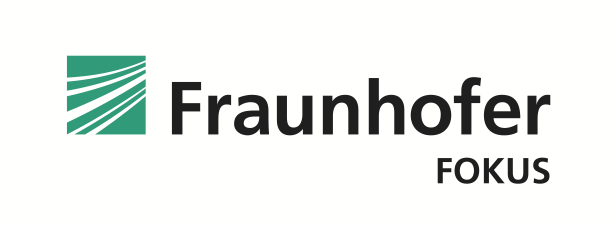 Fraunhofer FOKUS
Fraunhofer FOKUS Fraunhofer FOKUS conducts research on digital transformation and its impact on economics, technology, and our society. Since 1988, FOKUS has been supporting commercial enterprises and public administrations in the shaping and implementation of digital transformation. For this purpose, Fraunhofer FOKUS offers research services ranging from requirements analysis to consulting, feasibility studies, technology development right up to prototypes and pilots in the business segments Digital Public Services, Future Applications and Media, Quality Engineering, Smart Mobility, Software-based Networks, Networked Security, Visual Computing und Analytics. With around 480 employees in Berlin and an annual budget of 36,1 million euros, Fraunhofer FOKUS is one of the largest ICT institutes of the Fraunhofer Society. More than 80 percent of its budget is generated through projects from industry and the public domain.
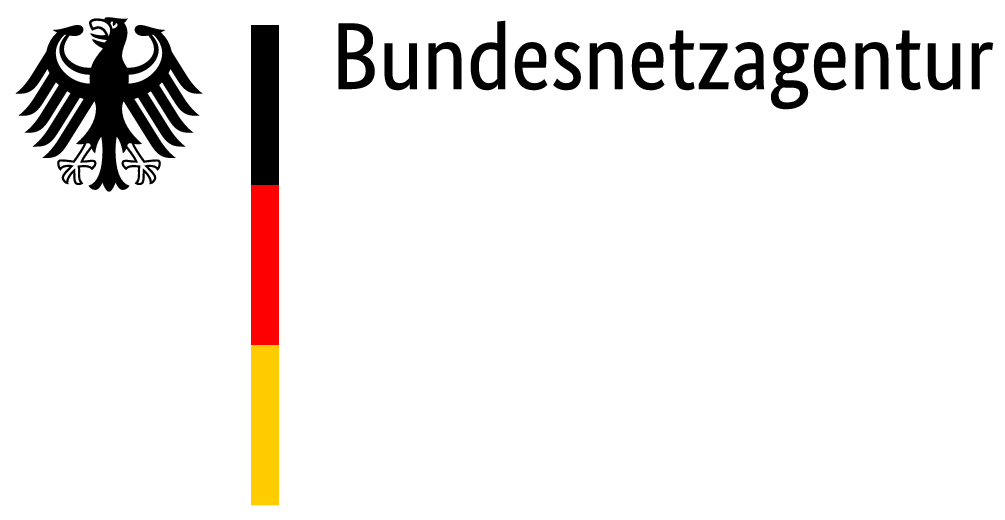
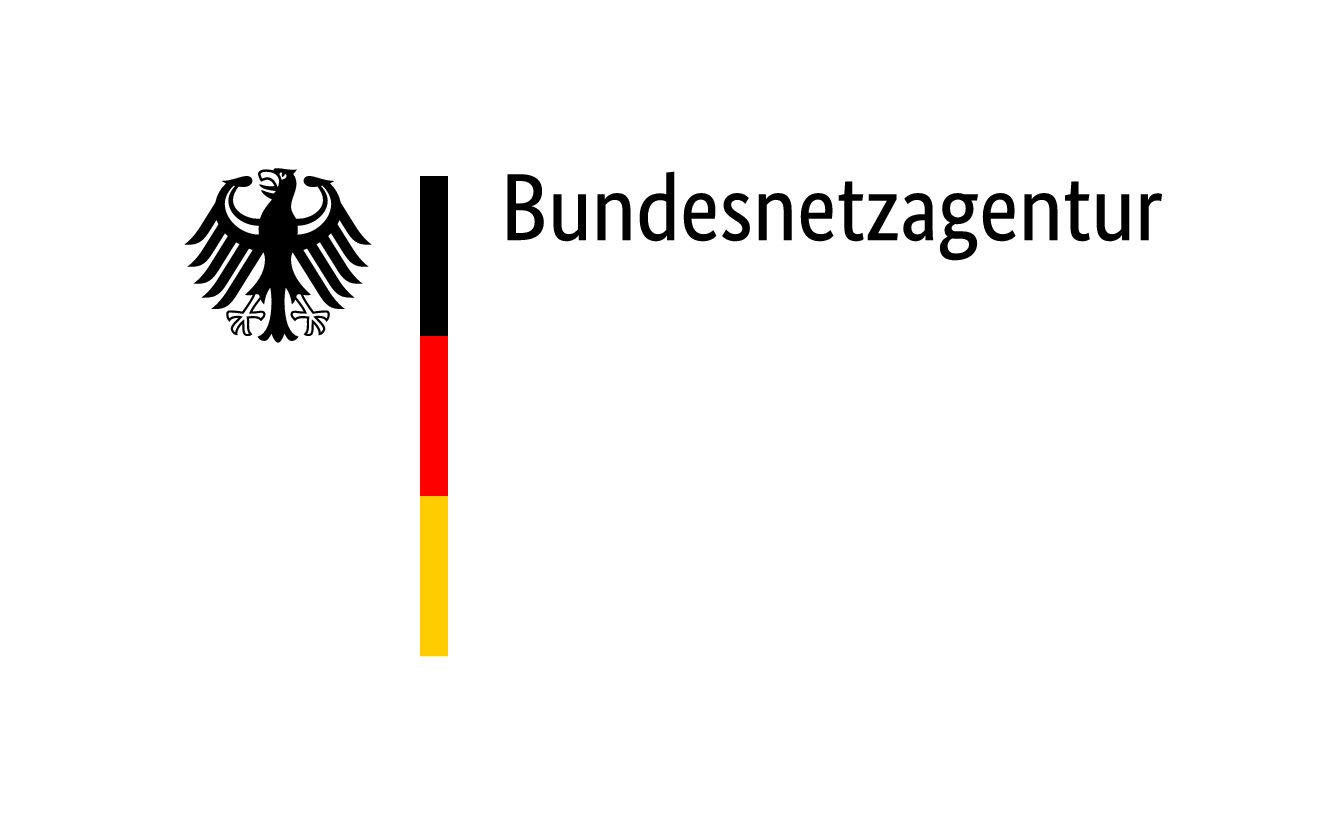 BNetzA
BNetzA The Bundesnetzagentur (Federal Network Agency) for Electricity, Gas, Telecommunications, Post and Railway (BNetzA) is an independent federal authority based in Bonn. The prime task of the Federal Network Agency is to foster competition in the fields for which it is responsible by regulating these sectors and by ensuring that access to the networks is granted in a way that is both fair and non-discriminatory.
The Bundesnetzagentur (Federal Network Agency) also sees to it that basic postal and telecommunications services are available everywhere in the country and assigns finite resources of radio frequencies and telephone numbers etc. It is also responsible for protecting important consumer rights and can be called upon as an arbitration board. In order to reduce trade barriers, ensure free trade, and protect the general public from unsafe equipment, the Federal Network Agency monitors products that have been placed on the market with respect to electromagnetic compatibility in line with the Electromobility Compatibility Act and the Act on Radio Equipment and Telecommunications Terminal Equipment. It is also the competent authority under the Digital Signature Act.
The central tasks undertaken by the Bundesnetzagentur (Federal Network Agency) with regard to energy regulation notably include the approval of network fees for the transmission of electricity and gas, the removal of obstacles that impede access to the energy supply networks for suppliers and consumers, the standardisation of the relevant processes for switching suppliers, and the improvement of conditions under which new power plants are connected to the networks.
Since 2011, the Bundesnetzagentur (Federal Network Agency) has also been responsible for the faster expansion of the electricity grid through implementation of the Grid Expansion Acceleration Act.

 Huawei
Huawei Founded in 1987, Huawei is a leading global provider of information and communications technology (ICT) infrastructure and smart devices. We have 207,000 employees and operate in over 170 countries and regions, serving more than three billion people around the world. We are committed to bringing digital to every person, home and organization for a fully connected, intelligent world.

 Shure
Shure With a history of innovation that began in 1925, Shure has turned a passion for making great microphones and audio electronics into an obsession.
Shure continues to set the worldwide industry standard for superior, reliable products.

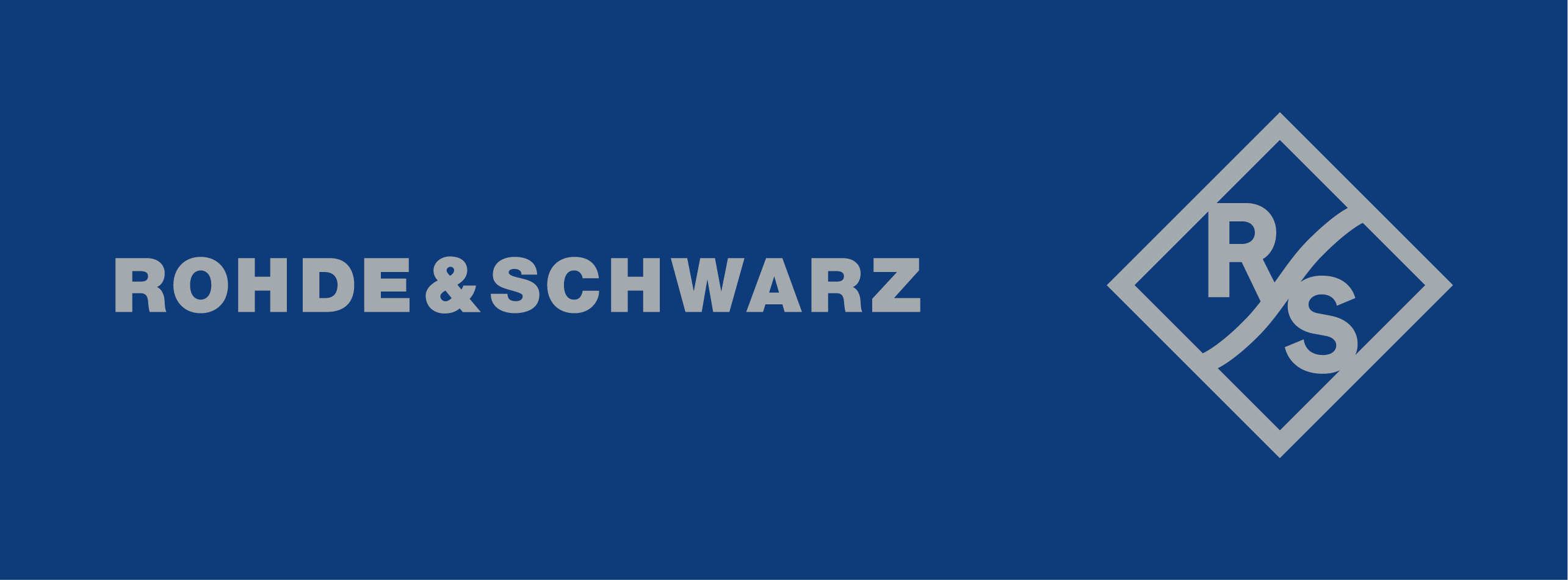
 Rohde & Schwarz
Rohde & Schwarz Rohde & Schwarz develops, produces and markets a wide range of electronic capital goods for industry, infrastructure operators and government customers. The independent group is among the technology and market leaders in all of its business fields, including wireless communications and RF test and measurement, broadcast and media, air traffic control and military radiocommunications, cybersecurity and network technology.
Communication systems are the central nervous system of a digital economy and society. In order to be able to shape the digital future, it is crucial for Germany to be able to act with technological sovereignty. An important prerequisite for digital and technological sovereignty is to help define and appropriately implement the complex standardization and security requirements for core components and critical systems in future communications networks. The discussions on the deployment of the 5G network have highlighted the high relevance of key technologies in the field of mobile communications. In order to act in a sovereign manner, it is important for Germany and Europe to play a key role in shaping technology development and not just to use technology. In shaping the technological foundations of 6G, it is crucial that Germany takes a strong role to act at the forefront of the international research that is already underway. Central to this is, in particular, strengthening the networking and cooperation of all relevant players.
The goal of the project „Platform for Future Communication Technologies and 6G (6G Platform)“ is both to make scientific contributions to the content design of 6G and to ensure the scientific-organizational support of the processes that are necessary for the successful implementation of the German-European 6G program. To this end, harmonization with international regulation and standardization will be promoted, and opportunities for participation by society and industry will be created. Accordingly, the platform ensures that user groups that are not actively involved in mobile communications research can also contribute to the identification of 6G leading applications and requirements. The focus is on ensuring efficient harmonization of visions and concepts with the aim of defining a uniform German position. The necessary comprehensive and inclusive consideration of as many stakeholders, projects and key parties as possible is part of the accompanying research activities of the 6G platform. This takes into account that the definition of 6G is a dynamic process with currently still dynamically changing agendas.
The scientific contributions of the 6G Platform deal in particular with issues of high social relevance. In addition to internal science communication within the framework of the 6G initiative, the 6G platform is also aimed at recipients outside the scientific community. Space for dialog is created, through which broad sections of the population, from those with an affinity for technology to groups less interested in technology, are to be reached. In this way, the broadest possible participation in the innovation potential of 6G is generated in society at an early stage, which will also benefit the economy in the long term. Overall, the 6G platform is making an important contribution to the development of a 6G ecosystem and thus to advancing Germany’s technological sovereignty in future 6G technologies.
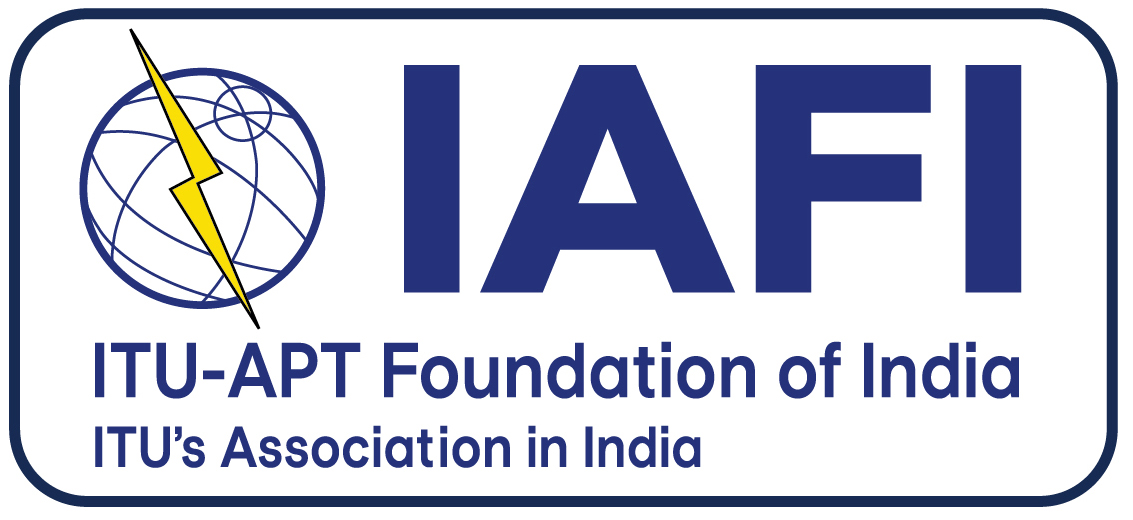
 ITU-APT
ITU-APT ITU-APT Foundation of India (IAFI) is a non-profit, non political, non-partisan Industry foundation registered as a society under the Societies Registration Act, 1960. IAFI is working for last 20 years with the prime objective of encouraging involvement of professionals, corporate, public/private sector industries, R&D organizations, academic institutions, and such other agencies engaged in development of Indian Telecom sector in the activities of the International Telecommunication Union (ITU) and the Asia Pacific Telecommunity (APT).
The Foundation has been recognized as an International/Regional Telecommunications Organization by the International Telecommunications Union (ITU). ITU-APT is also having close working relations with similar organizations in many other countries including, Japan, Indonesia and USA. ITU-APT Foundation of India is sector Member of the ITU Radio sector (ITU-R), ITU Development Sector (ITU-D), ITU Telecommunication Standardization Sector (ITU-T) and Affiliate Member of Asia Pacific Telecommunity (APT) which manifests its usefulness to the Indian Telecom industry The Foundation members are entitled to participate and contribute to the activities of ITU-R, ITU-D, ITU-T and APT.

 Forum Europe | OFCORES
Forum Europe | OFCORES We have been organising policy conferences in Brussels and around Europe since 1989. Whether working on our own events or carefully curating yours, we establish key connections and promote understanding of topical policy issues and legislation.
Our reputation is built on the delivery of effective, meticulously planned events that provide unique insights from the people behind the policy. Working closely with key stakeholders from all sides, our expert team develop conference programmes with impact, and provide first-class event logistics.
For further information on speaking, sponsorship or visibility opportunities, and to discuss how you can maximize the value of involvement, please get in touch by clicking the button below.
The Huddle is hosted annually by the Wireless World Research Forum (WWRF). Since its inception in 2014, it has brought key 5G & 6G stakeholders together in various locations across the globe including the United Kingdom, Europe, Canada, South Africa, Japan, India and, most recently, Singapore with each edition addressing the next step of the 5G & 6G ‘journeys’.
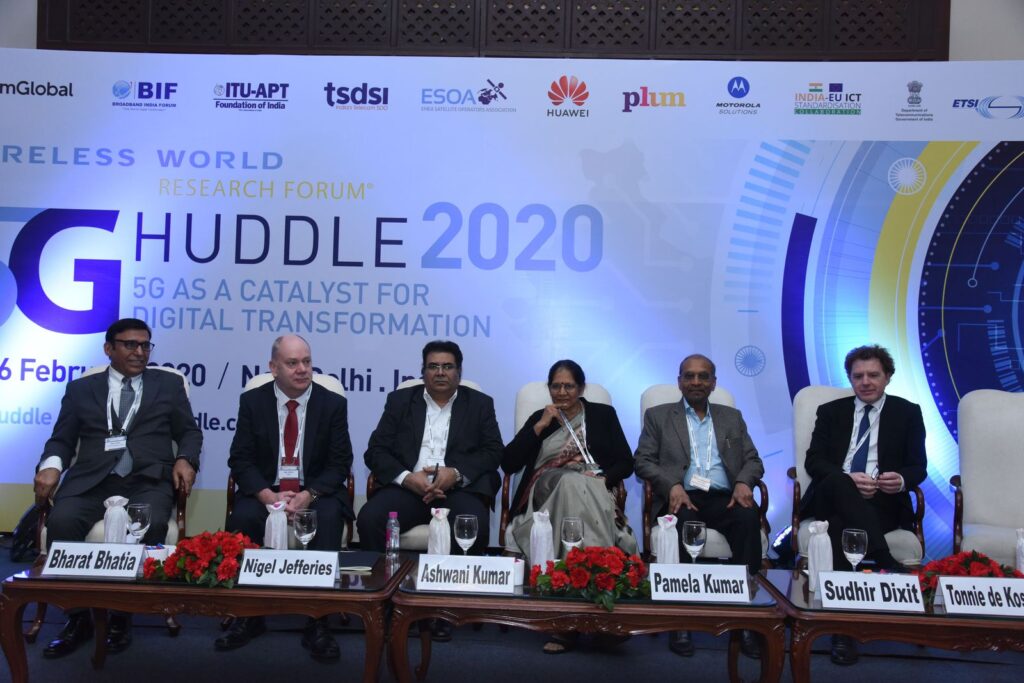
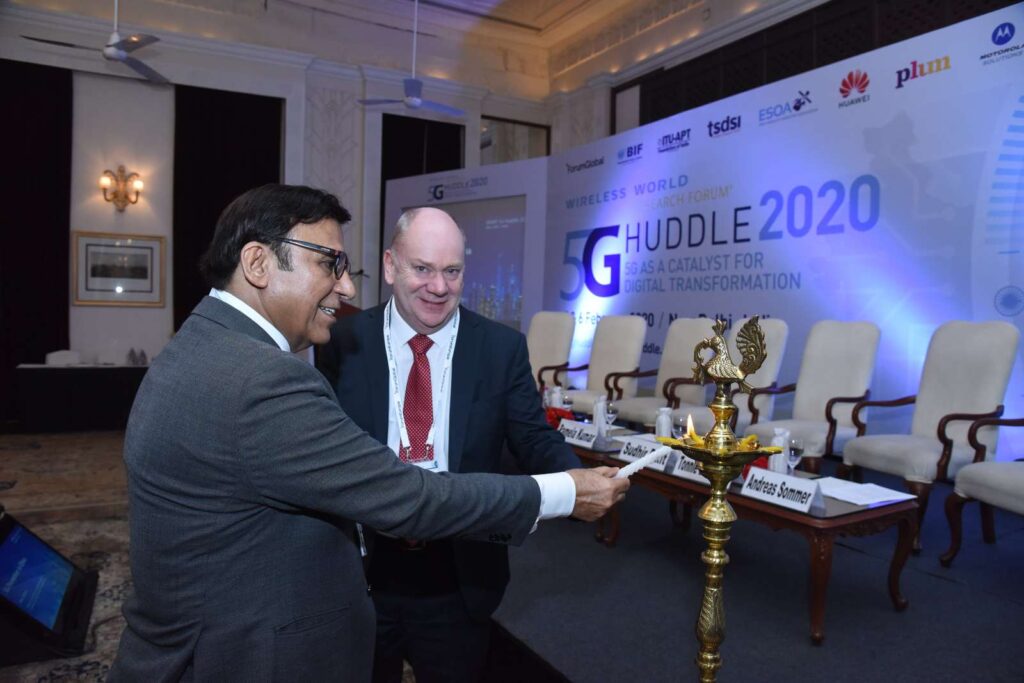
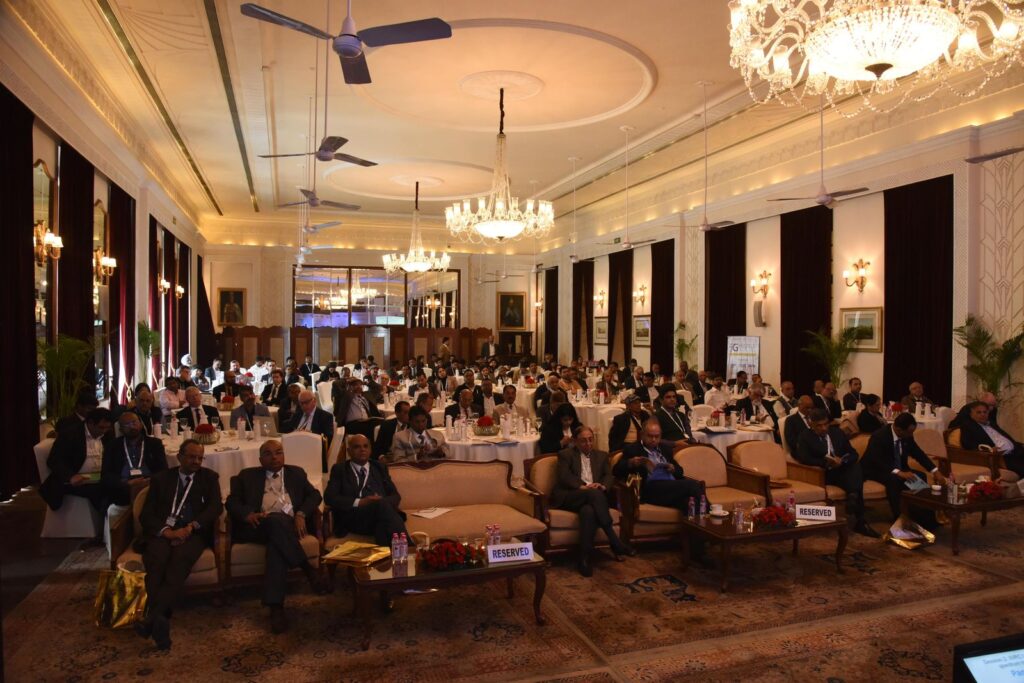
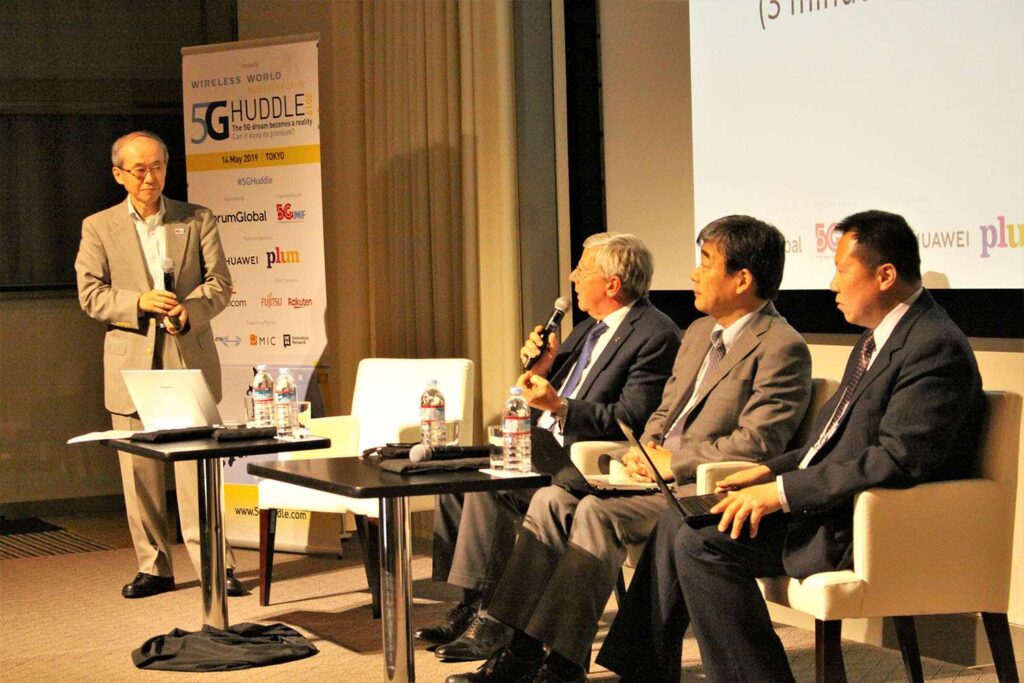
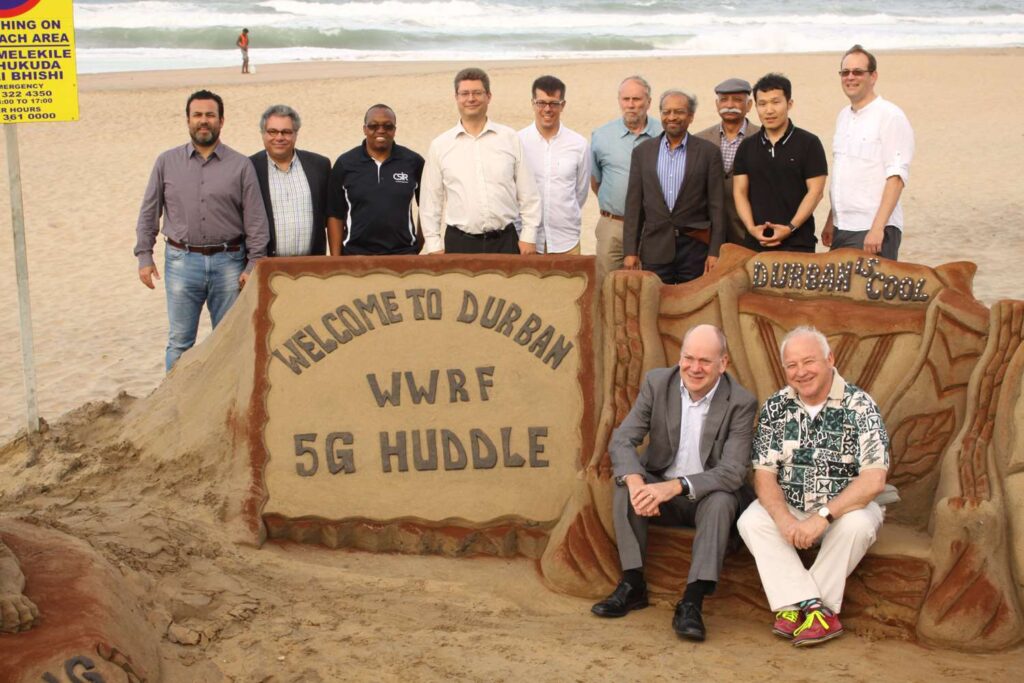
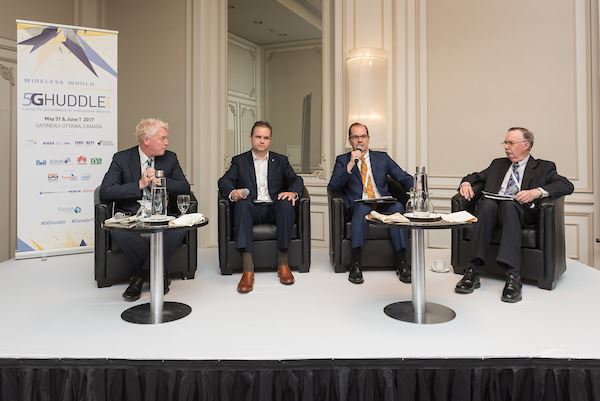
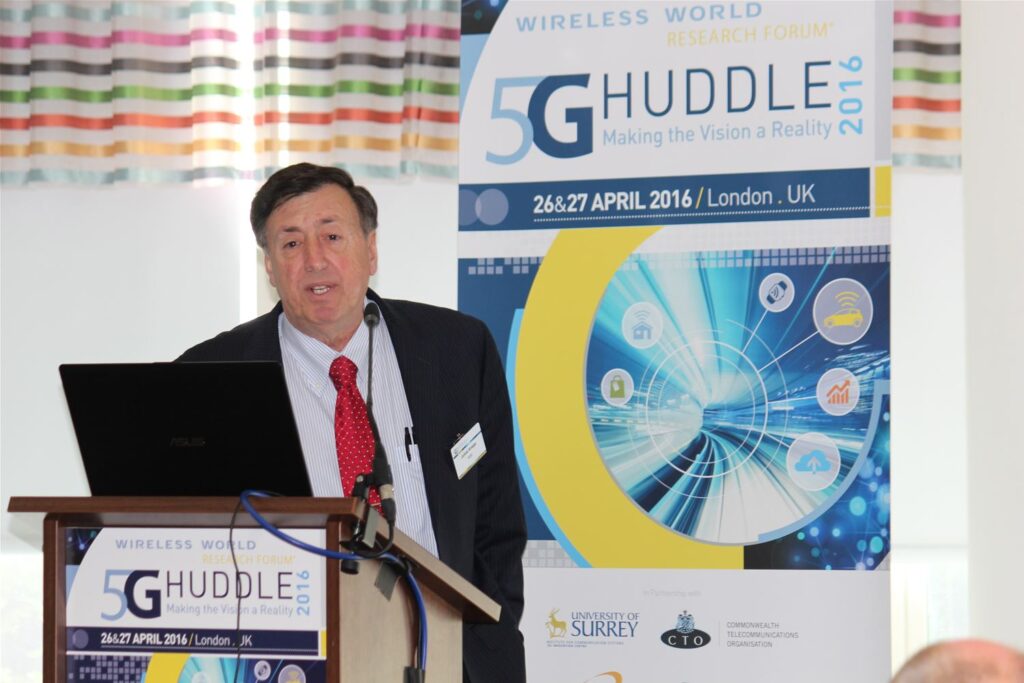
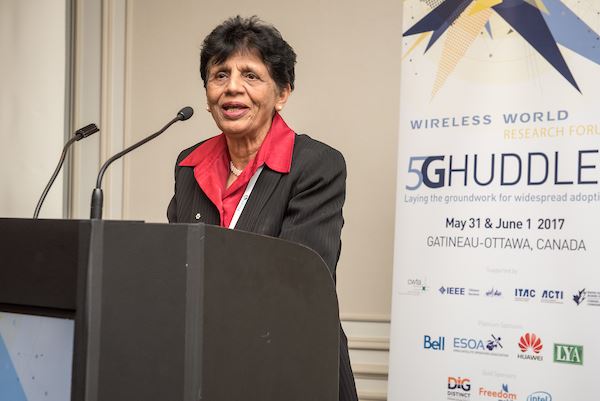
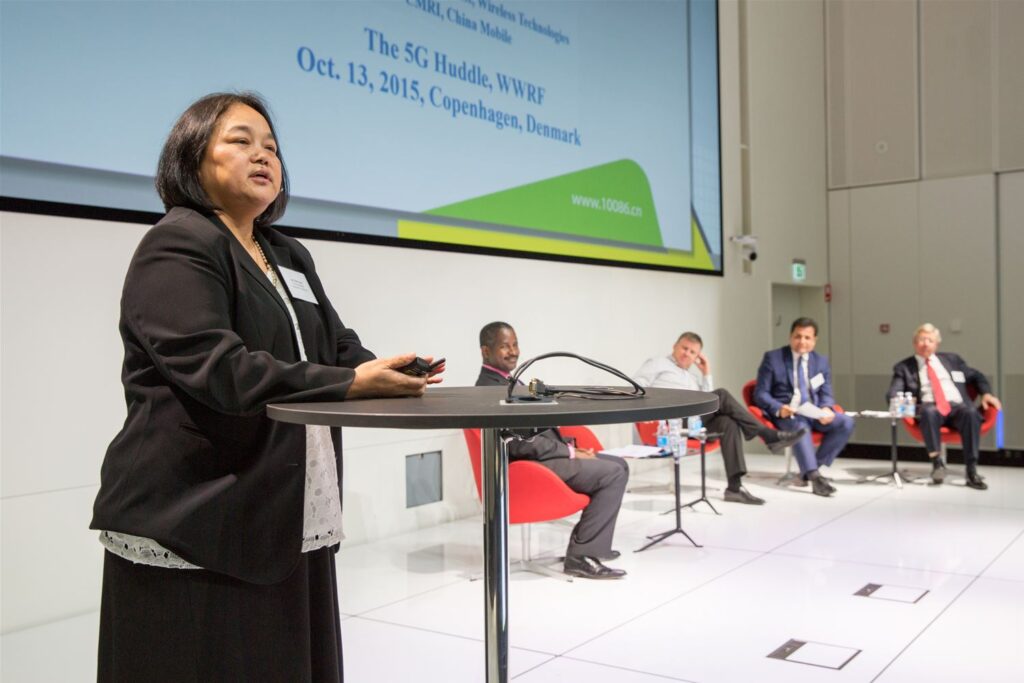

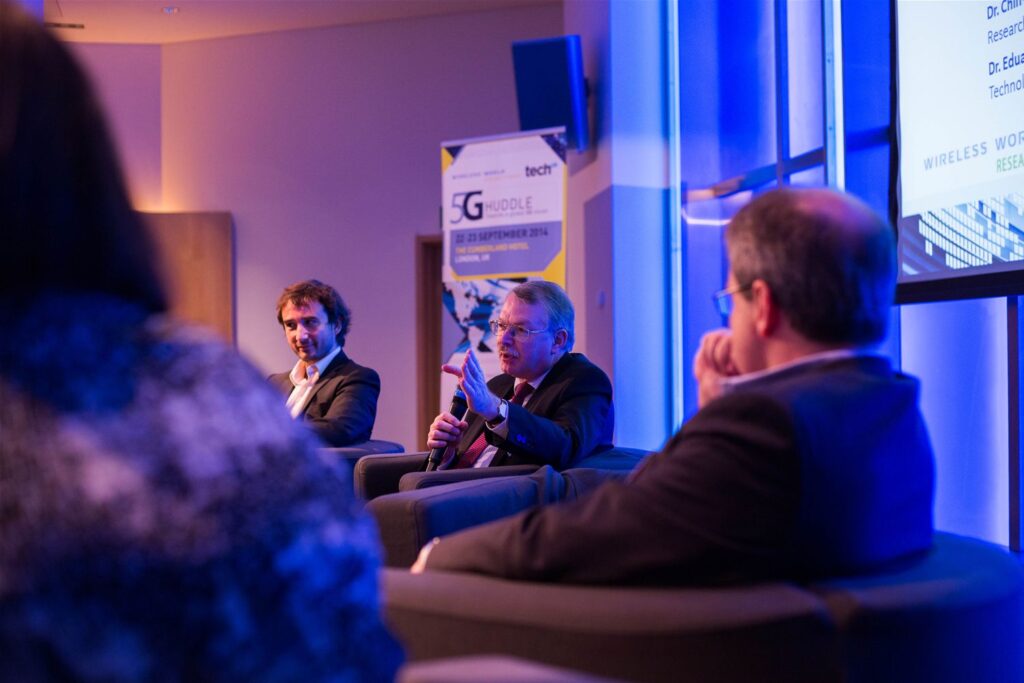
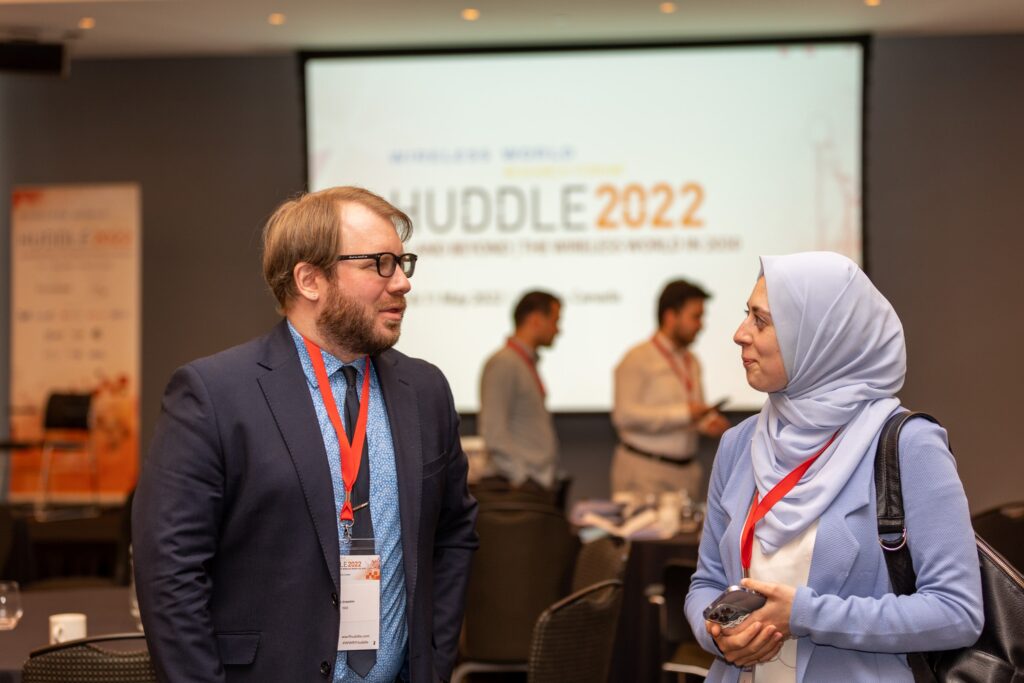
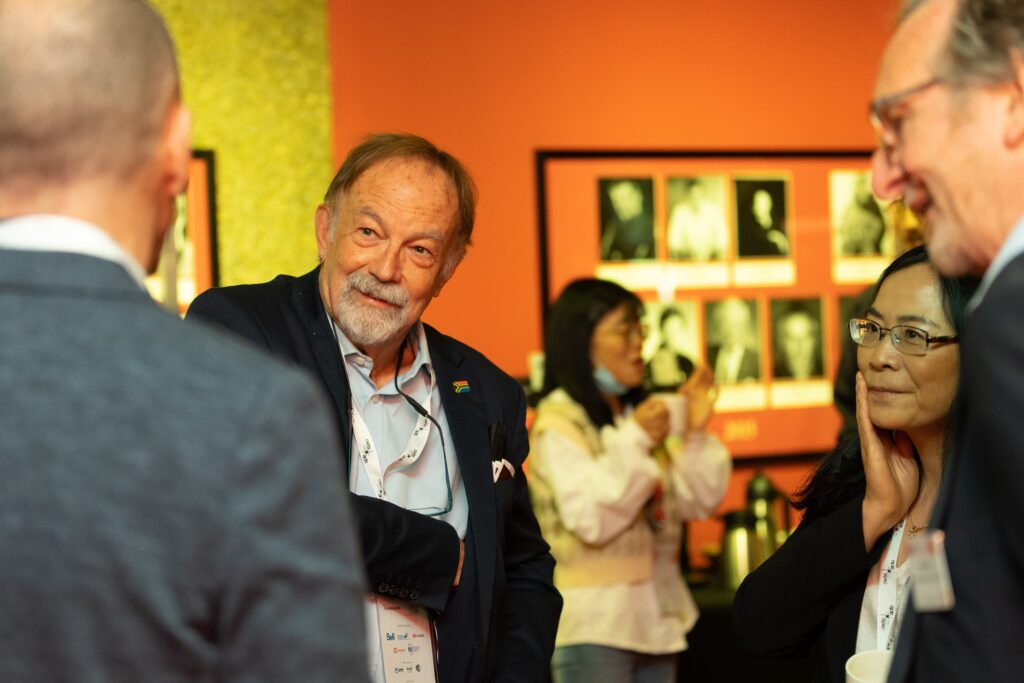
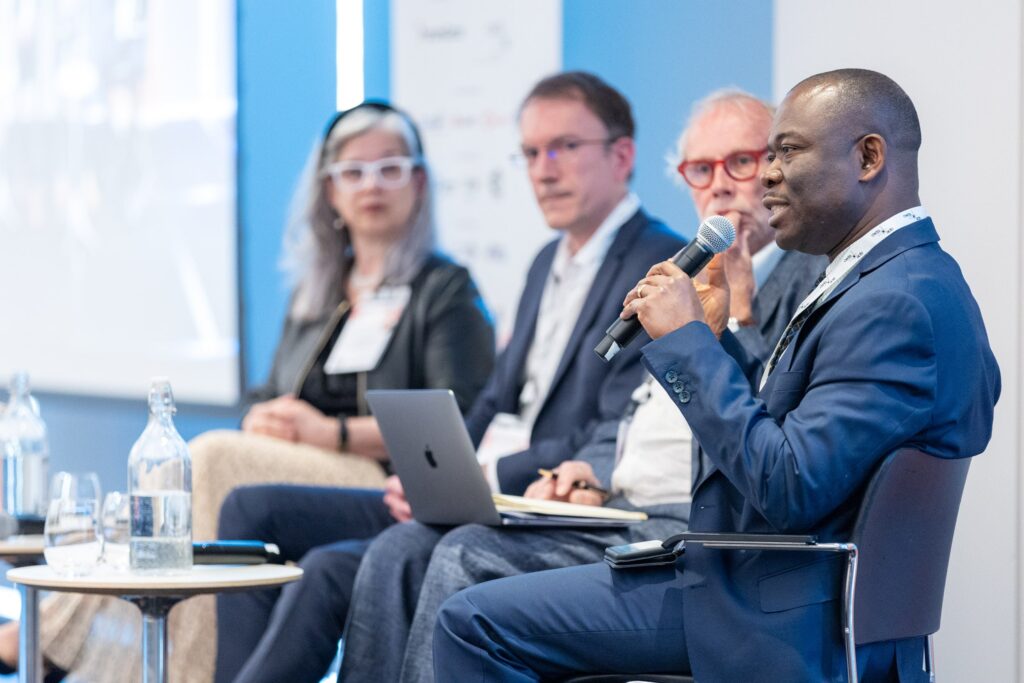
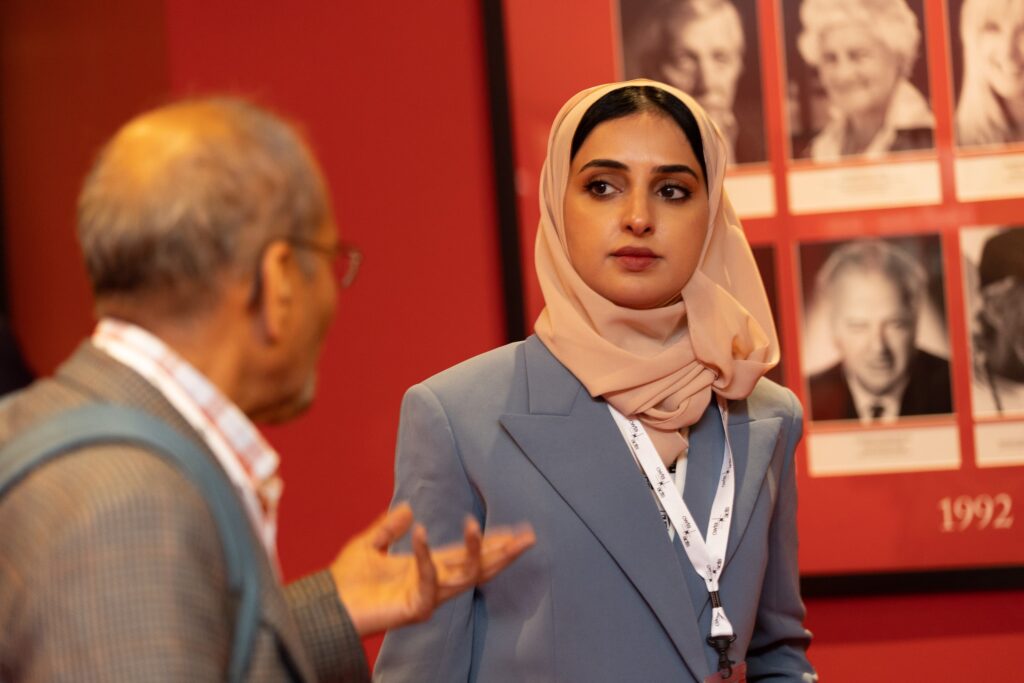
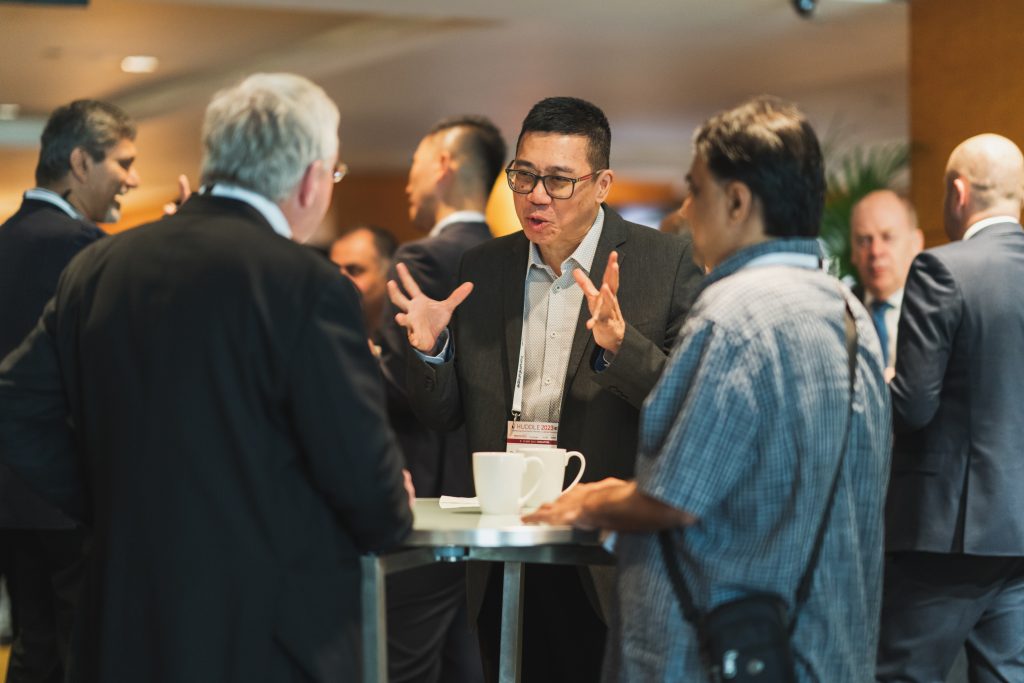
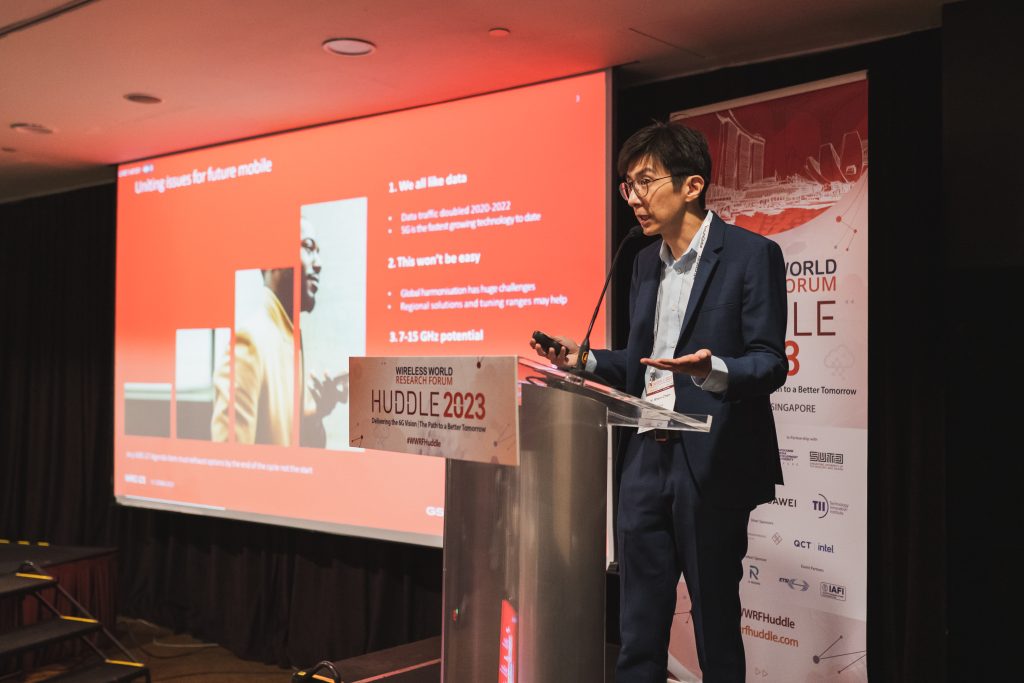
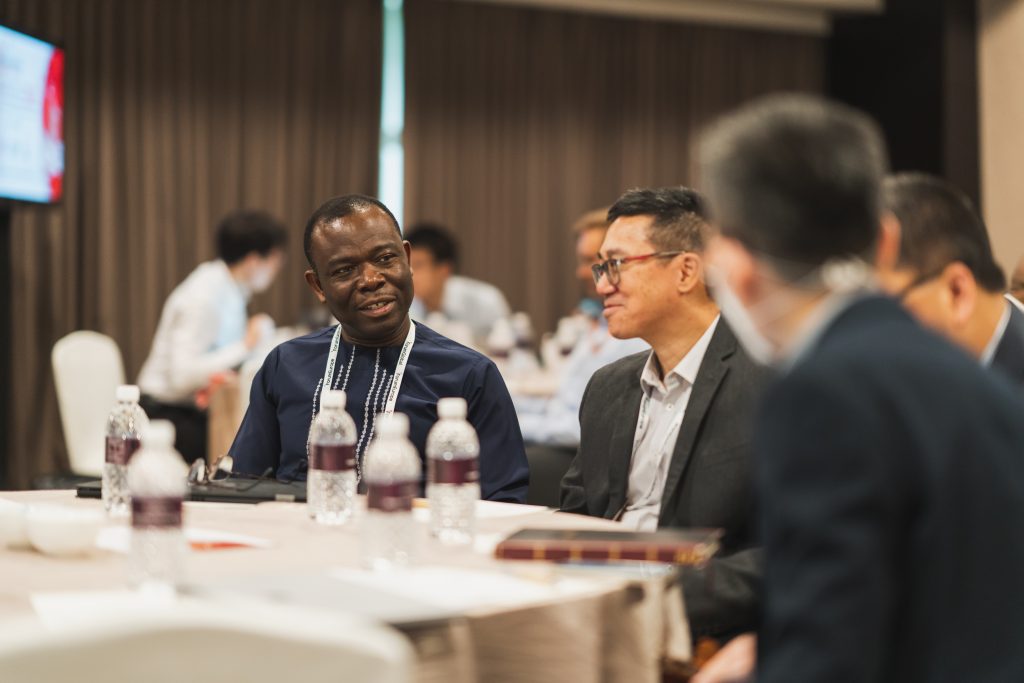
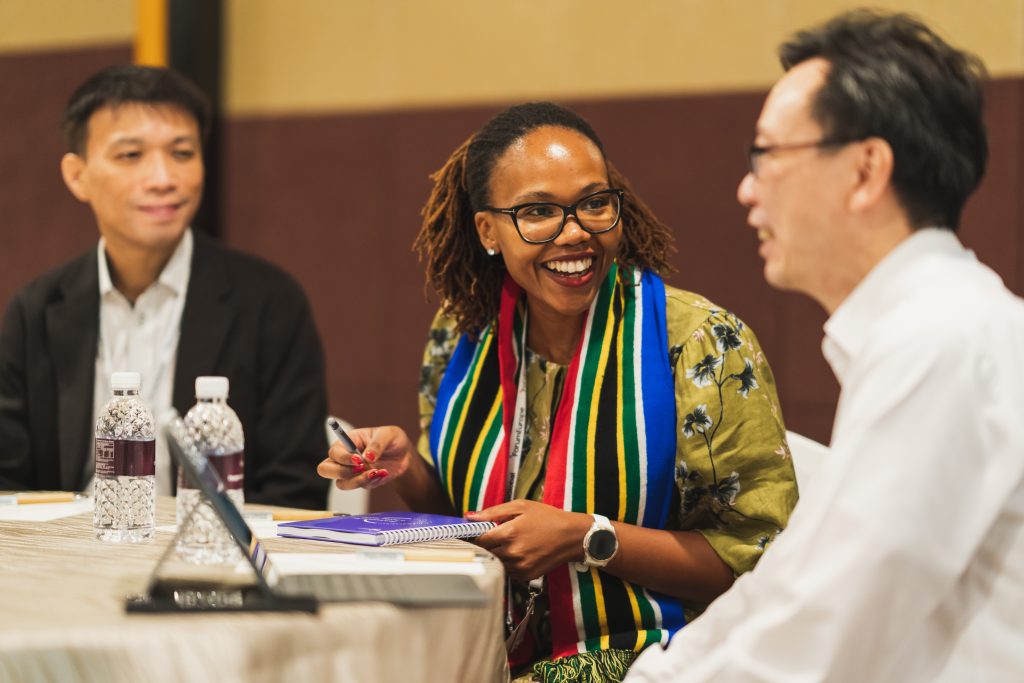
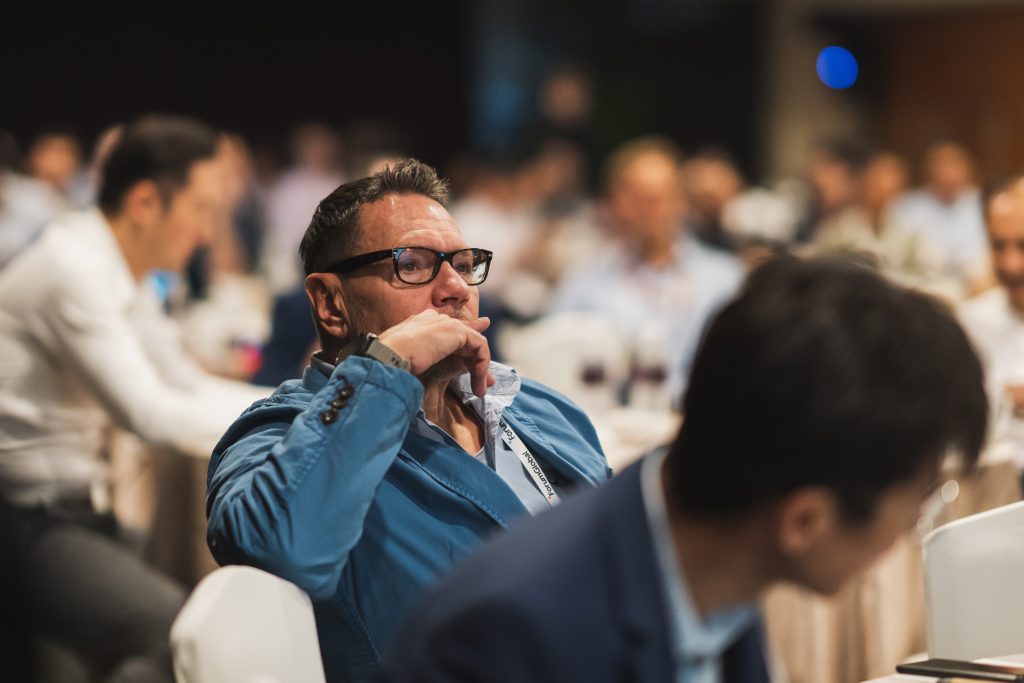
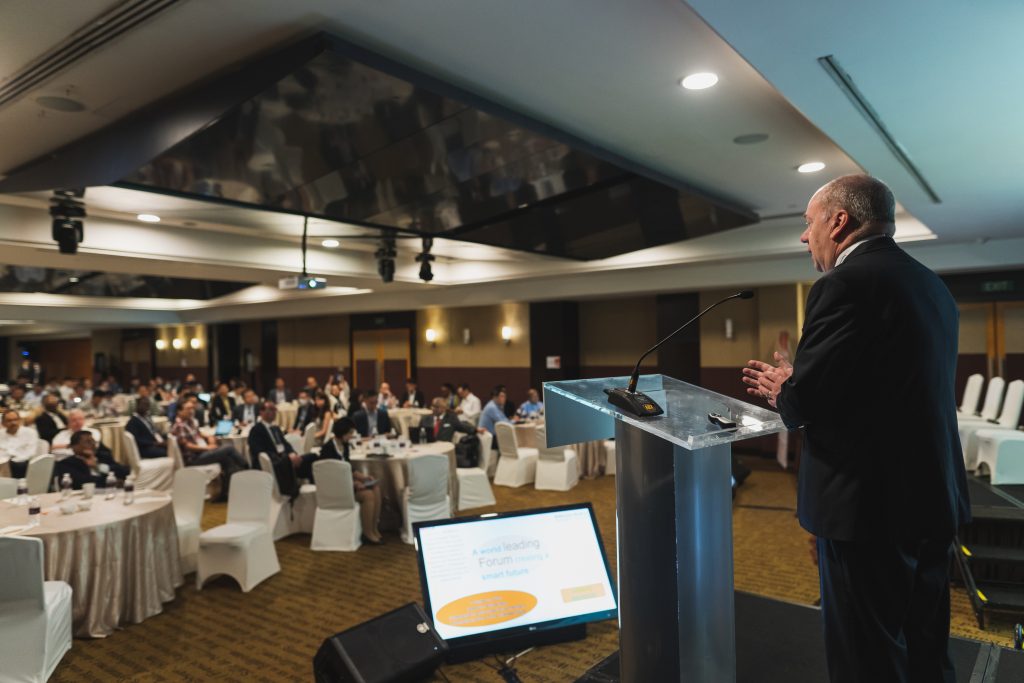
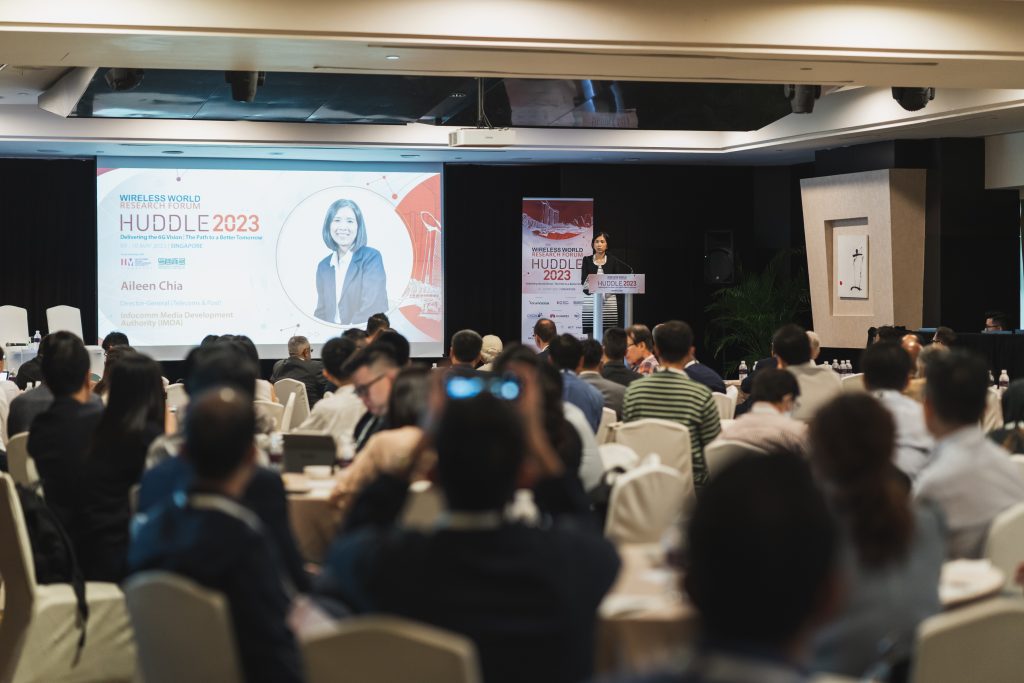
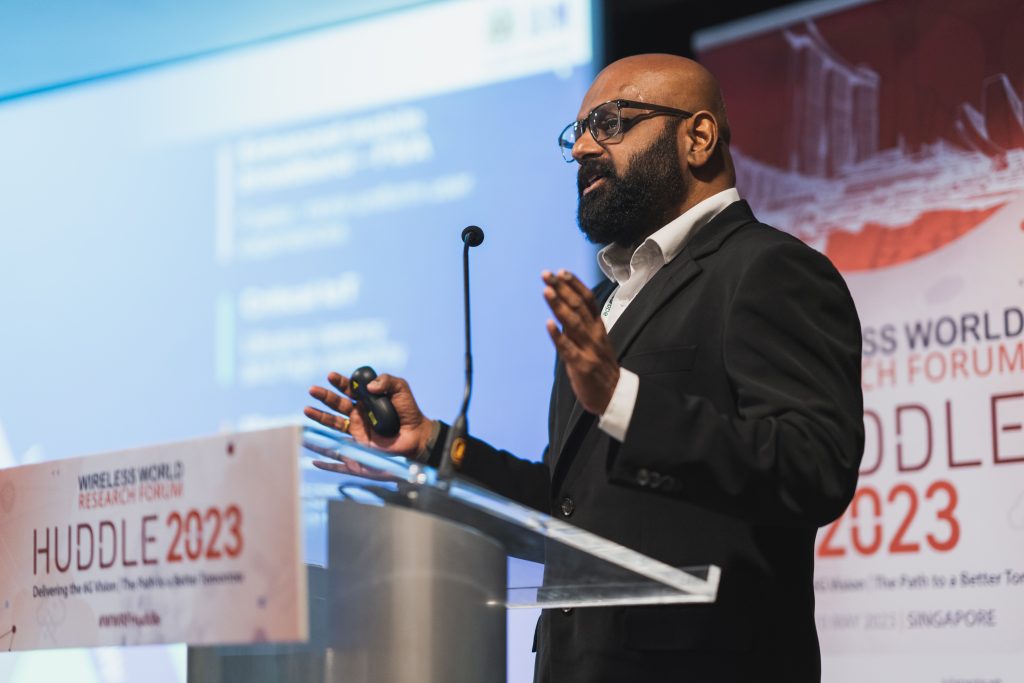
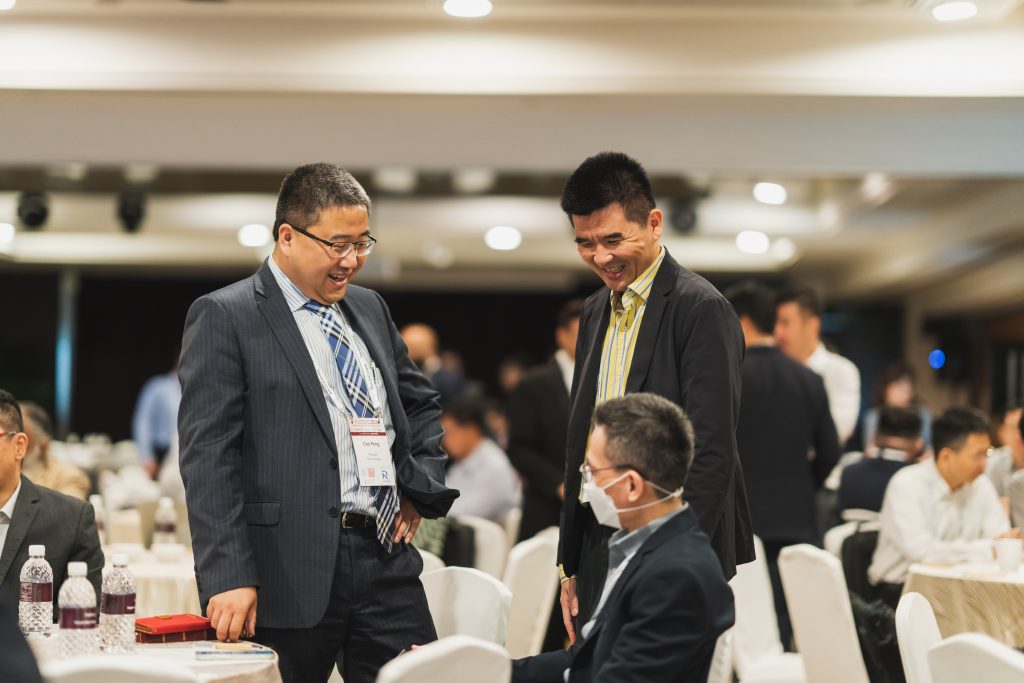
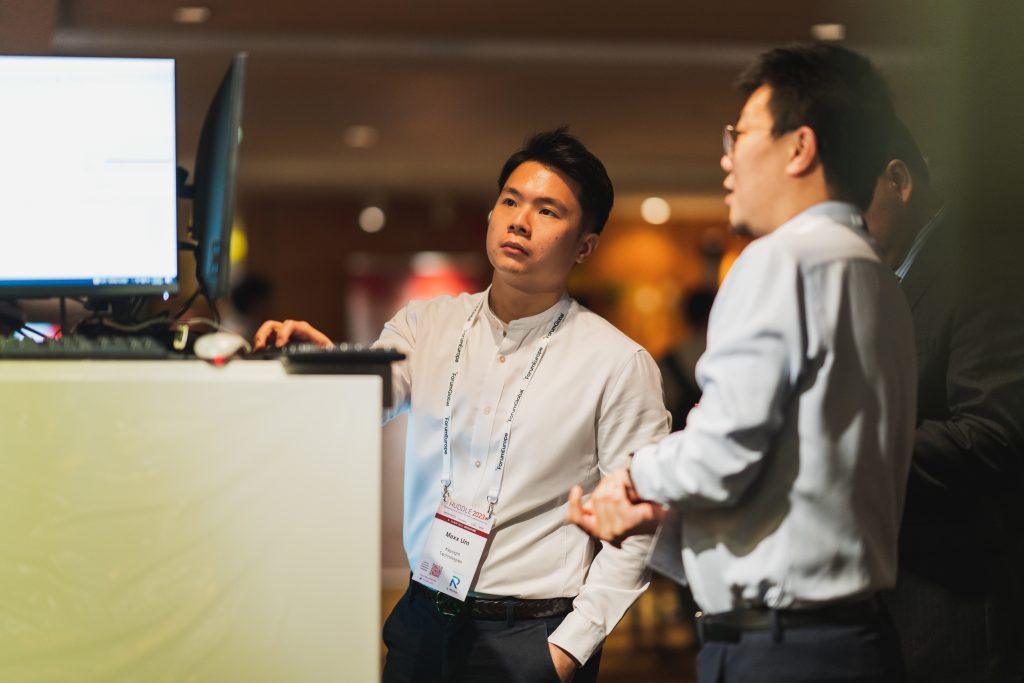
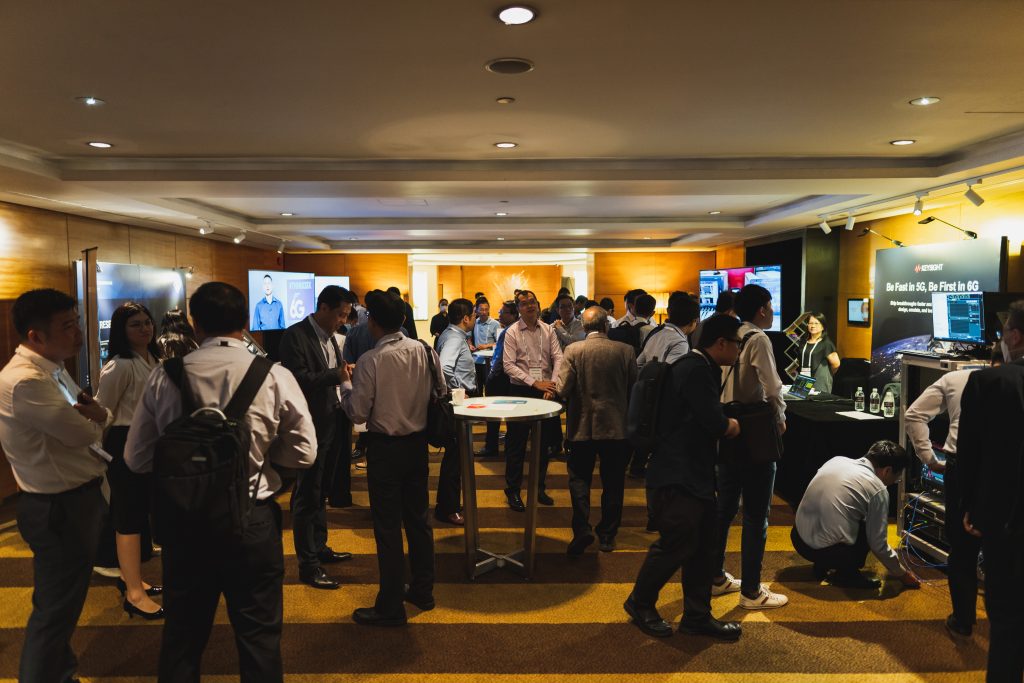
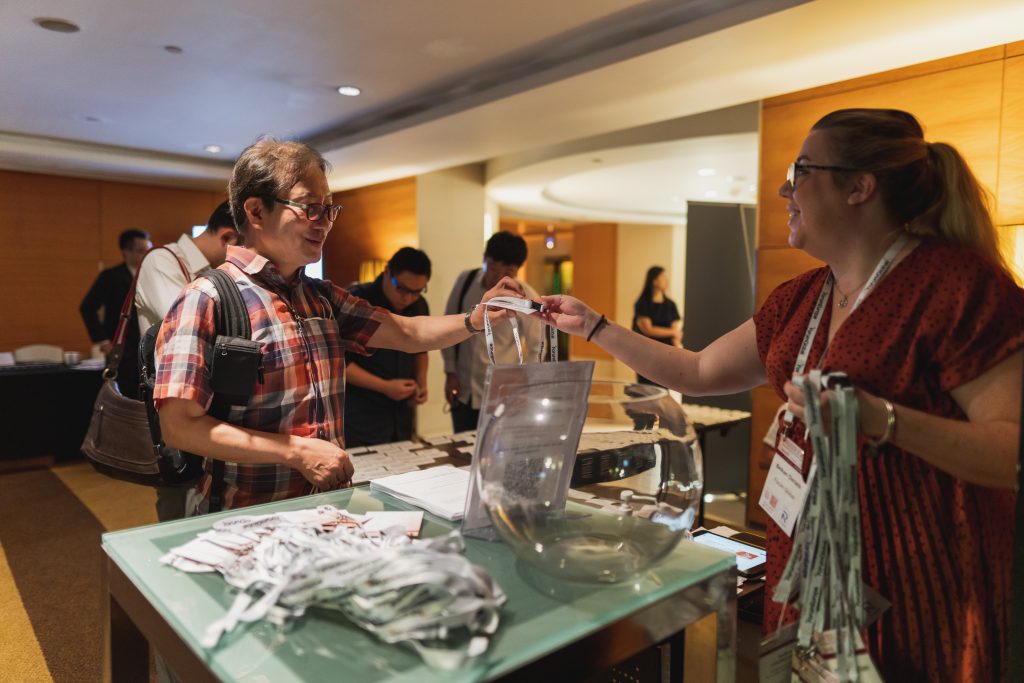
For more information on any aspect of this event, please contact us using any of the details below.
Lorena Rodriguez
Senior Event Manager
Forum Europe
wwrfhuddle@forum-europe.com
#WWRFHuddle
© Copyright FOGES NV. All rights reserved | Privacy Policy | Terms and Conditions | Cookies Policy | Booking Terms and Conditions
Registered in Belgium | Registered Office: Route de Lennik 451, 1070 Brussels, Belgium | Email: team@fe-ofc.com